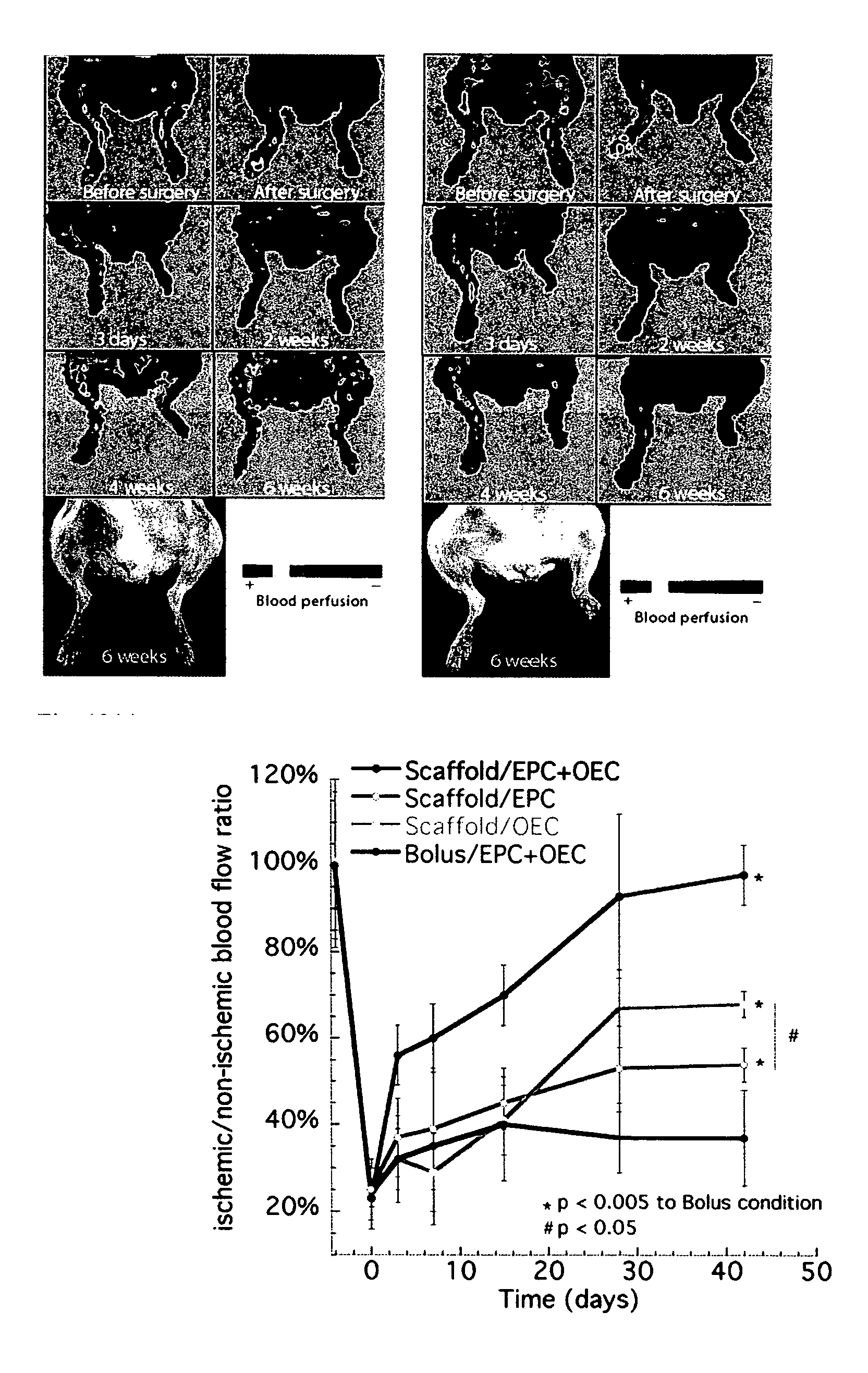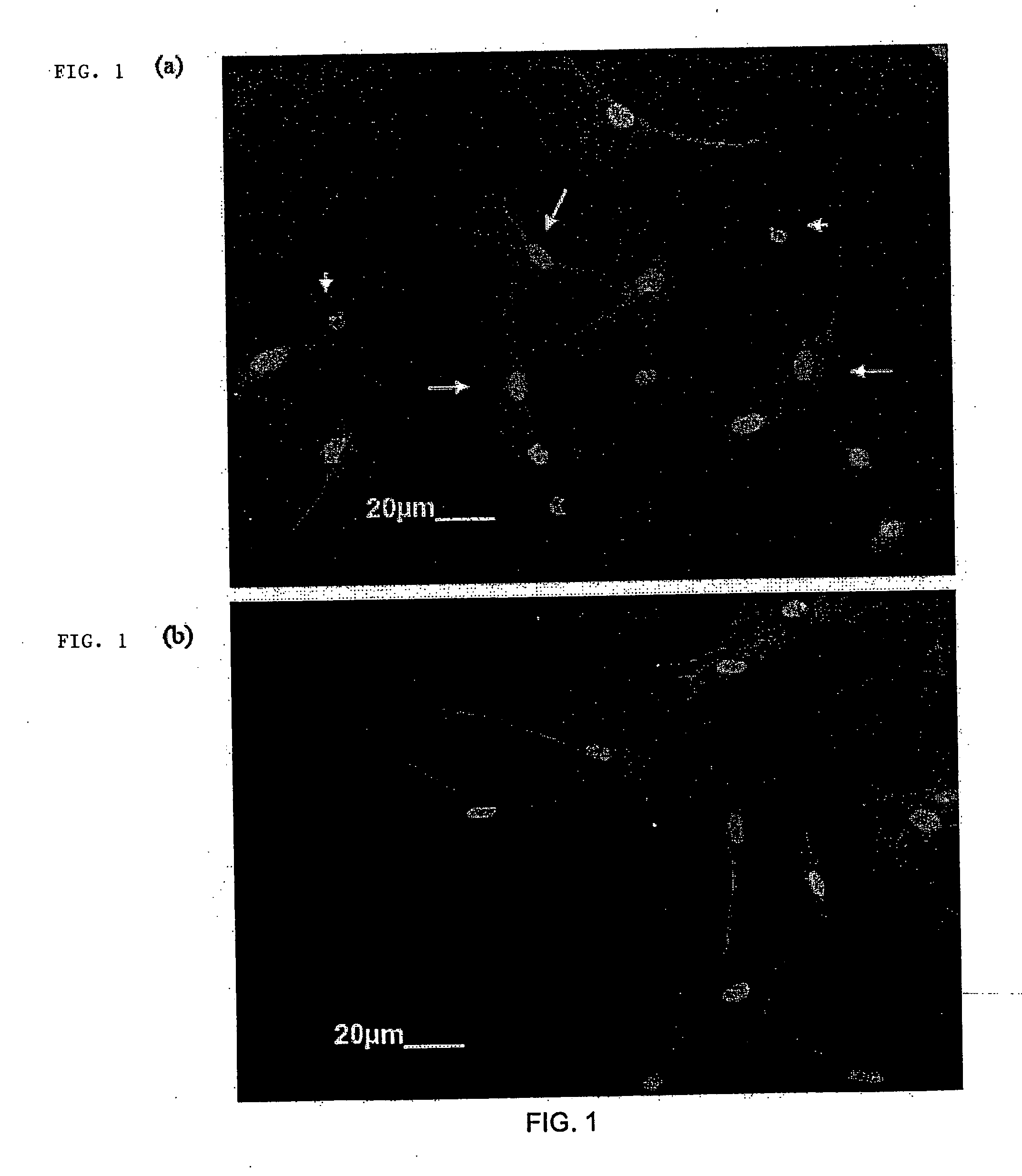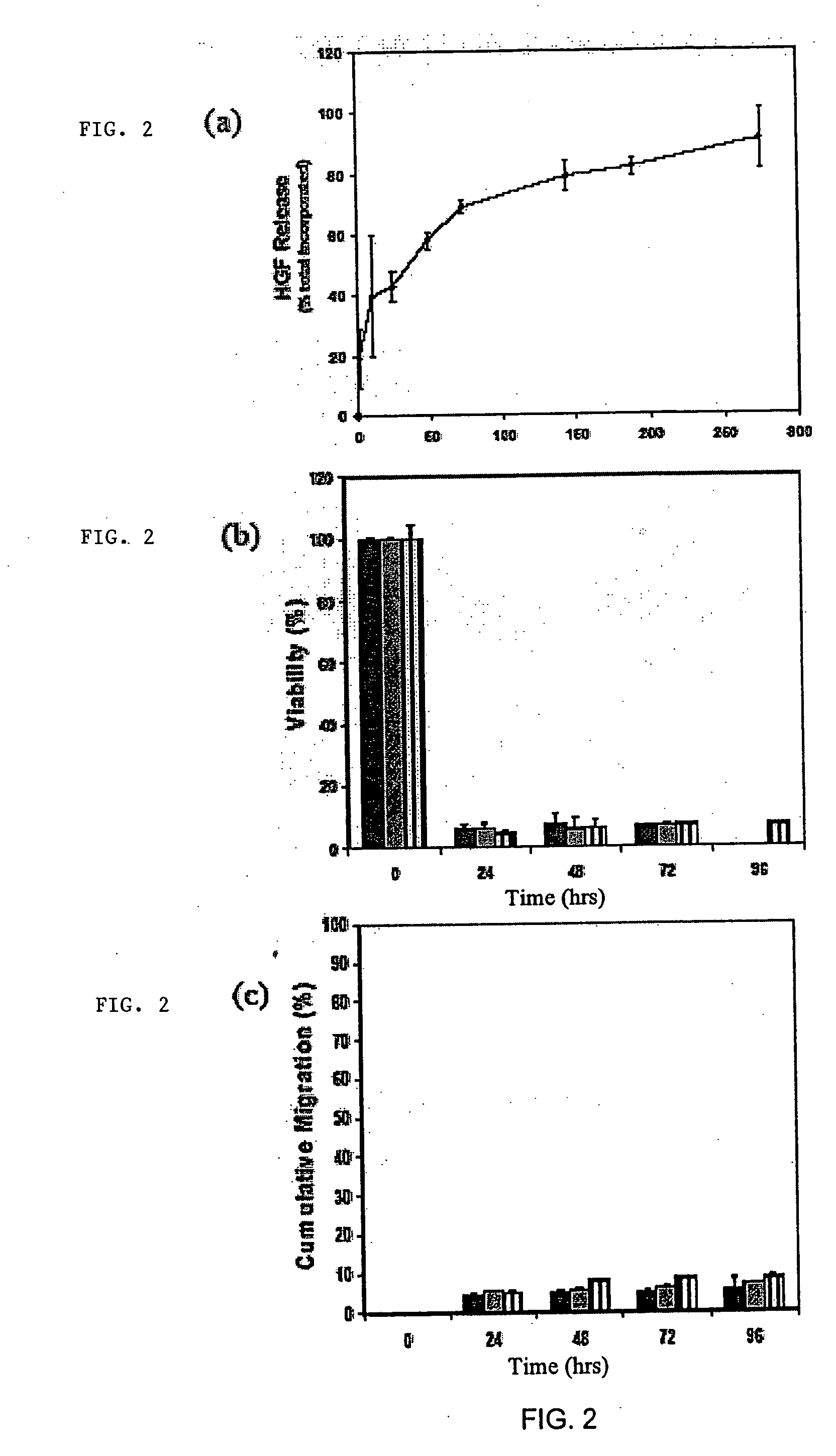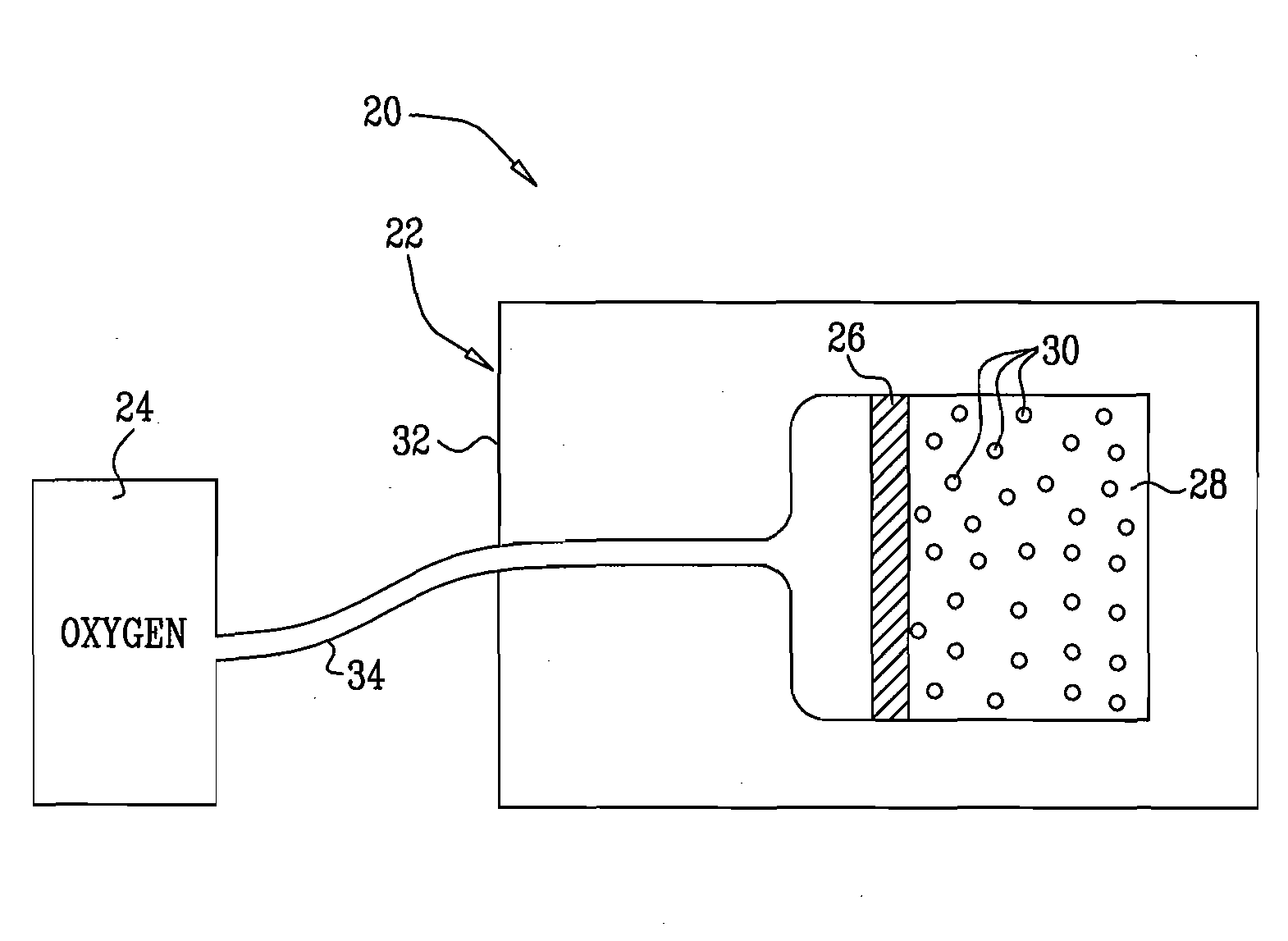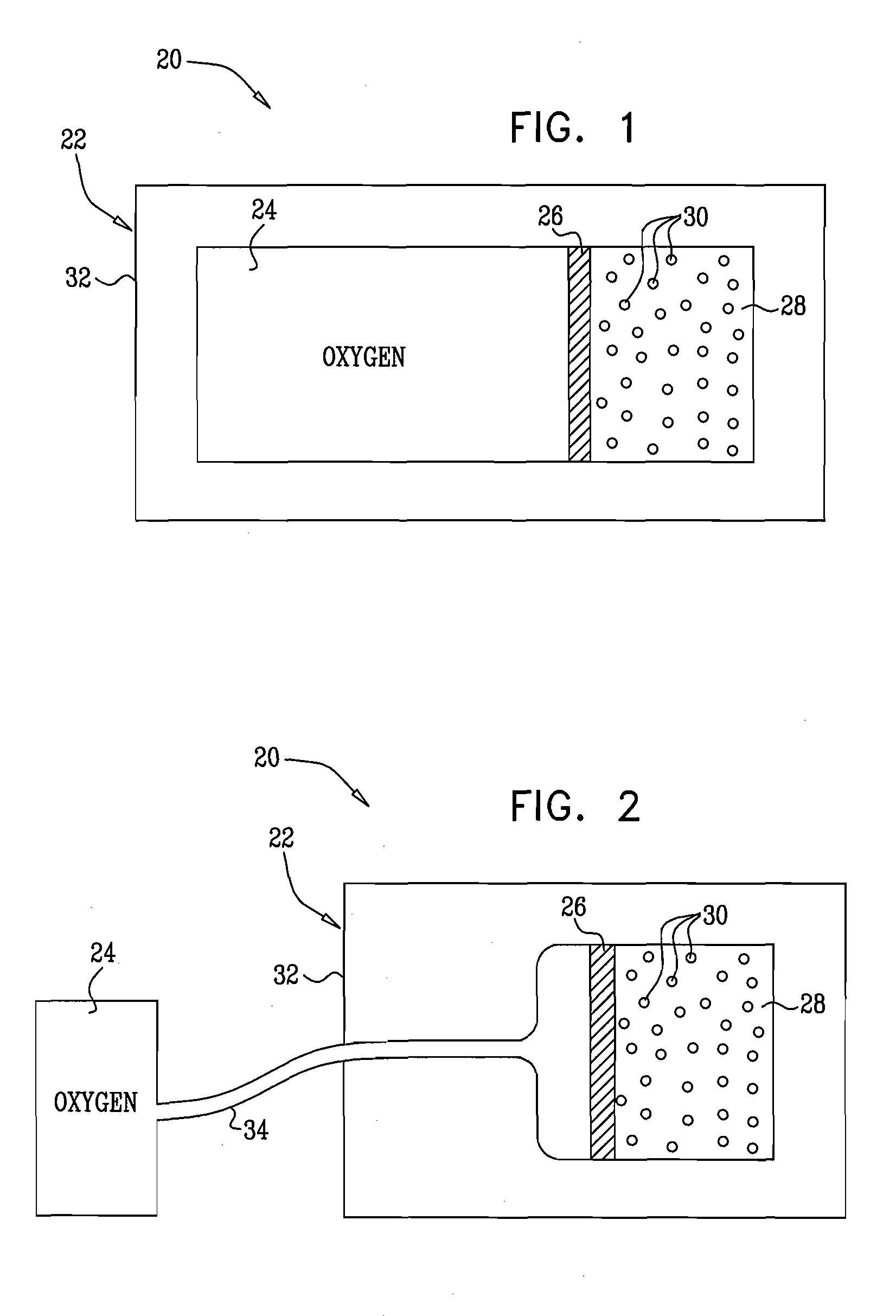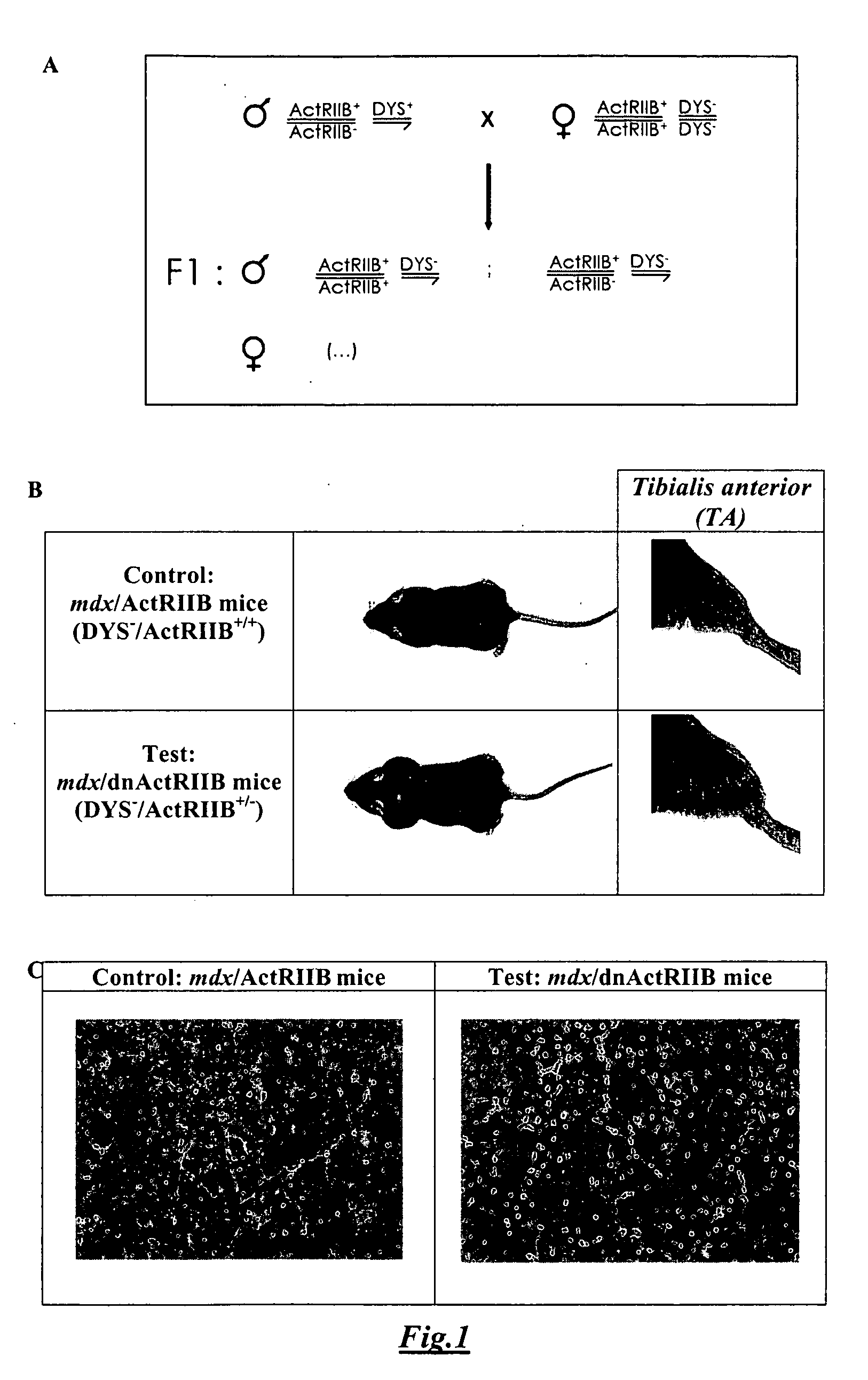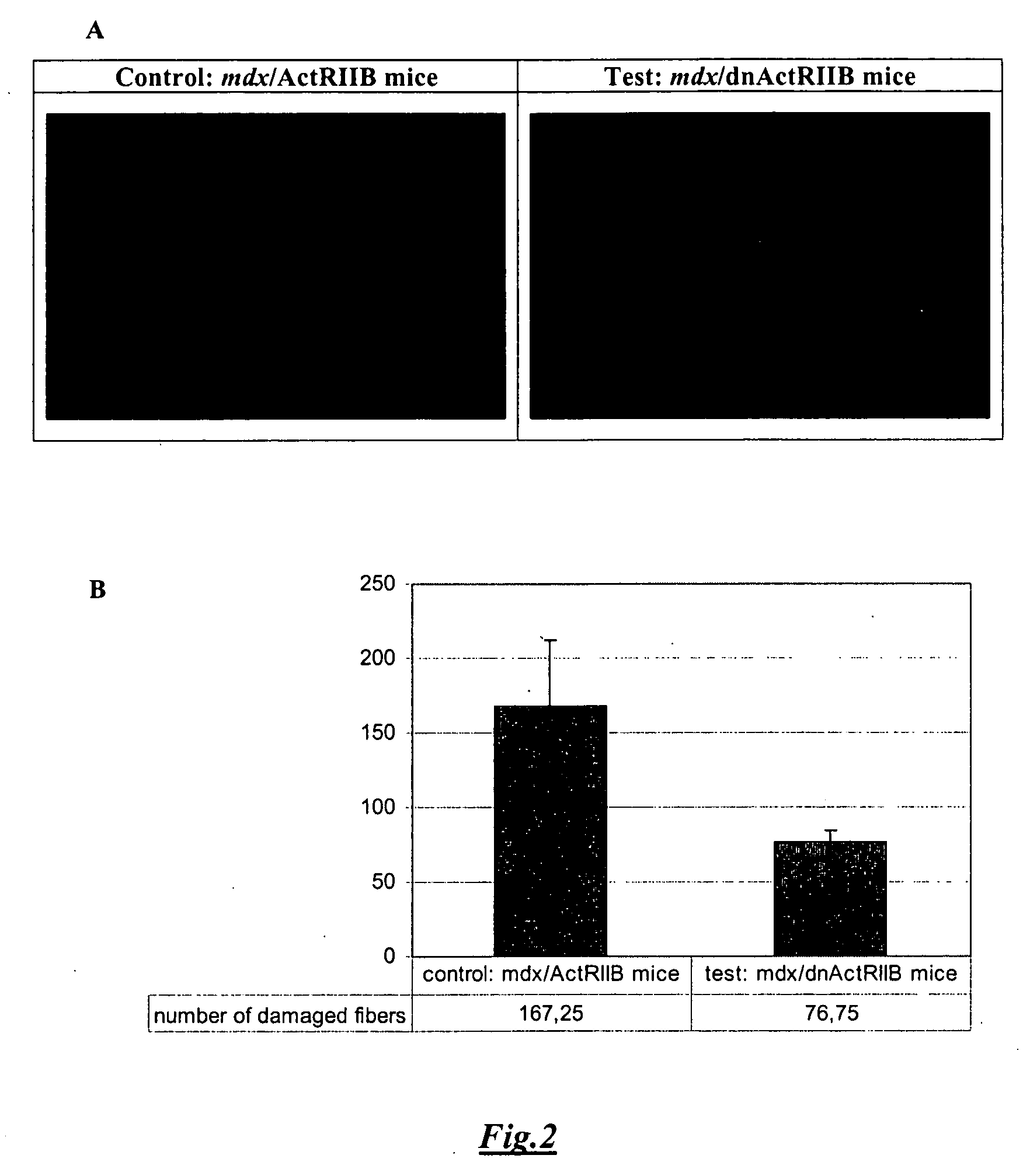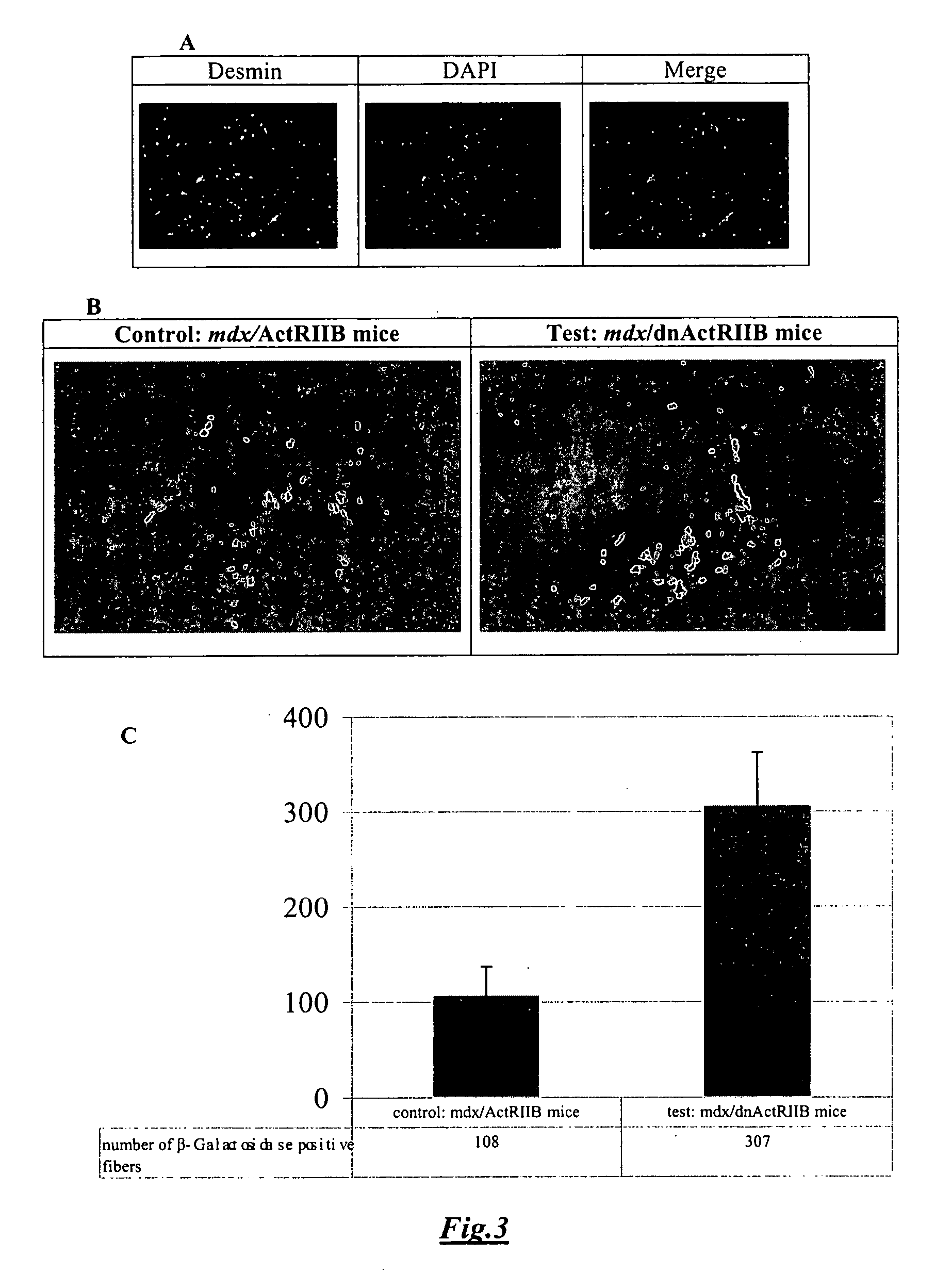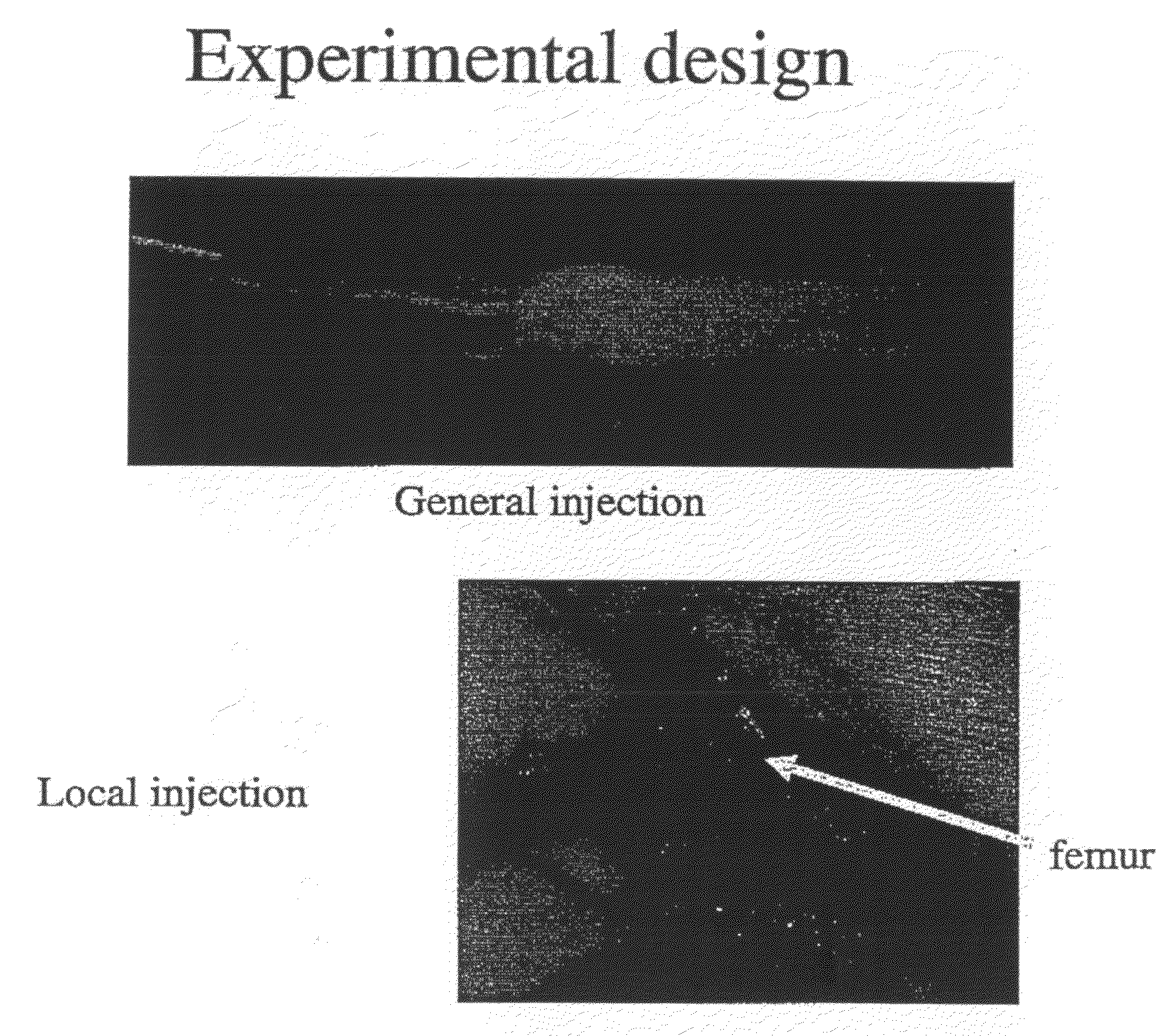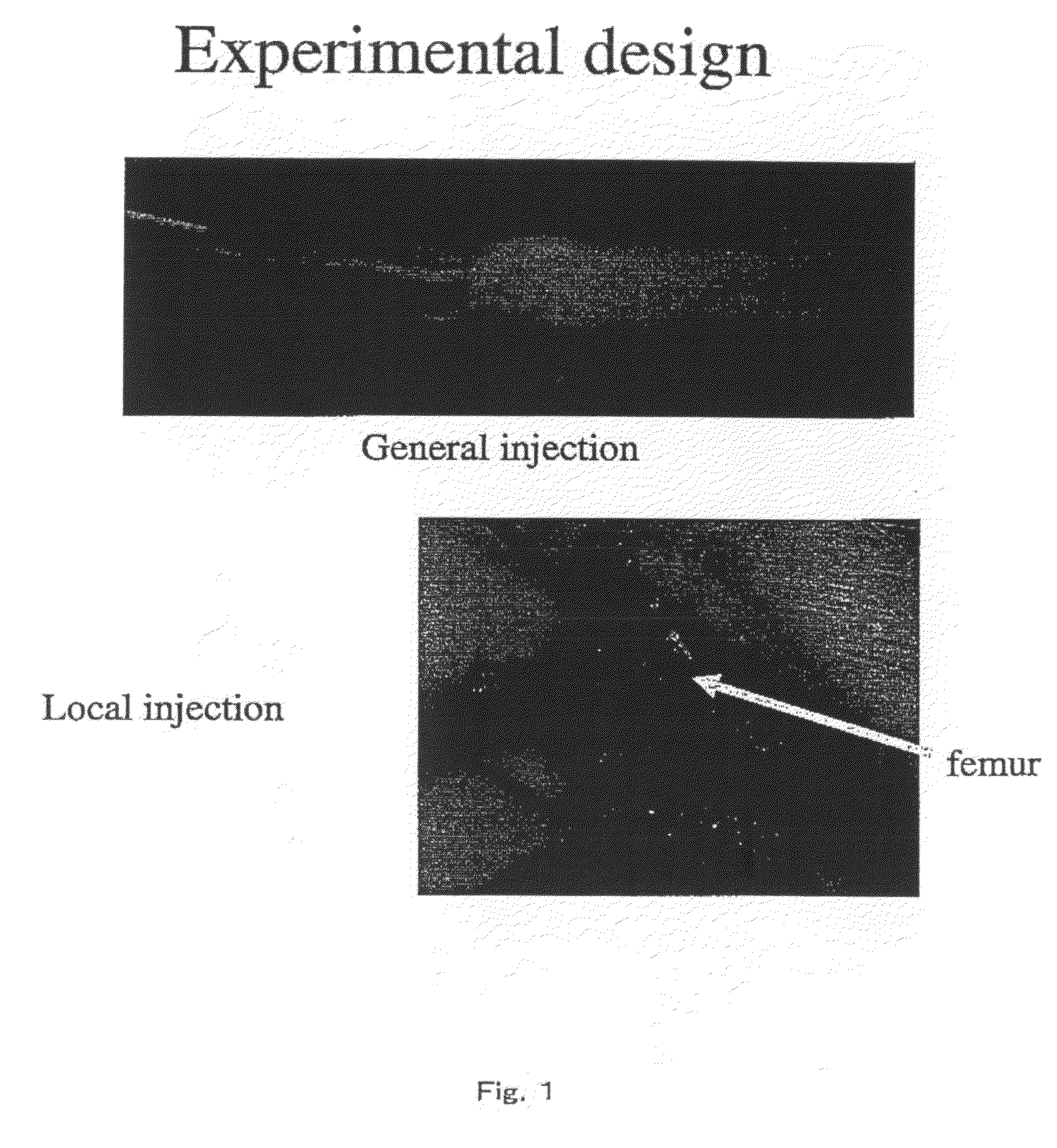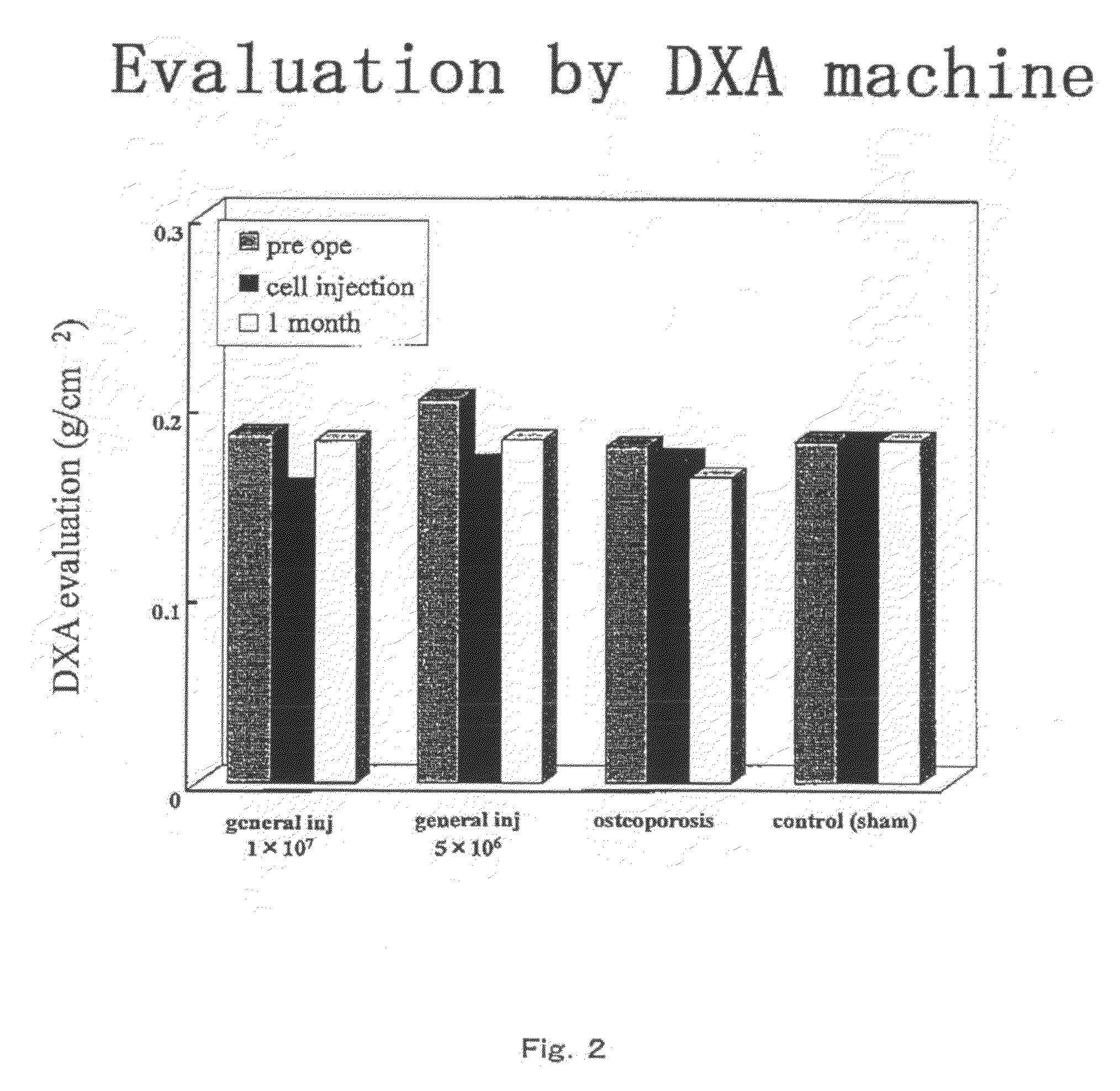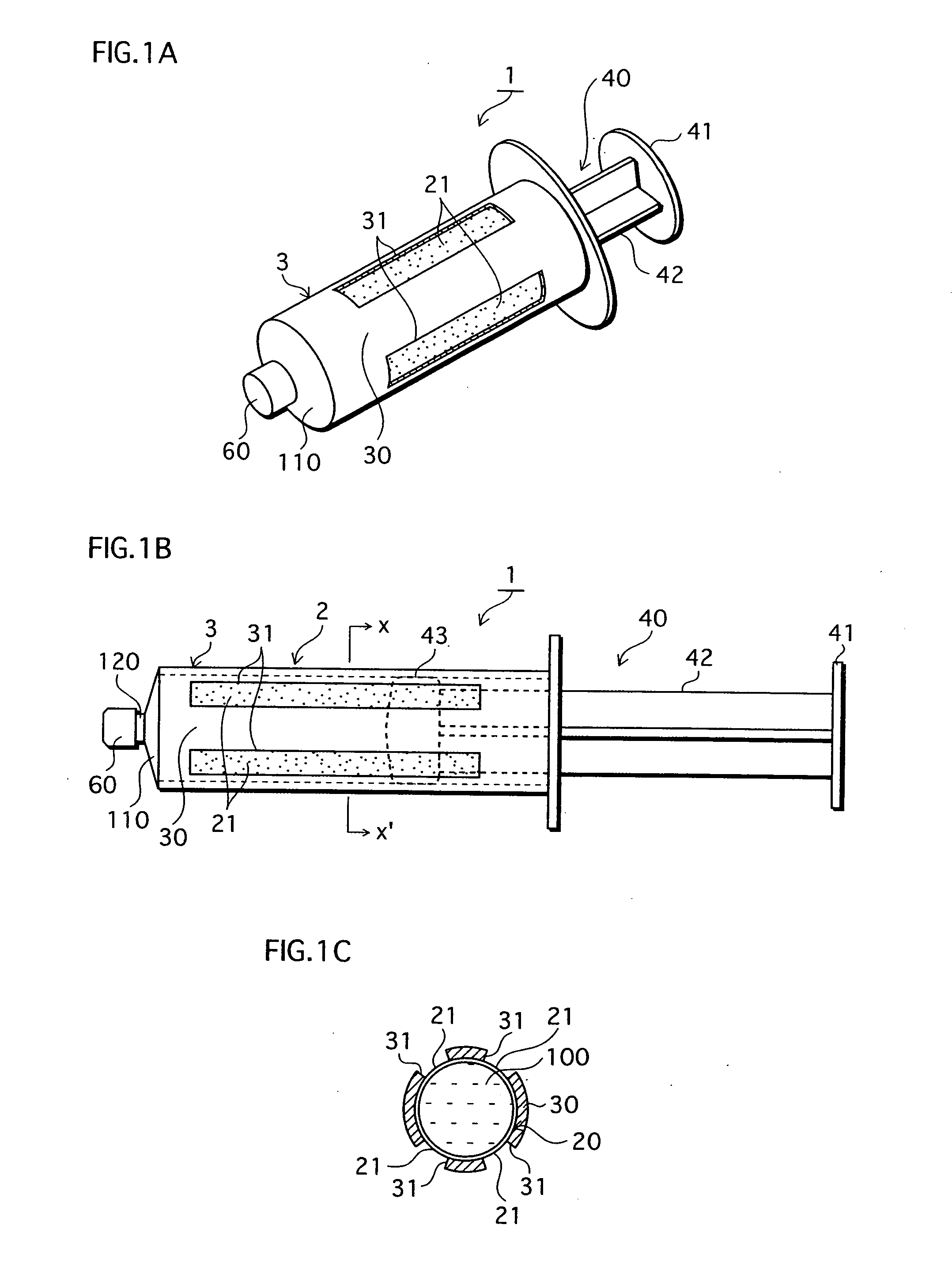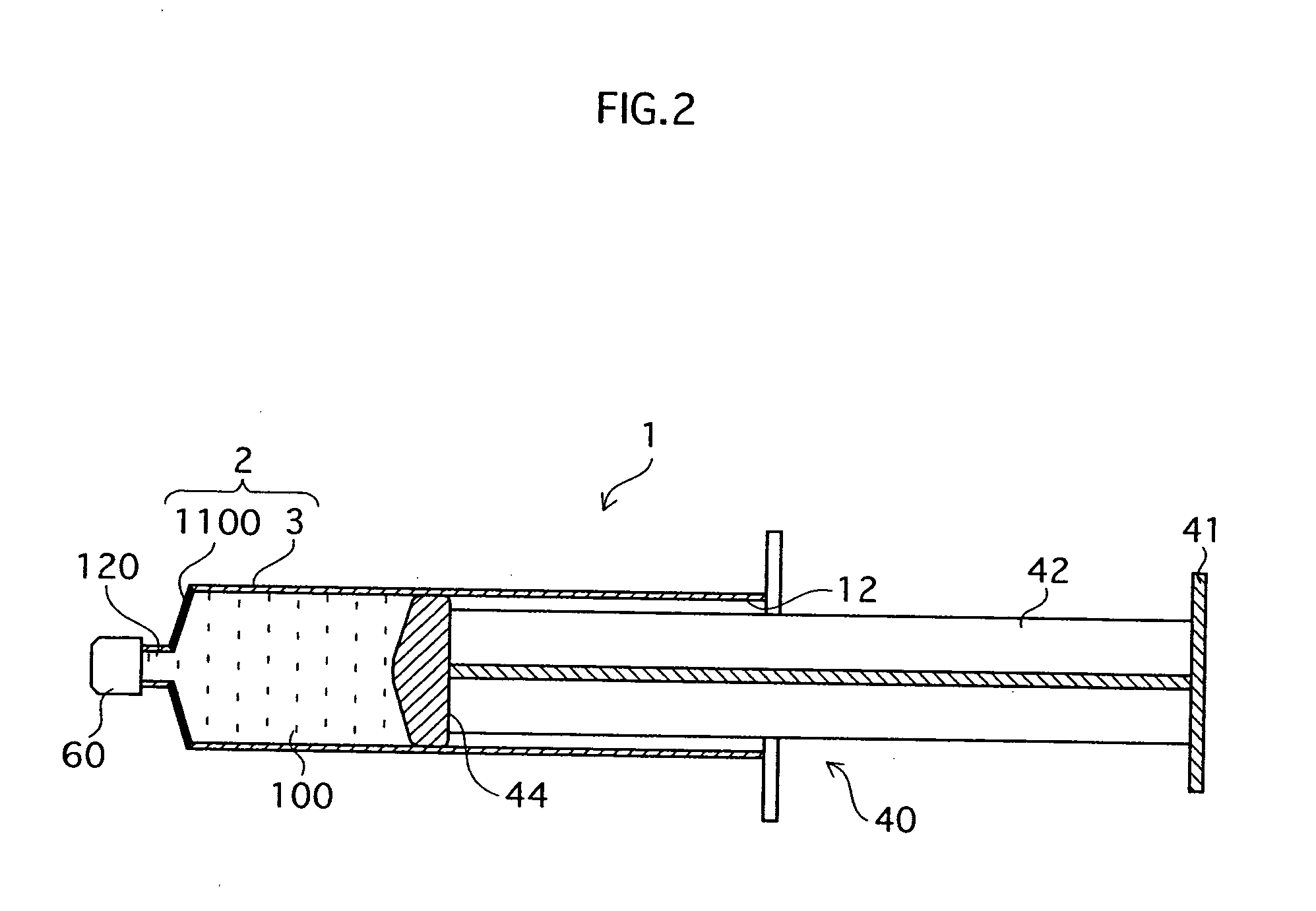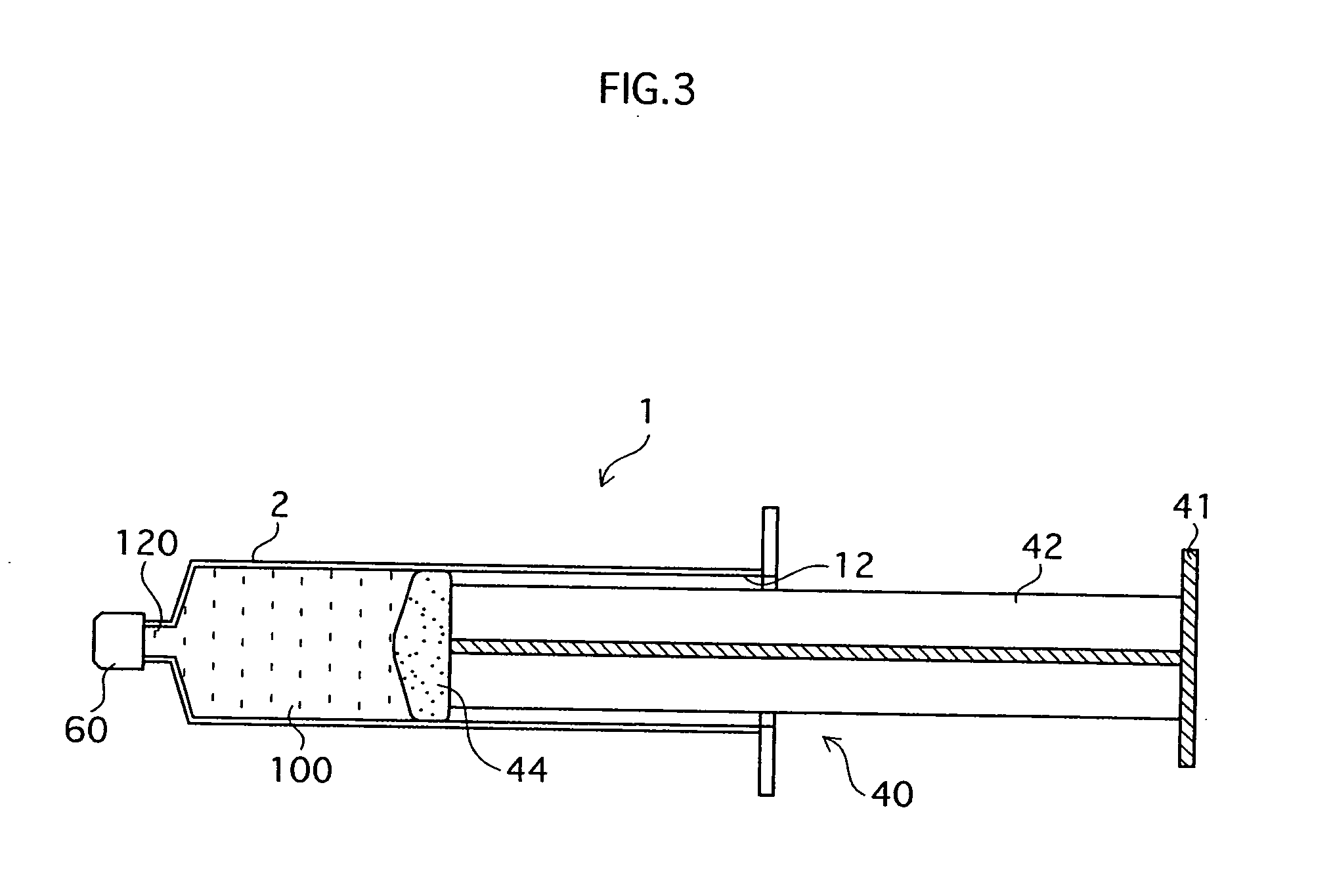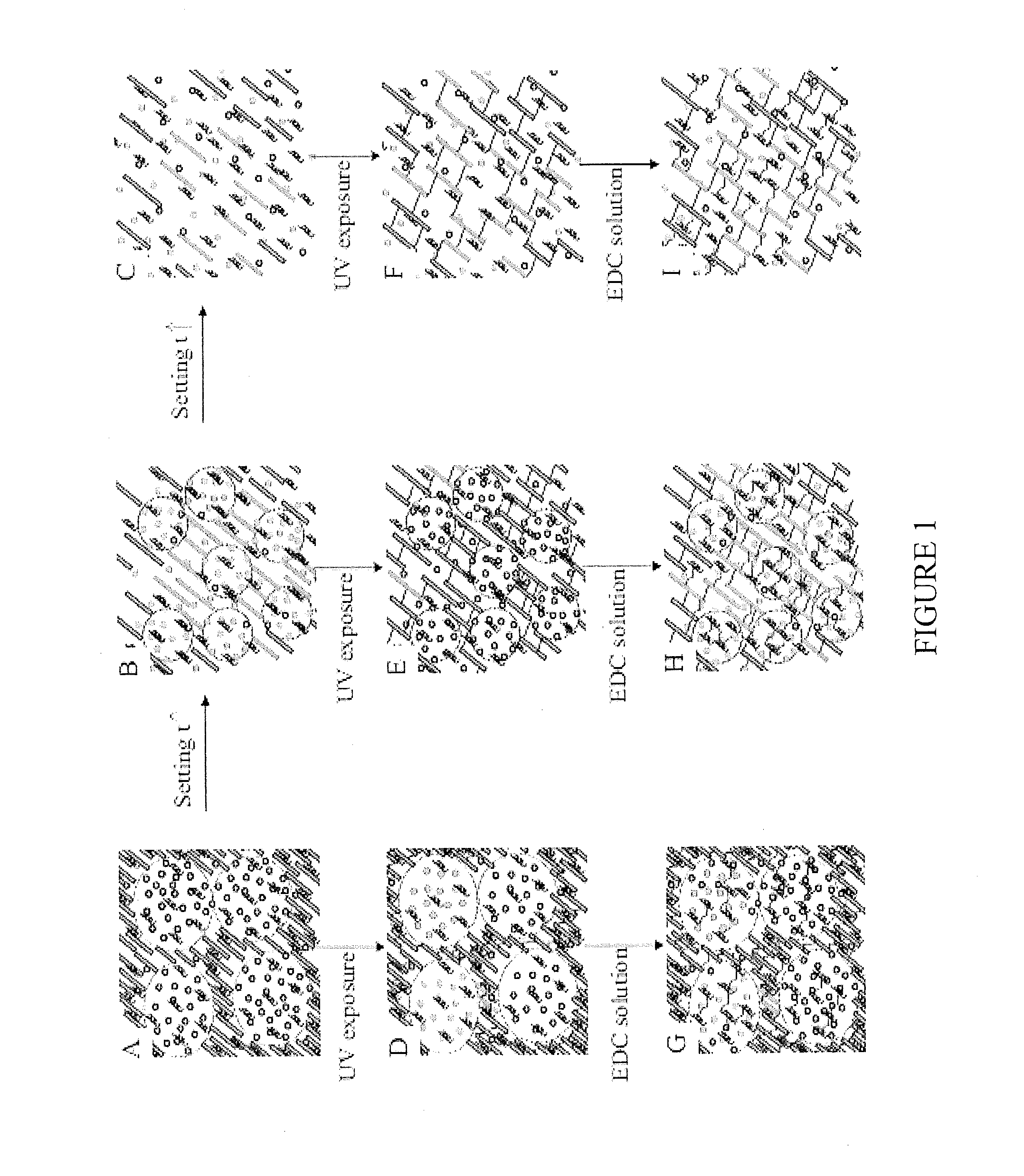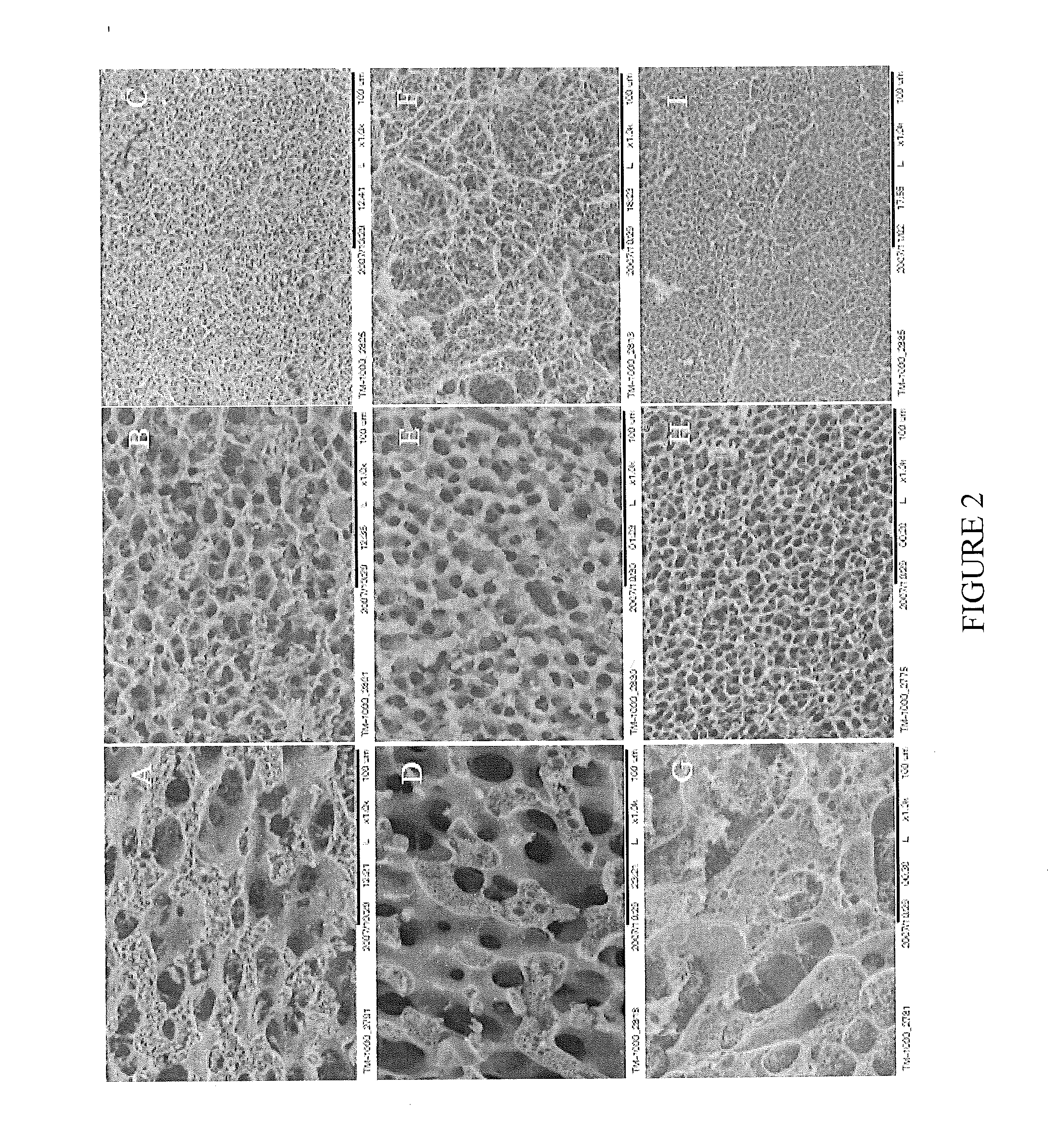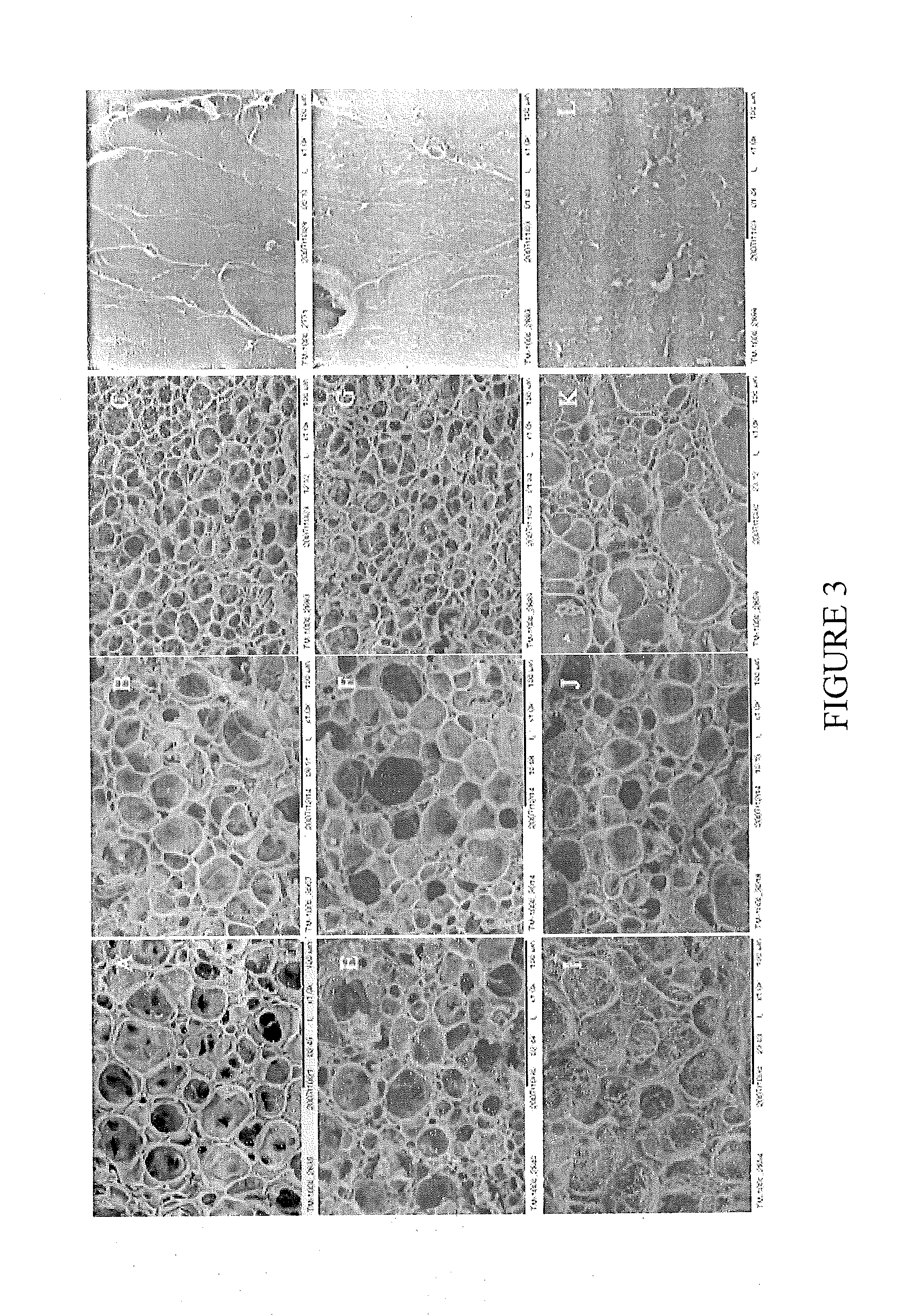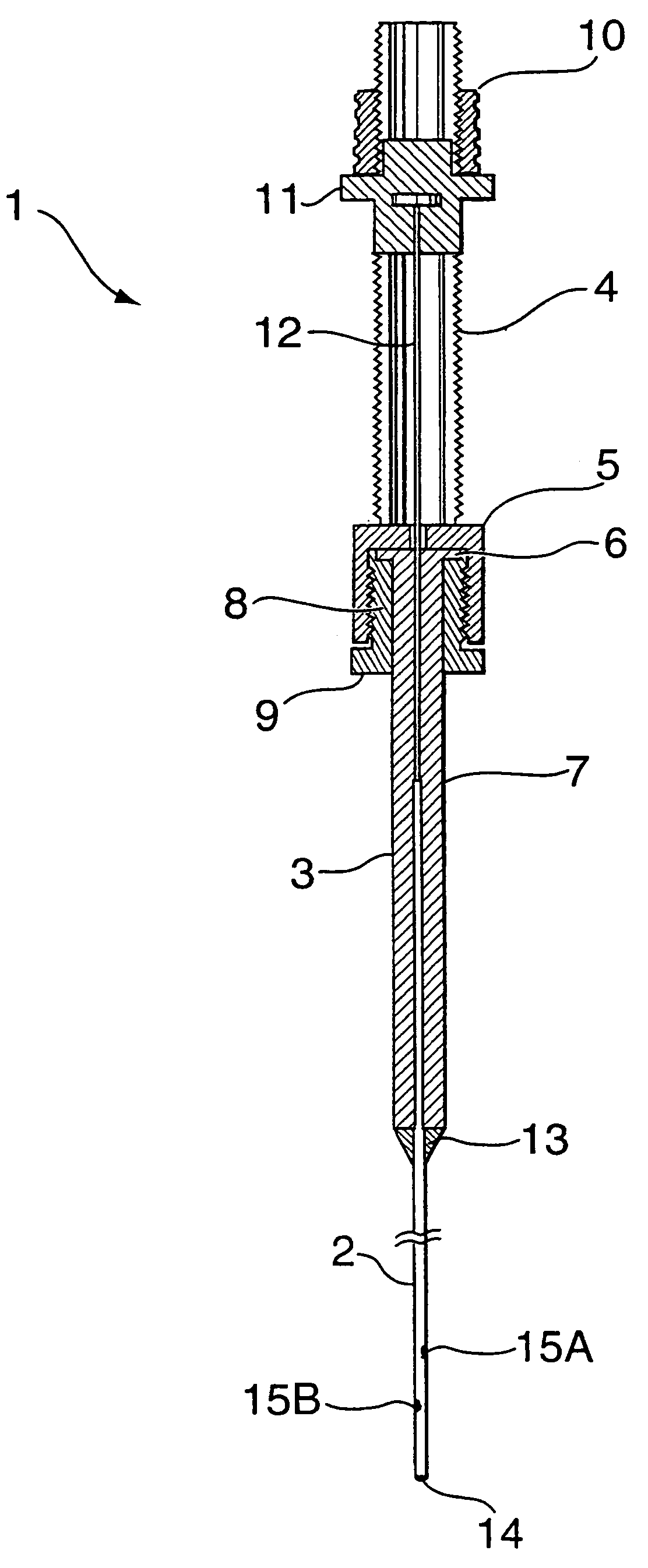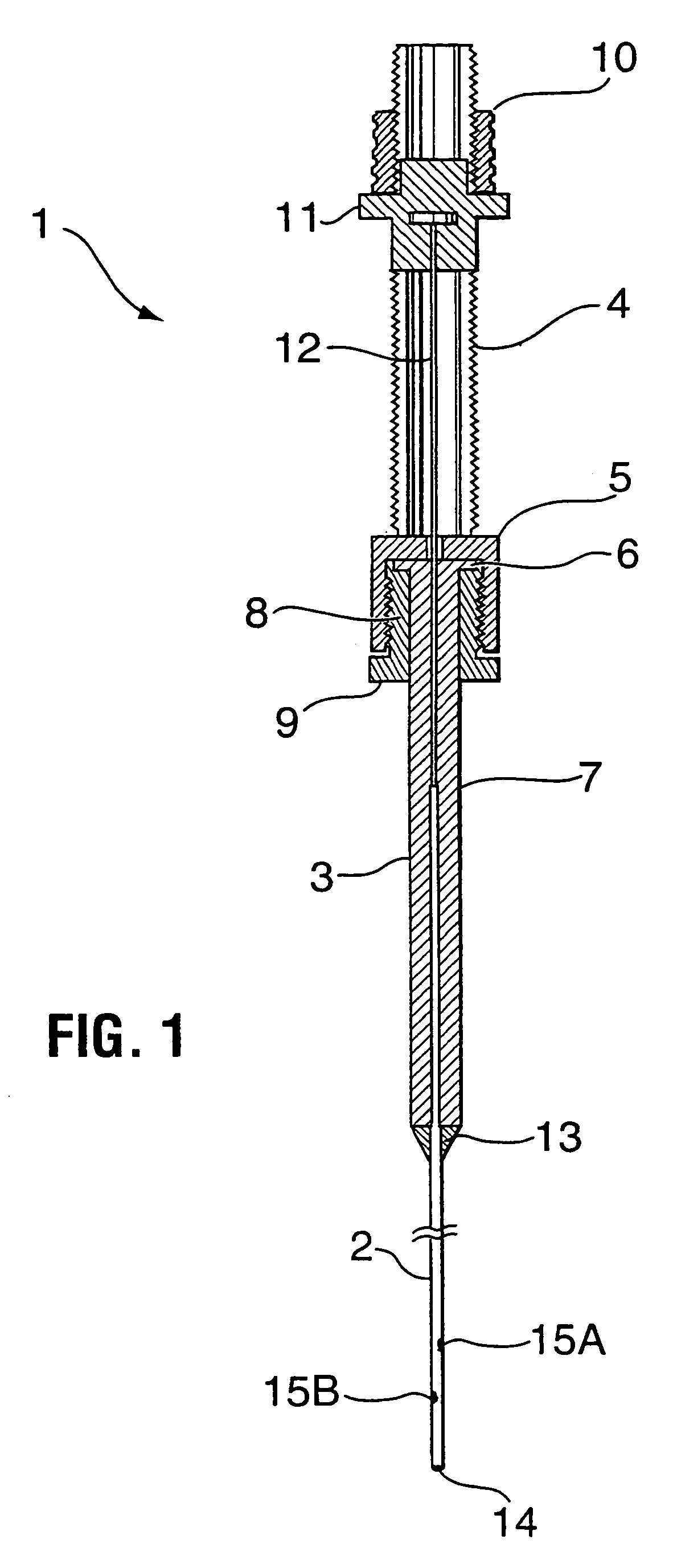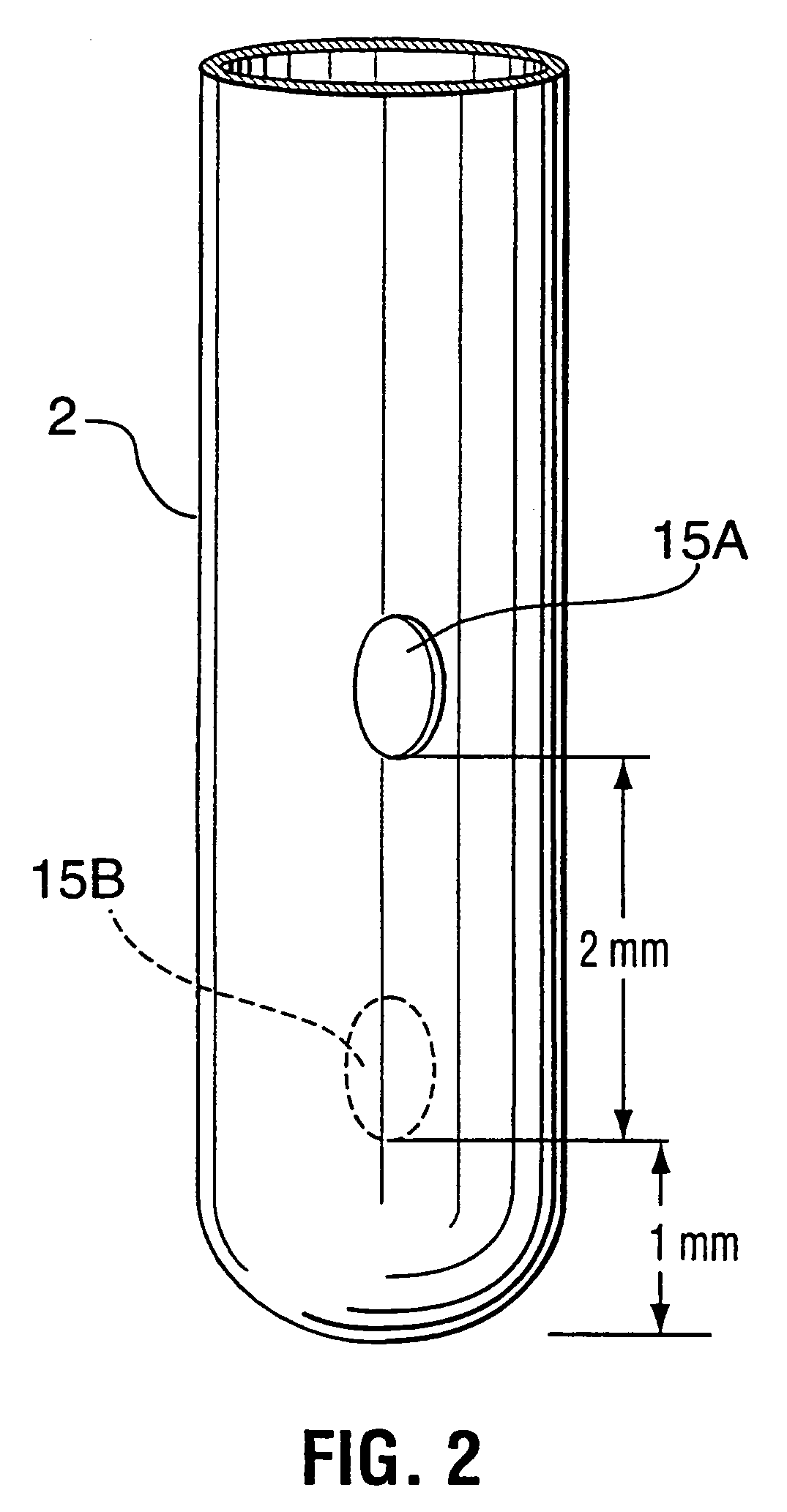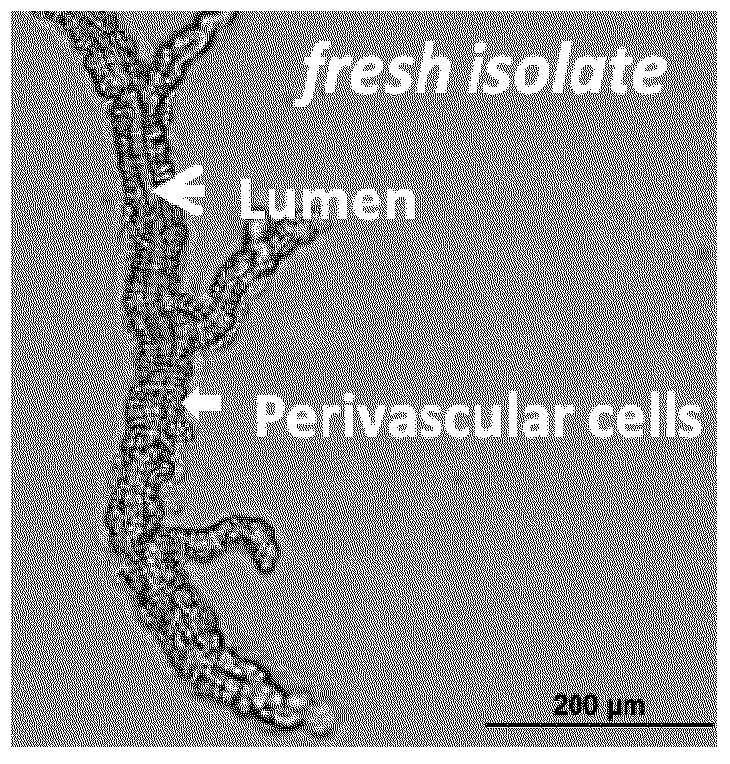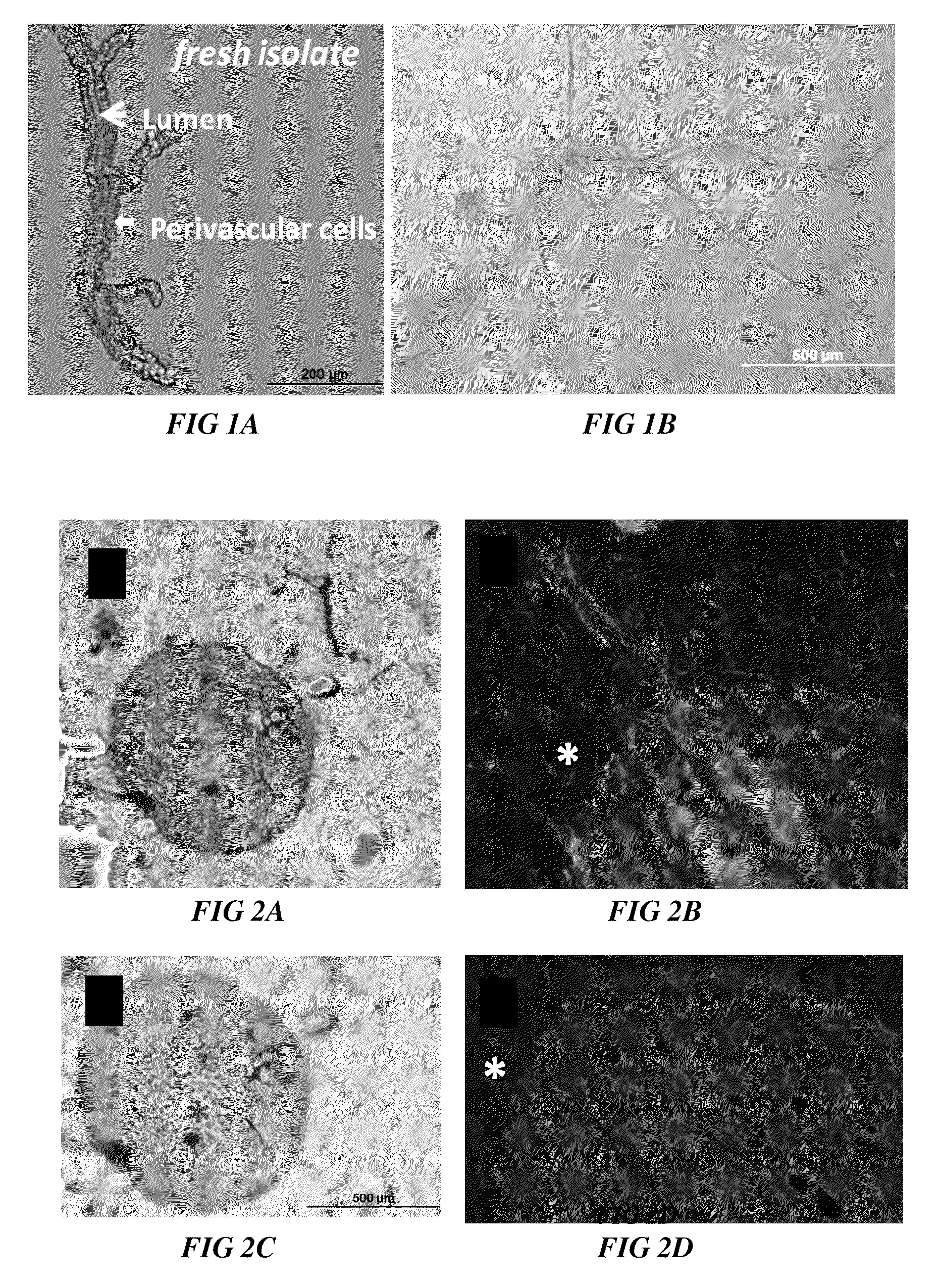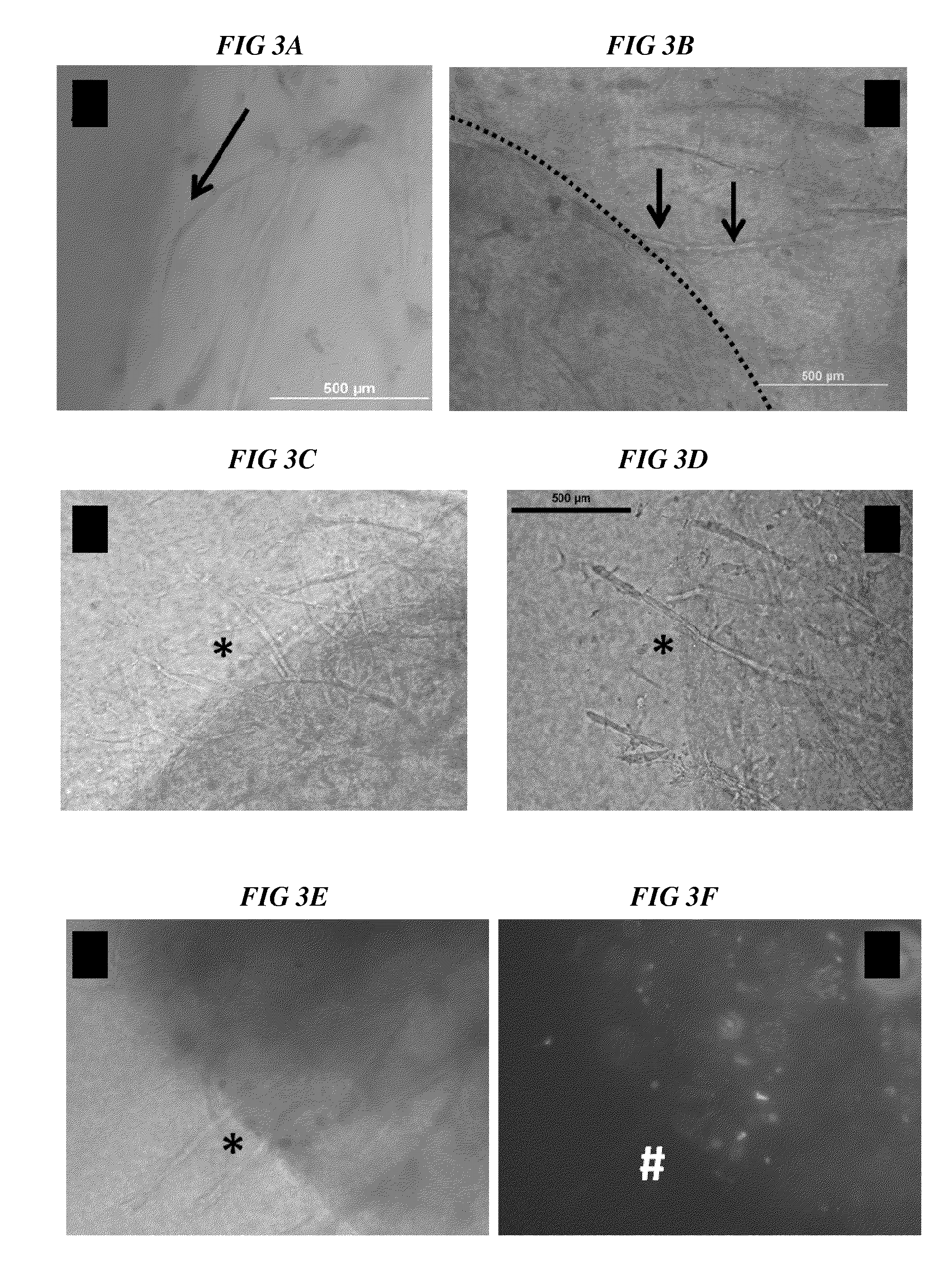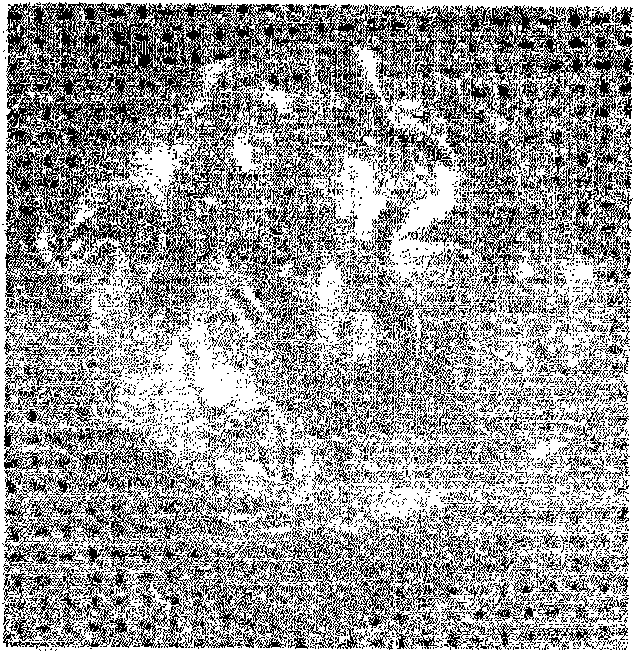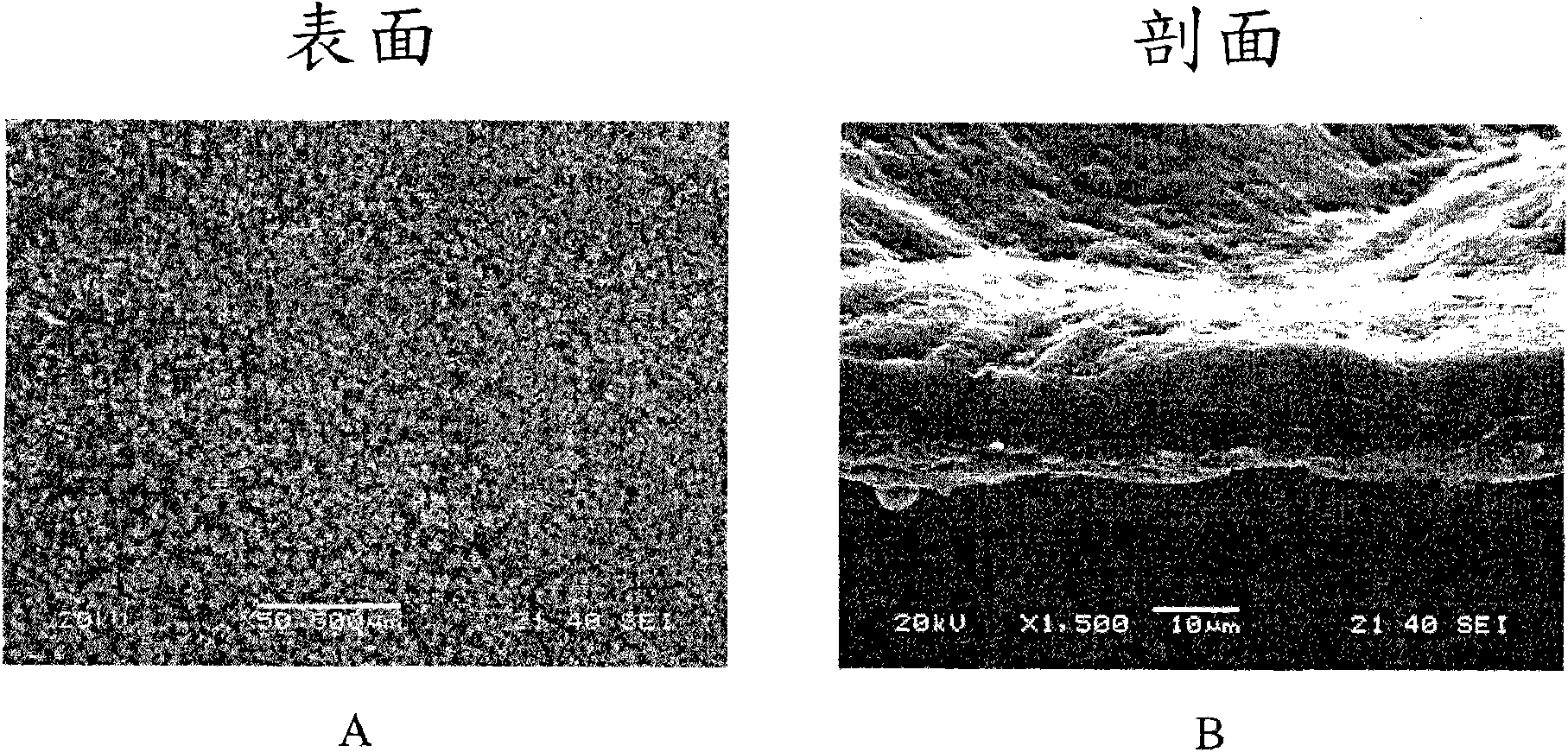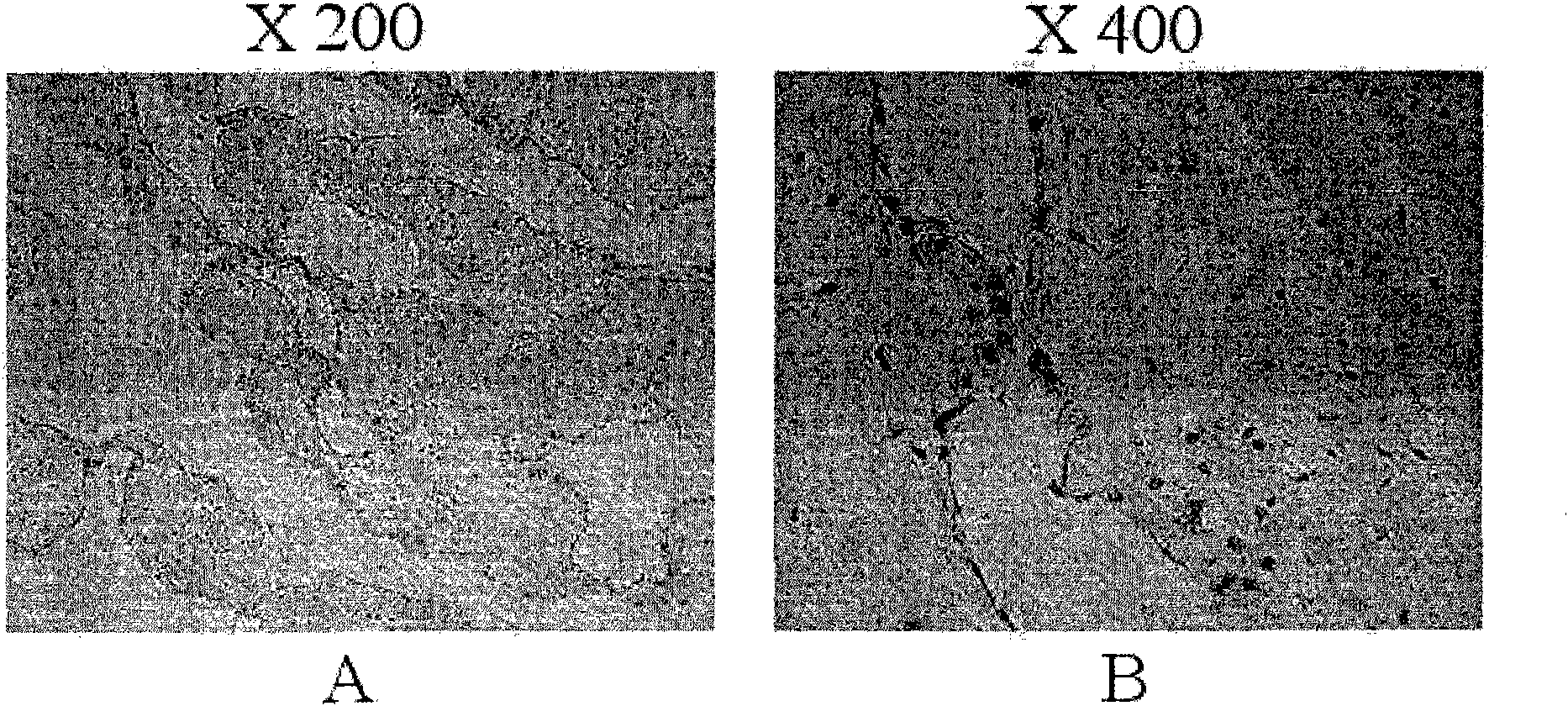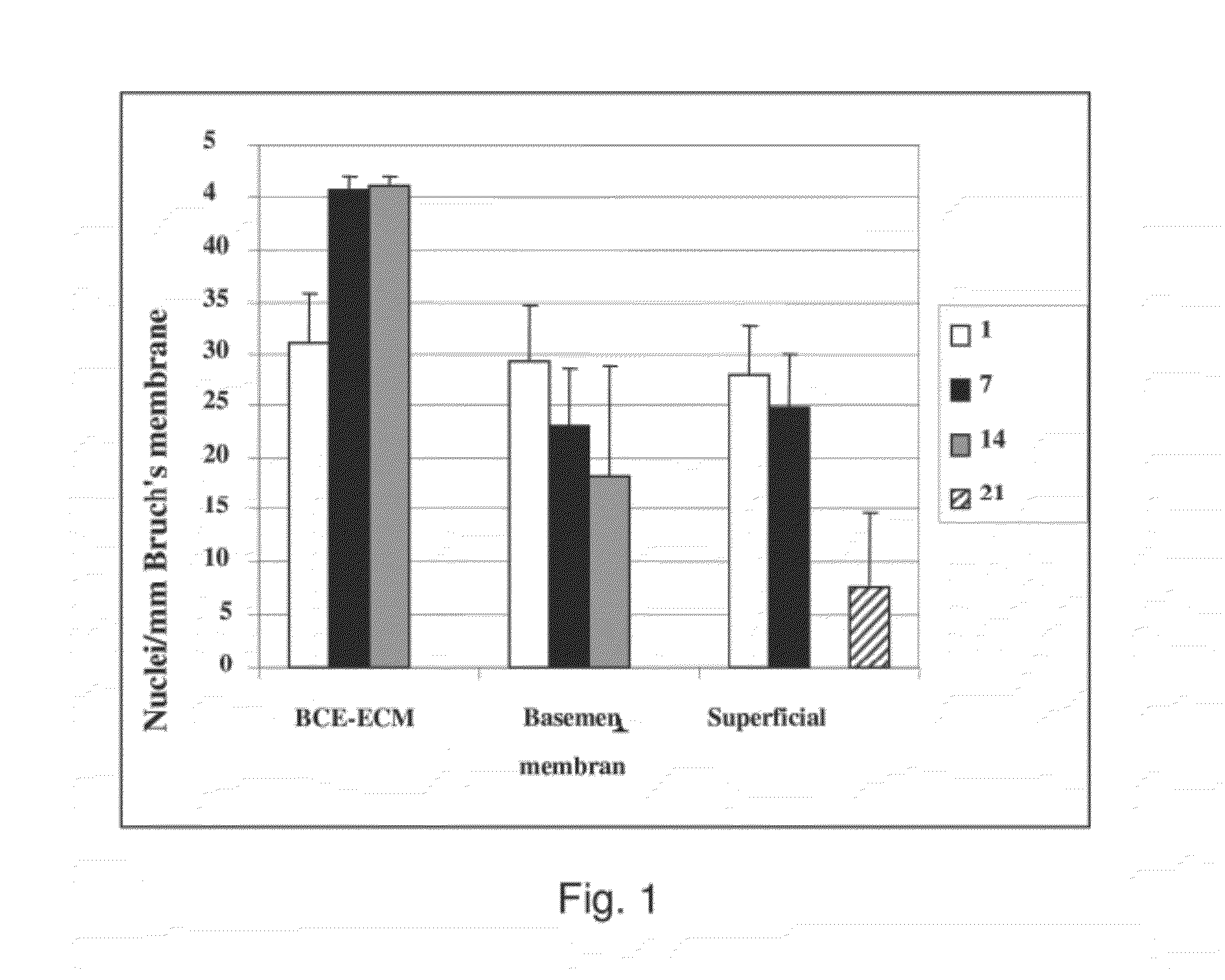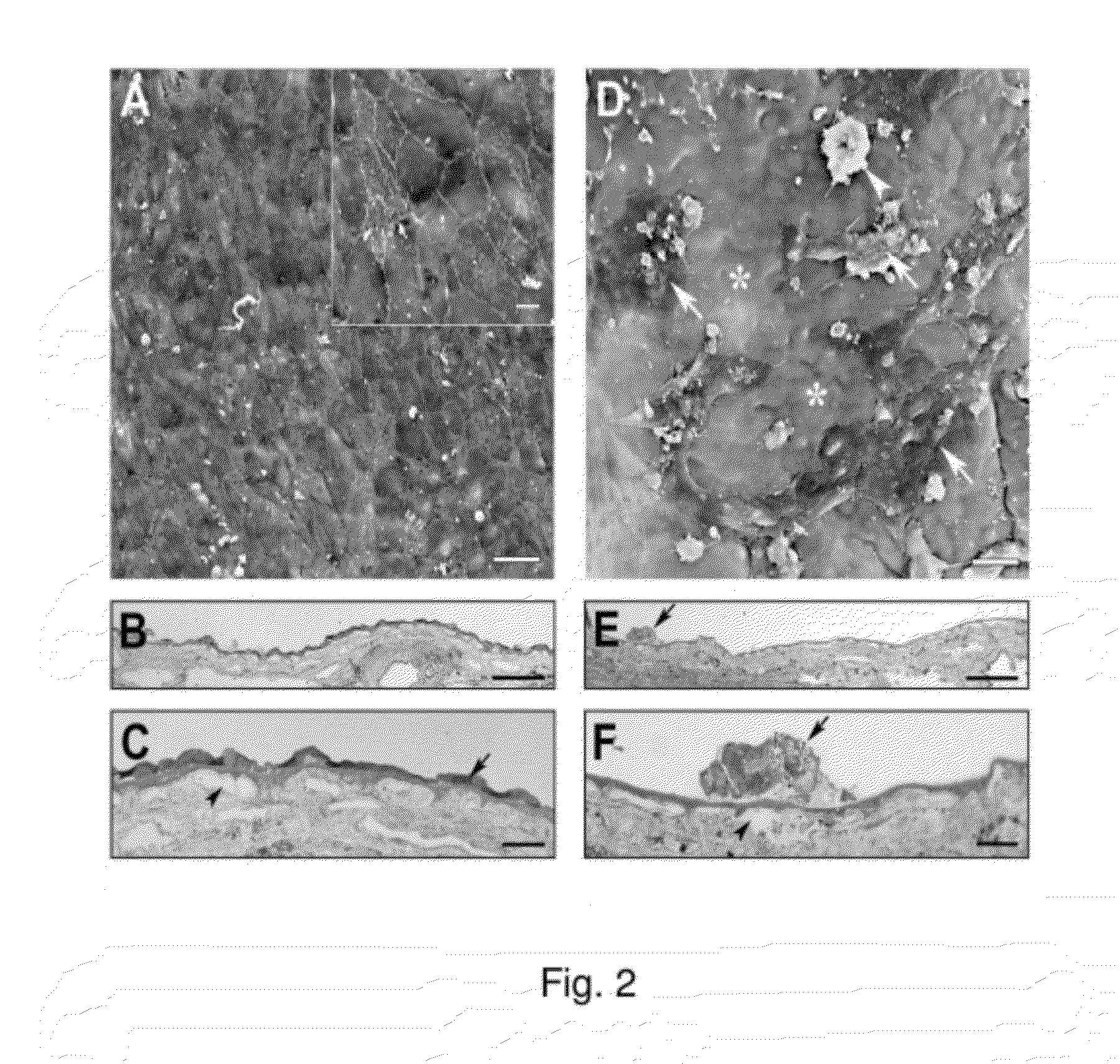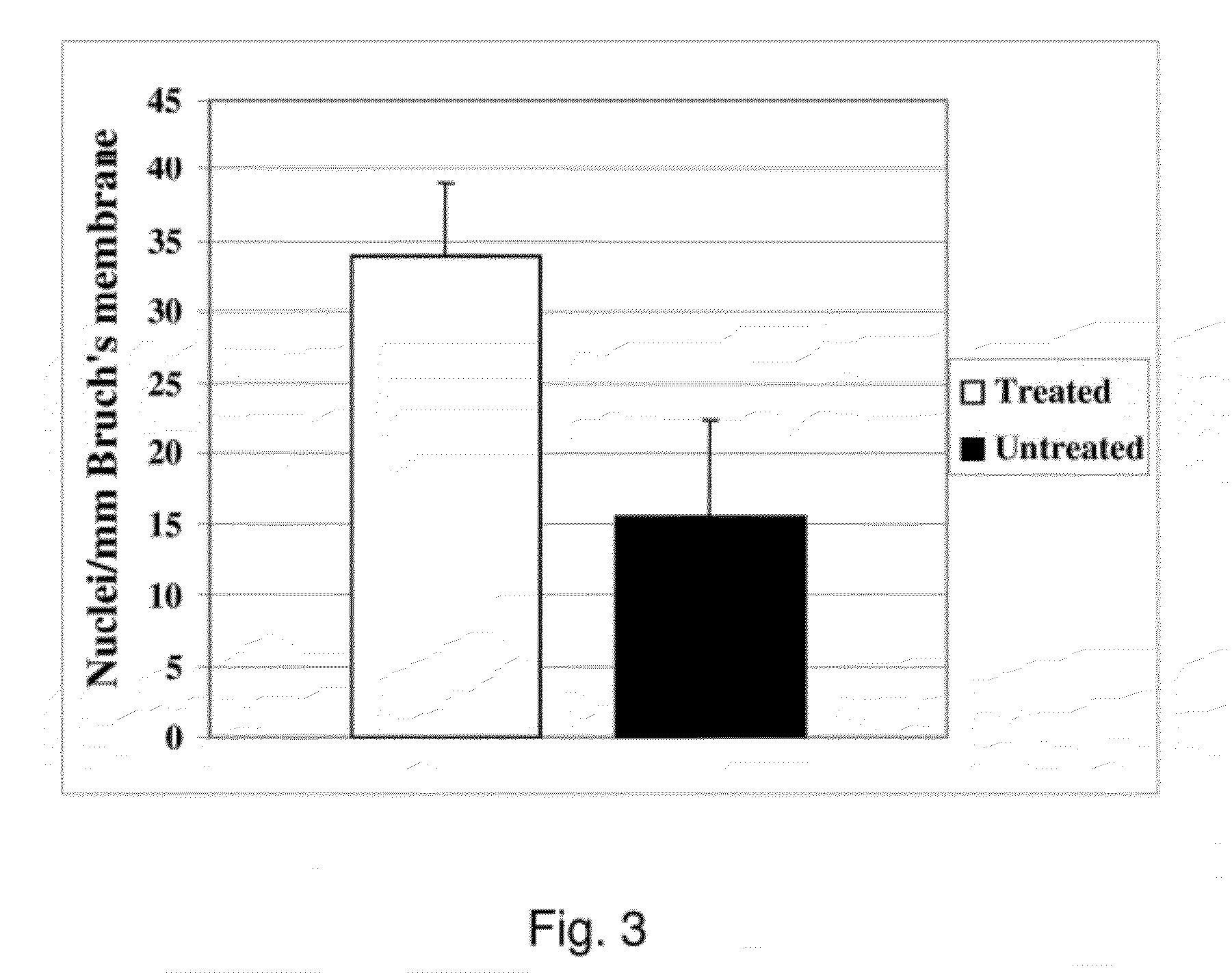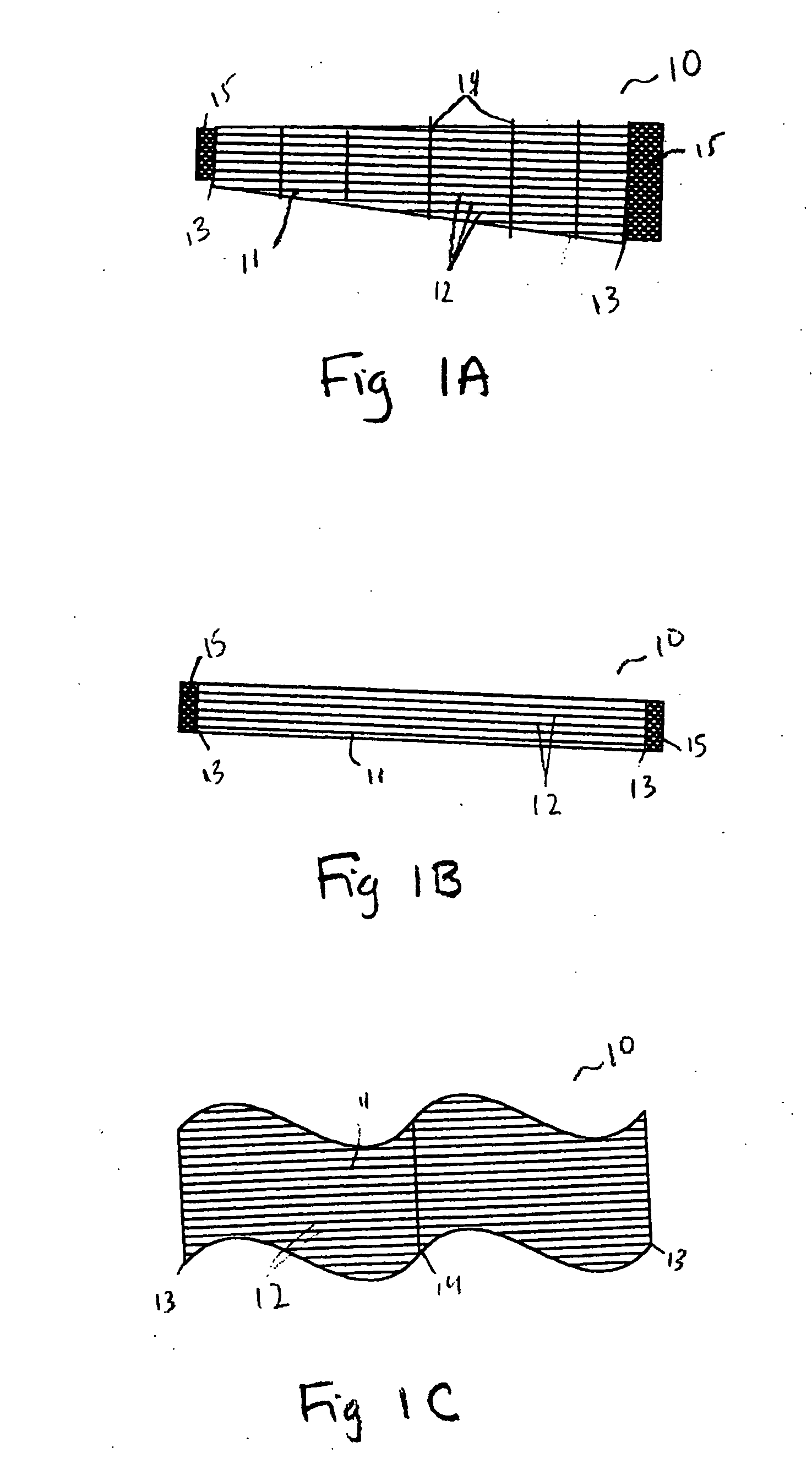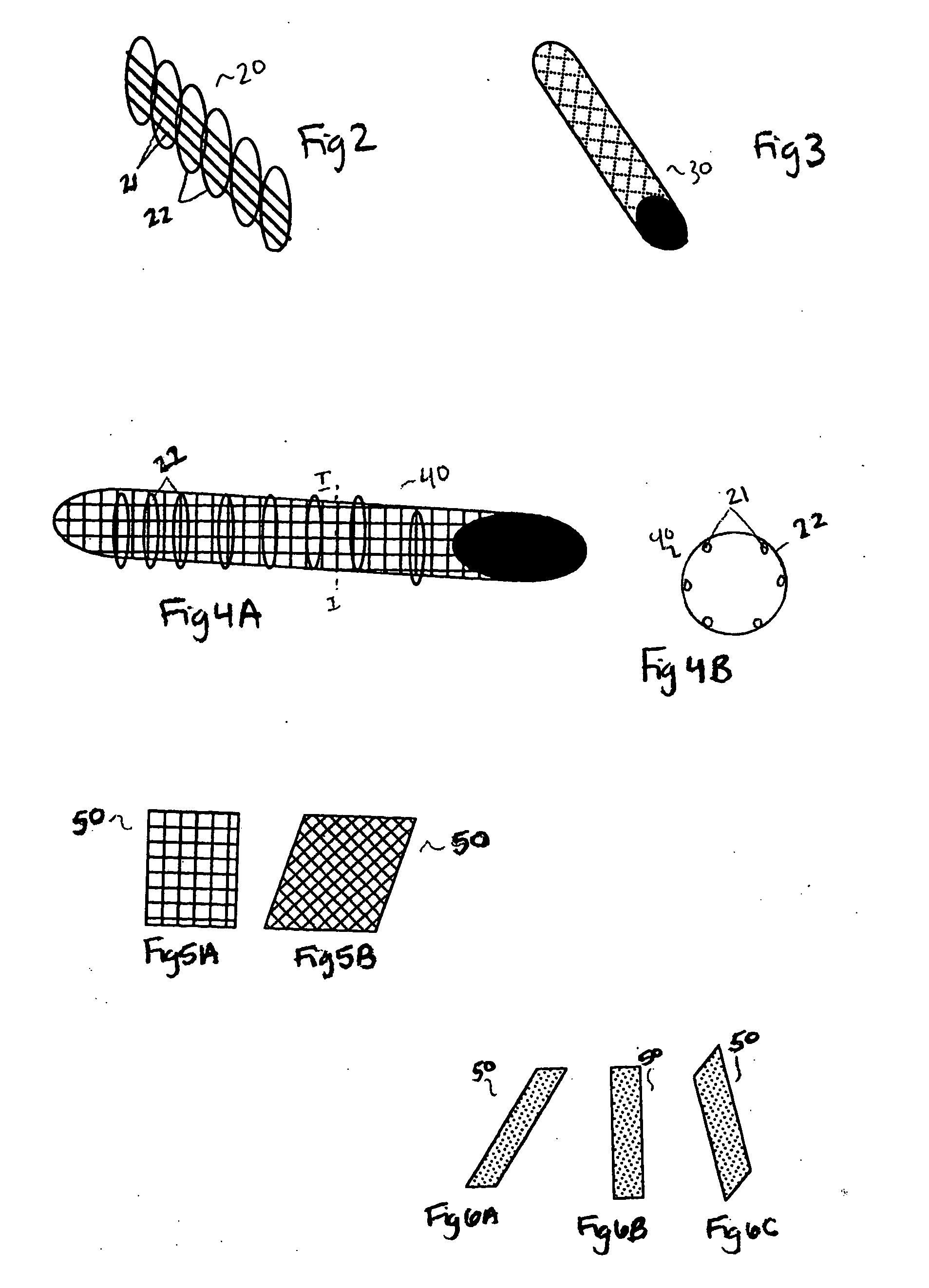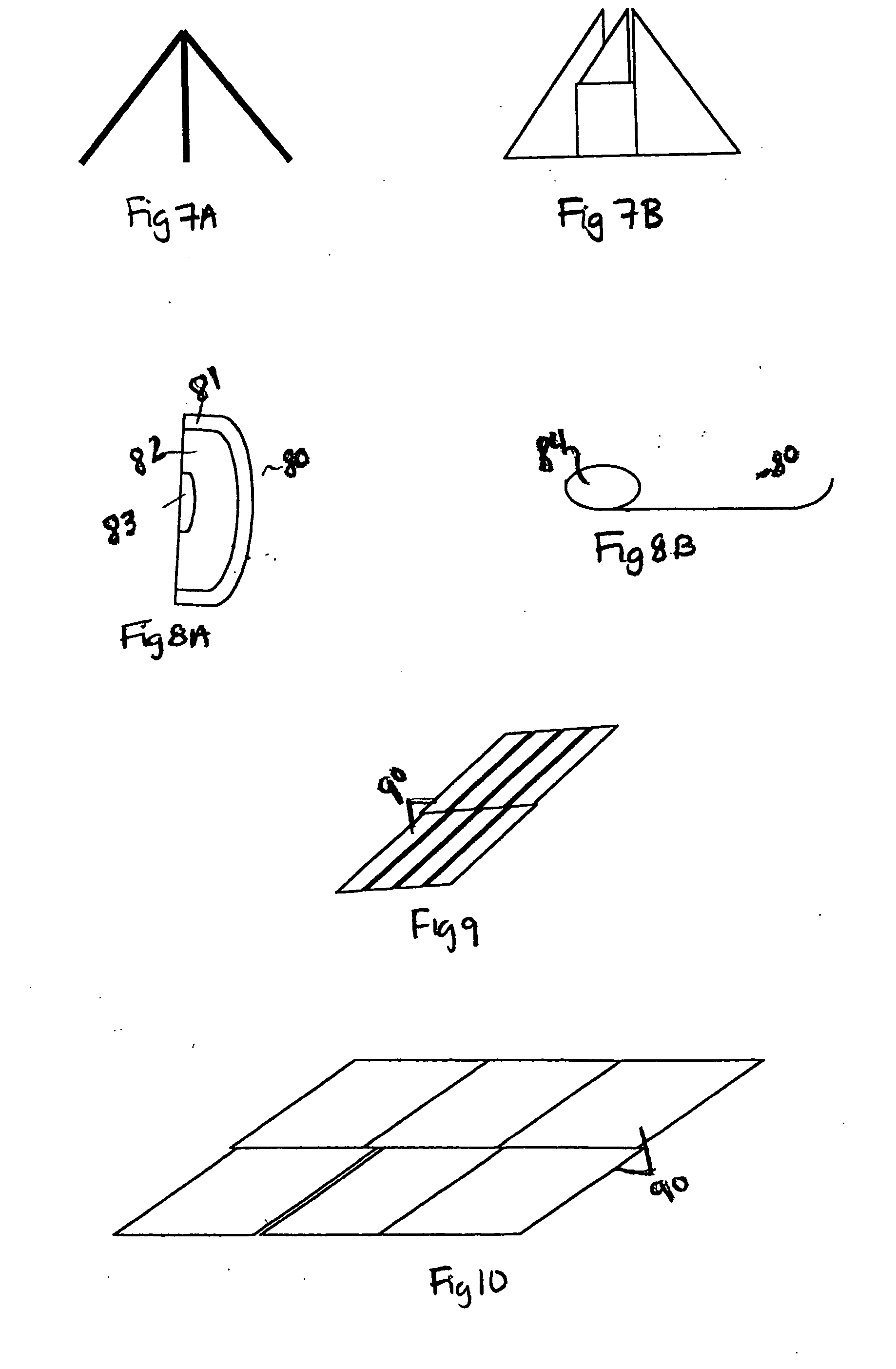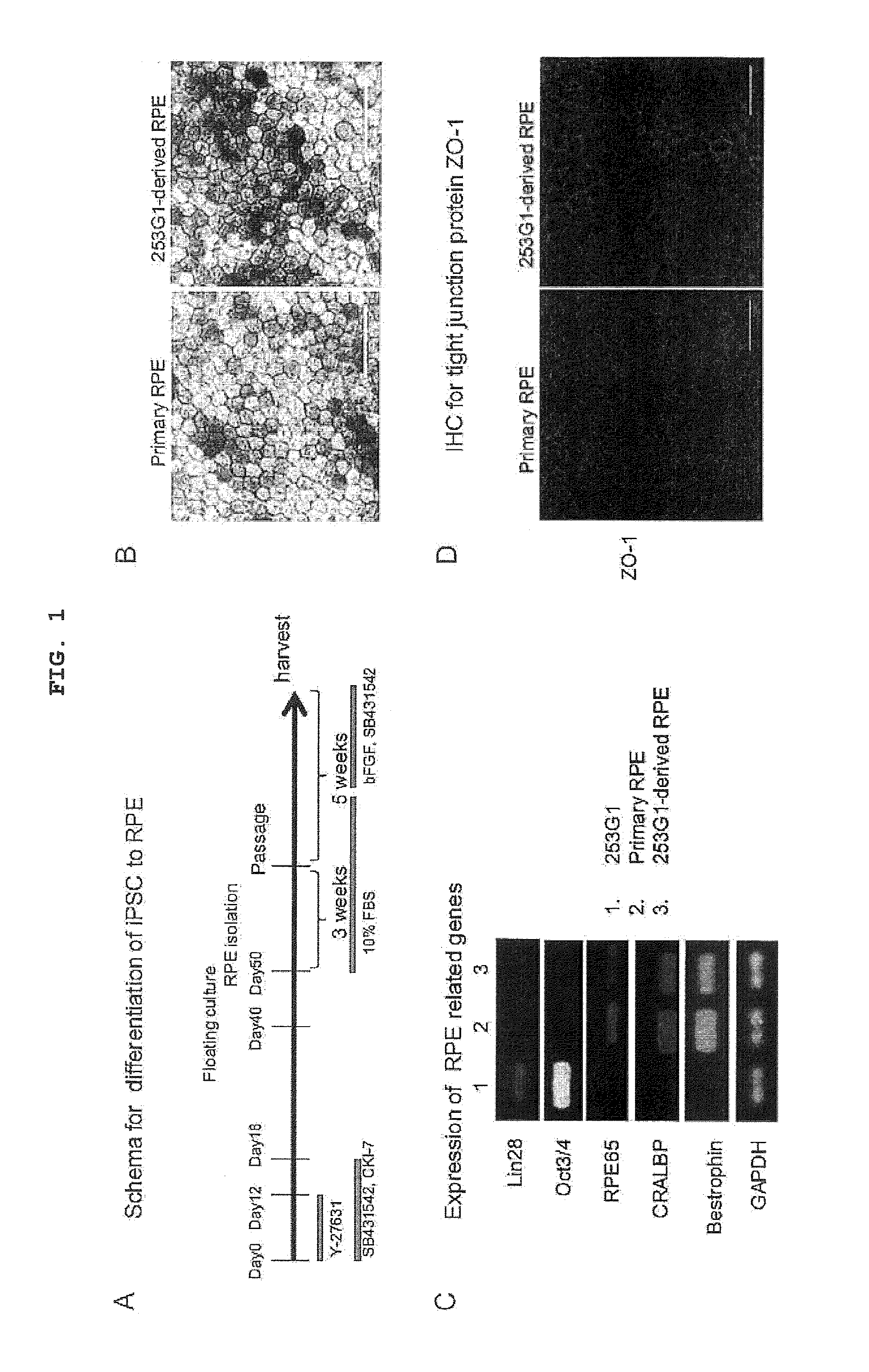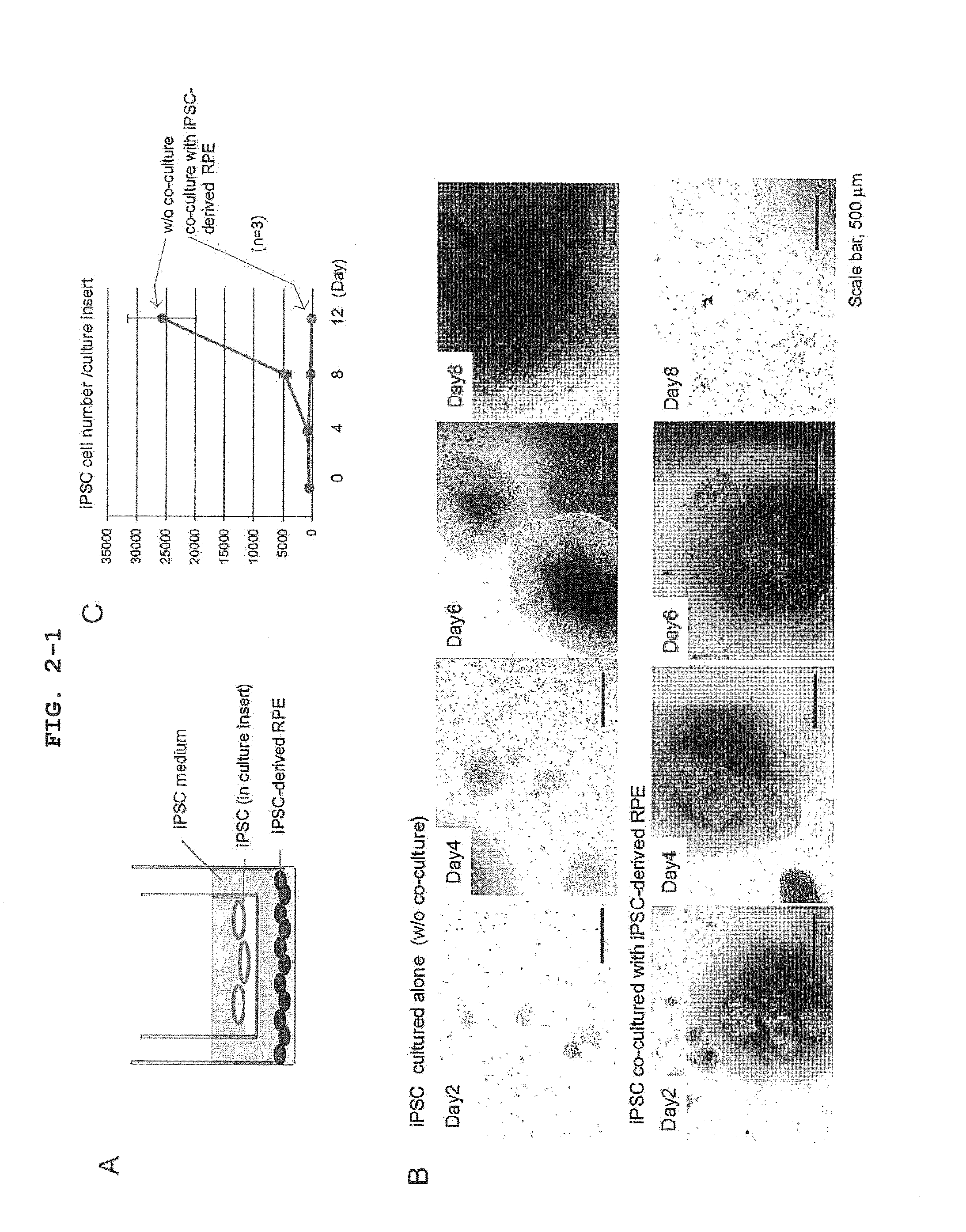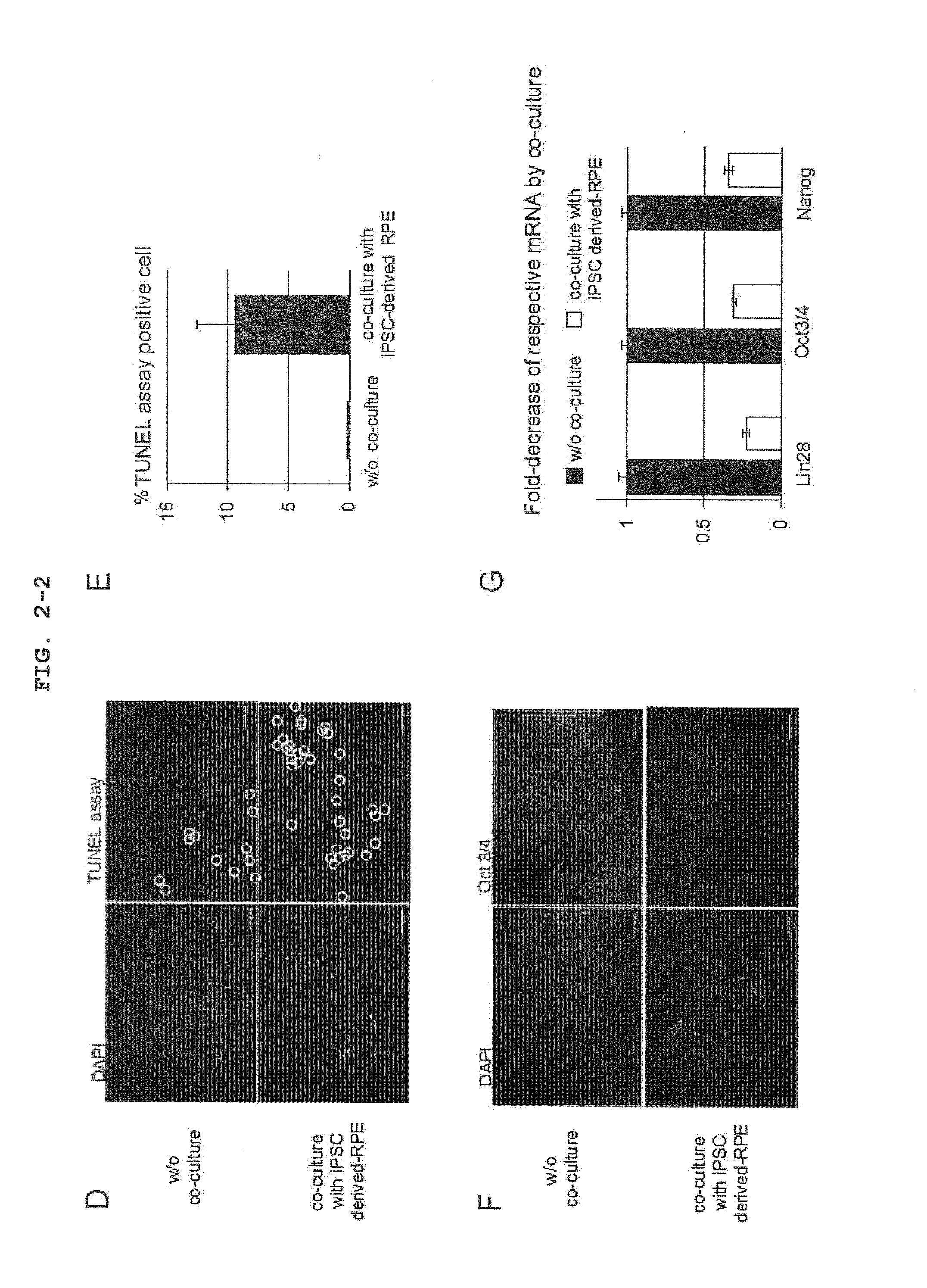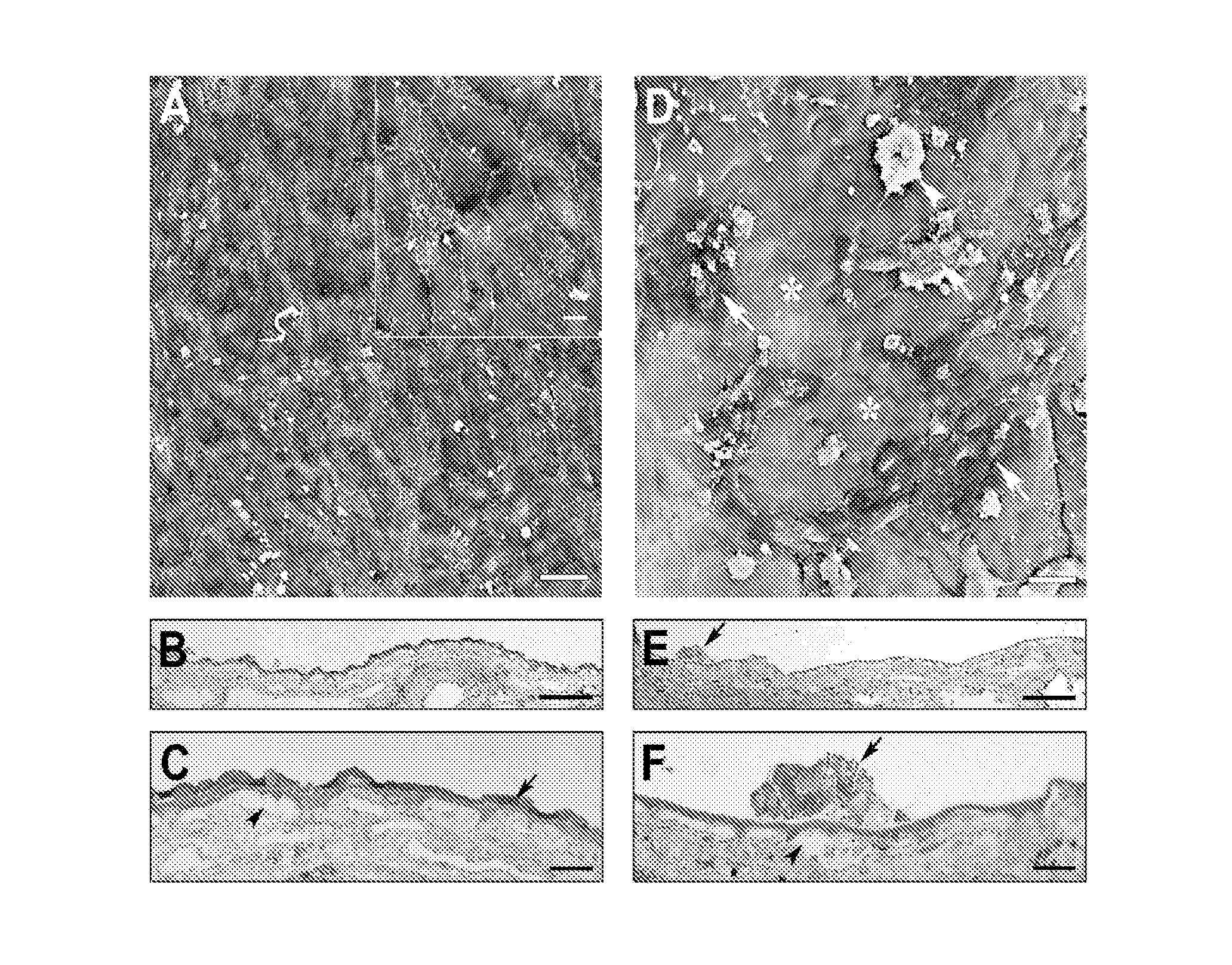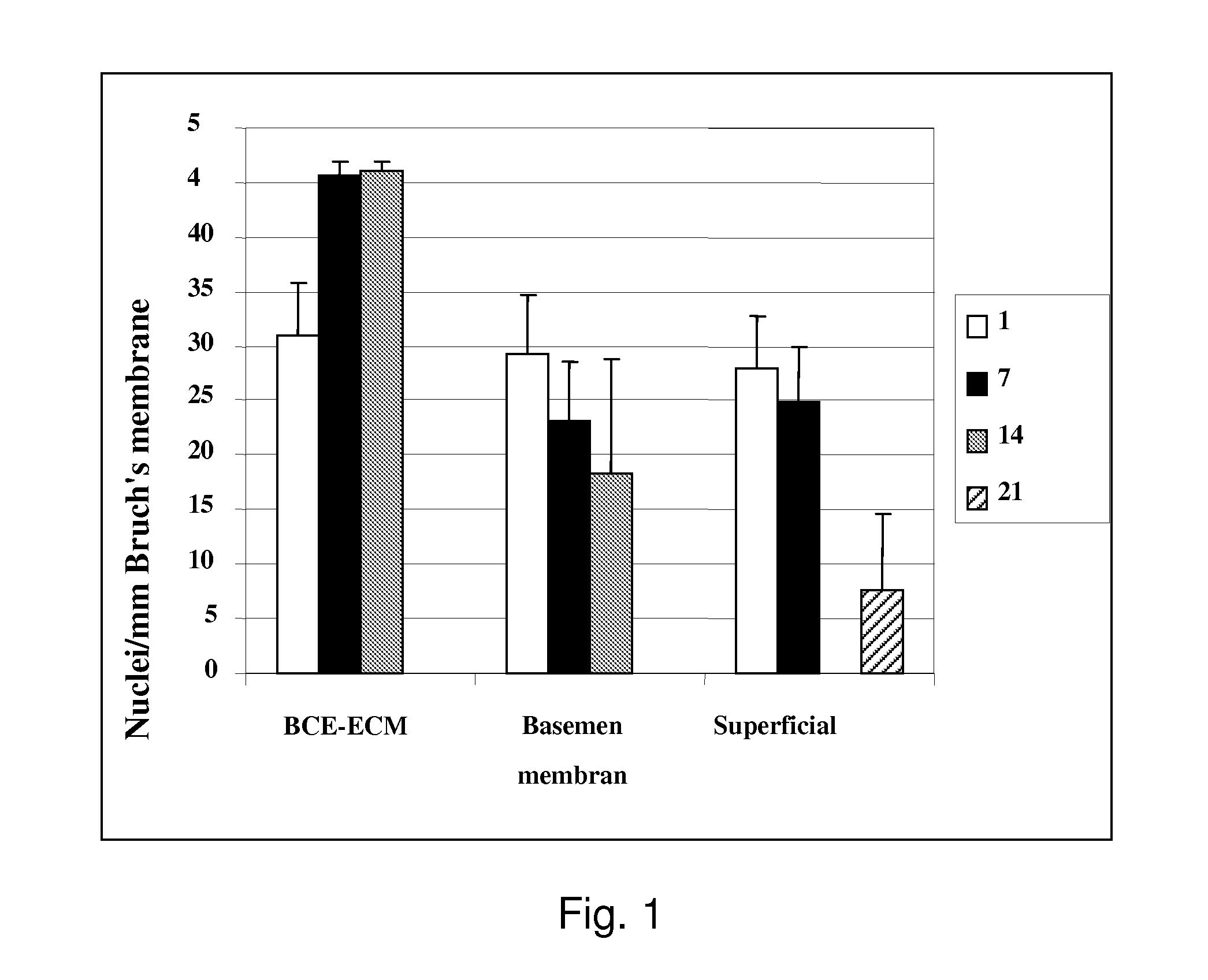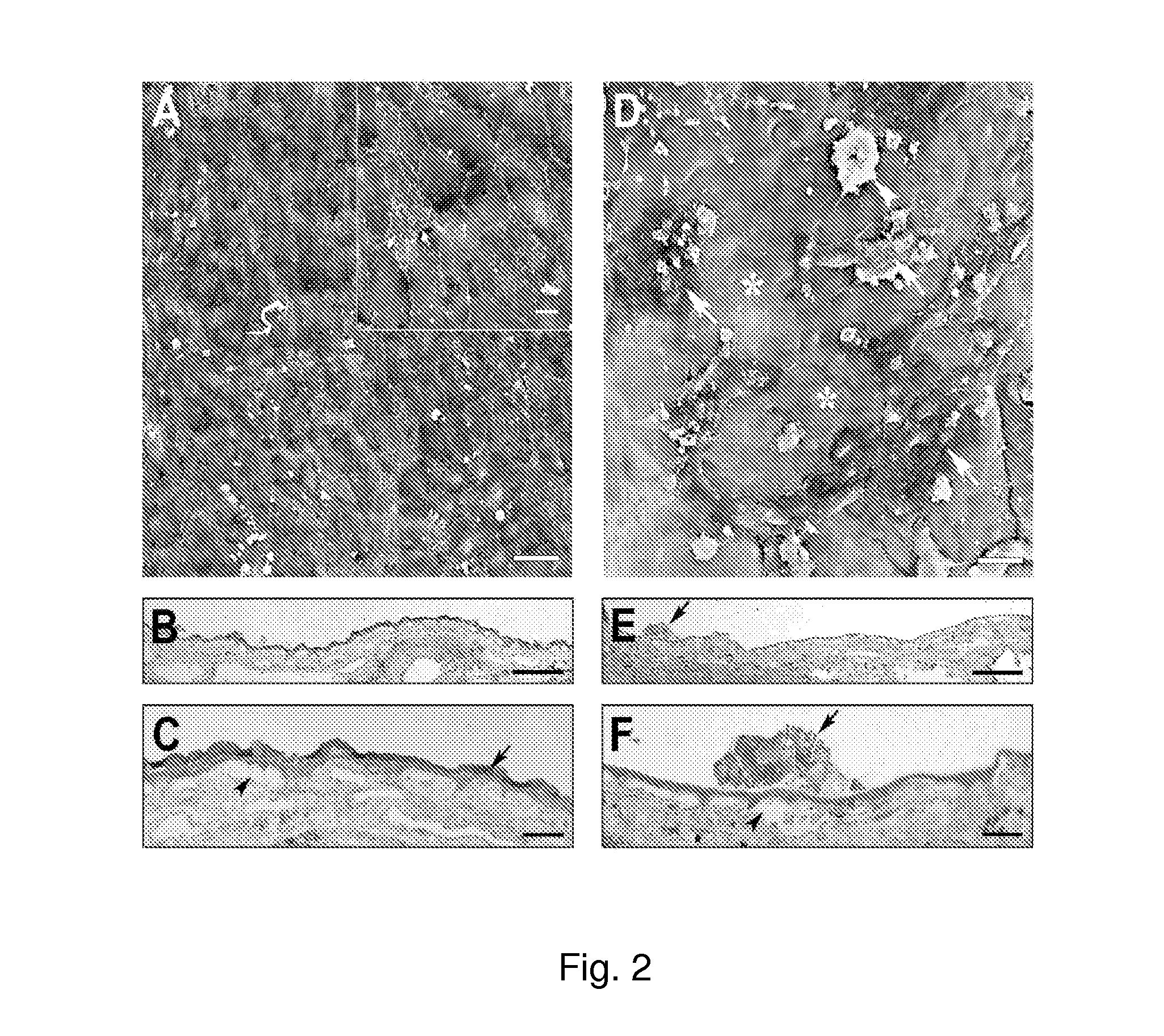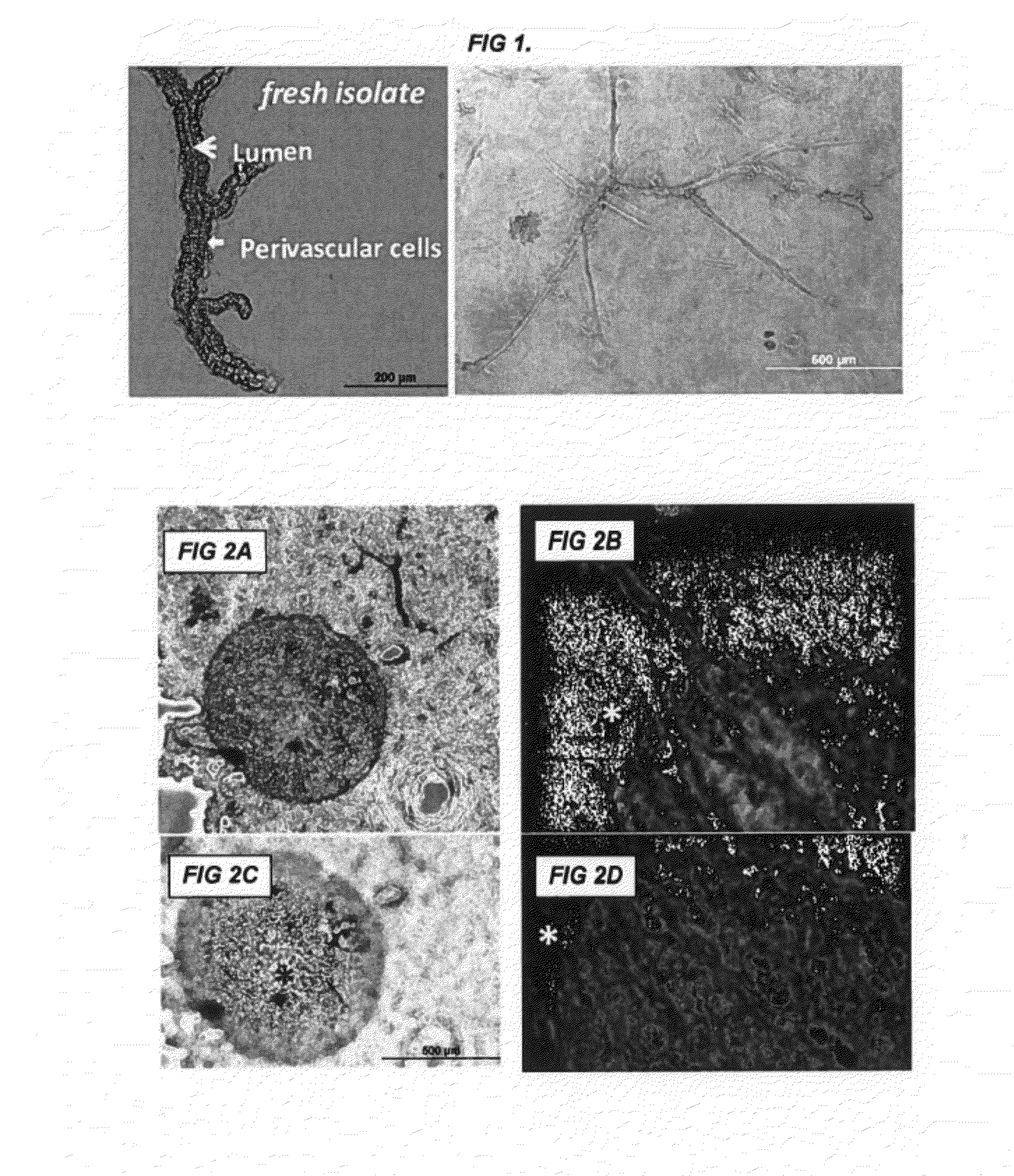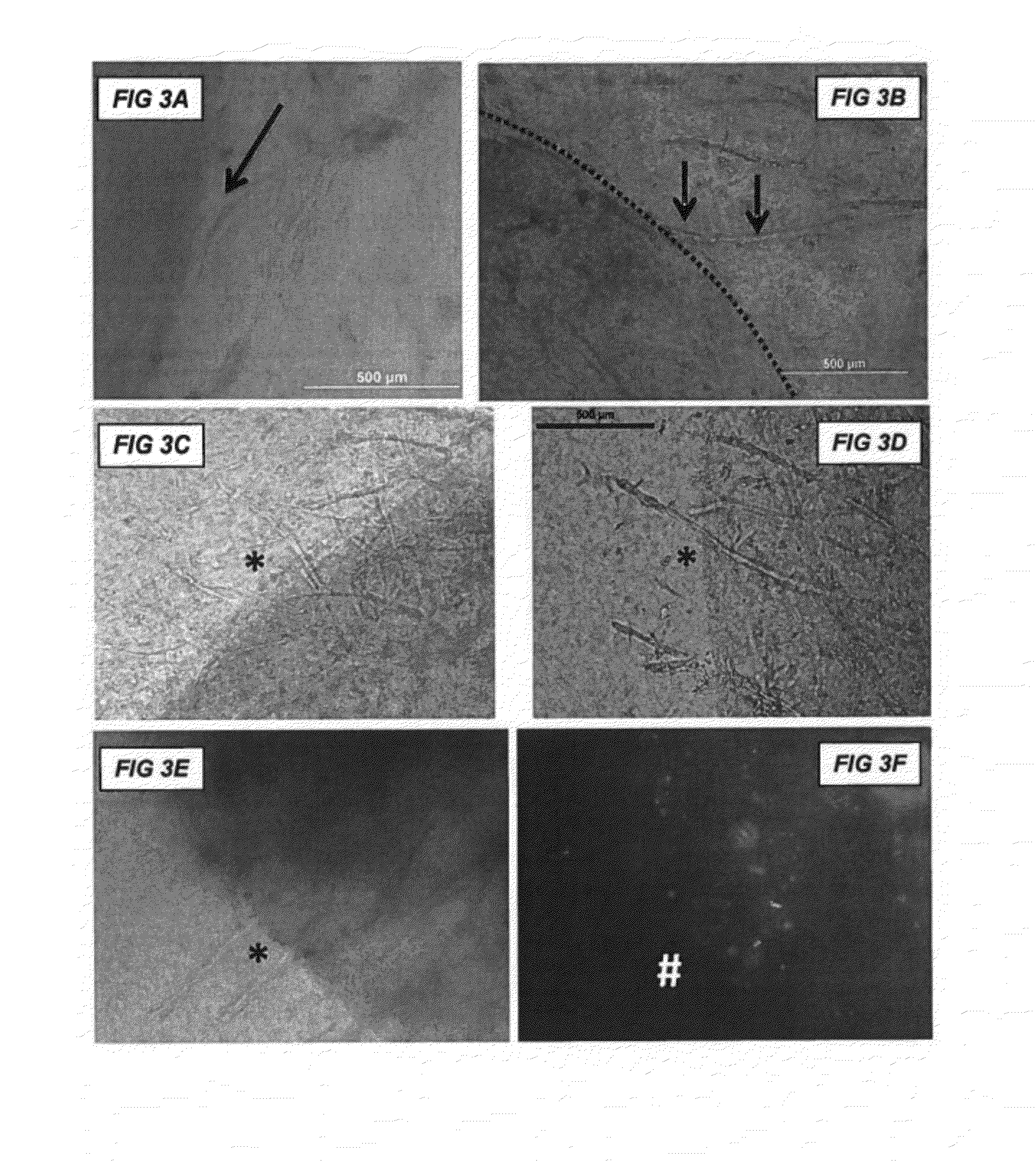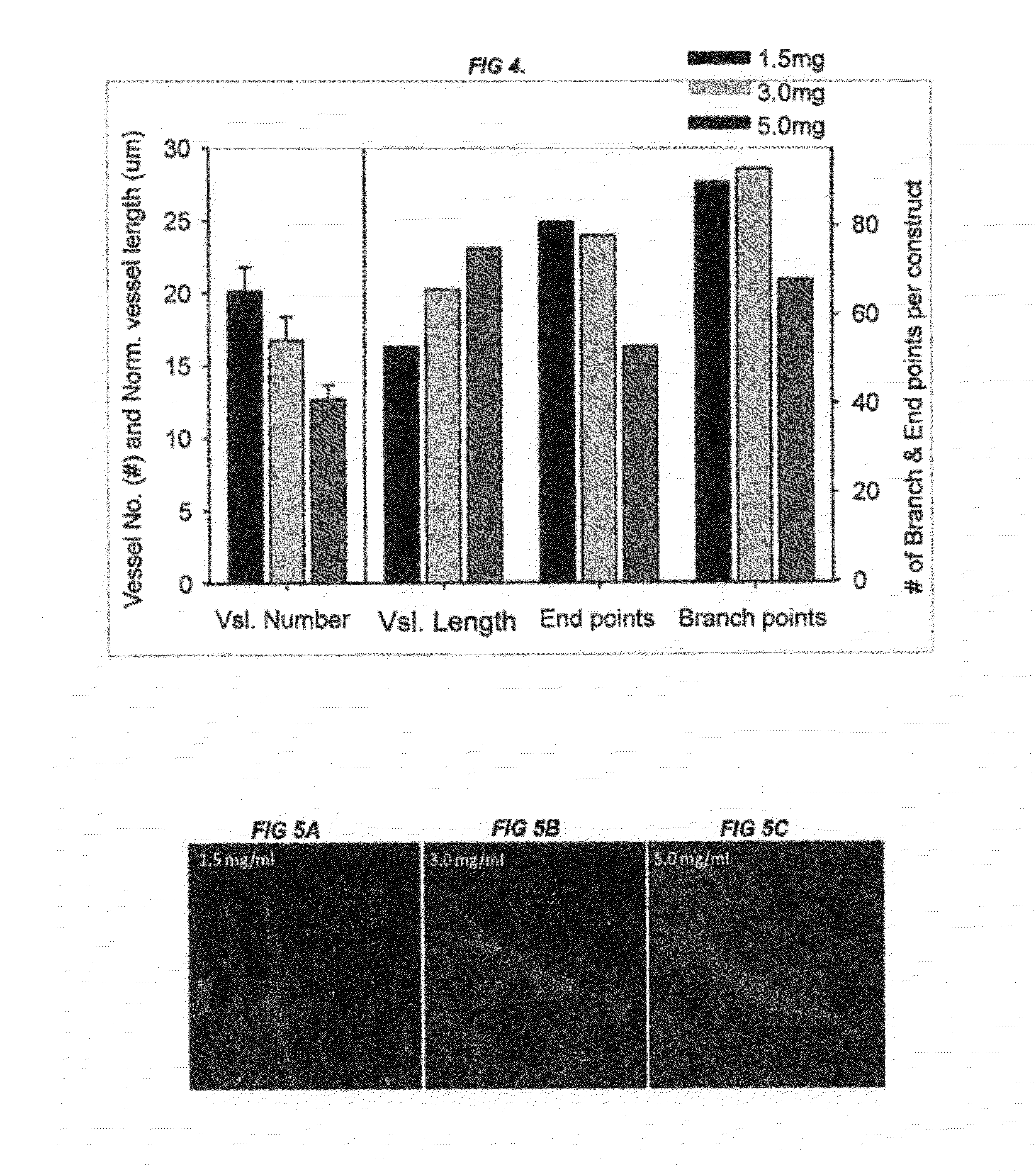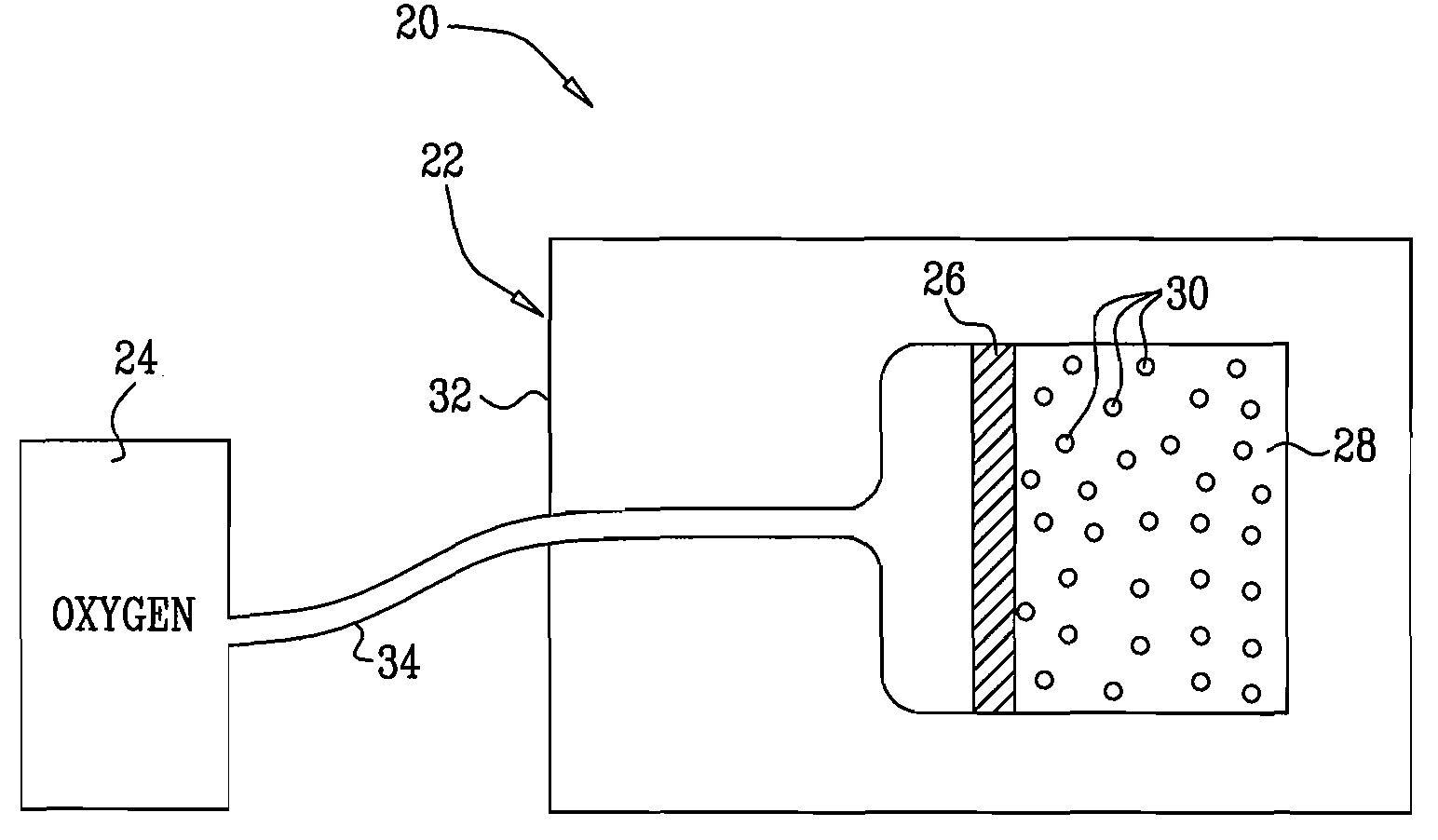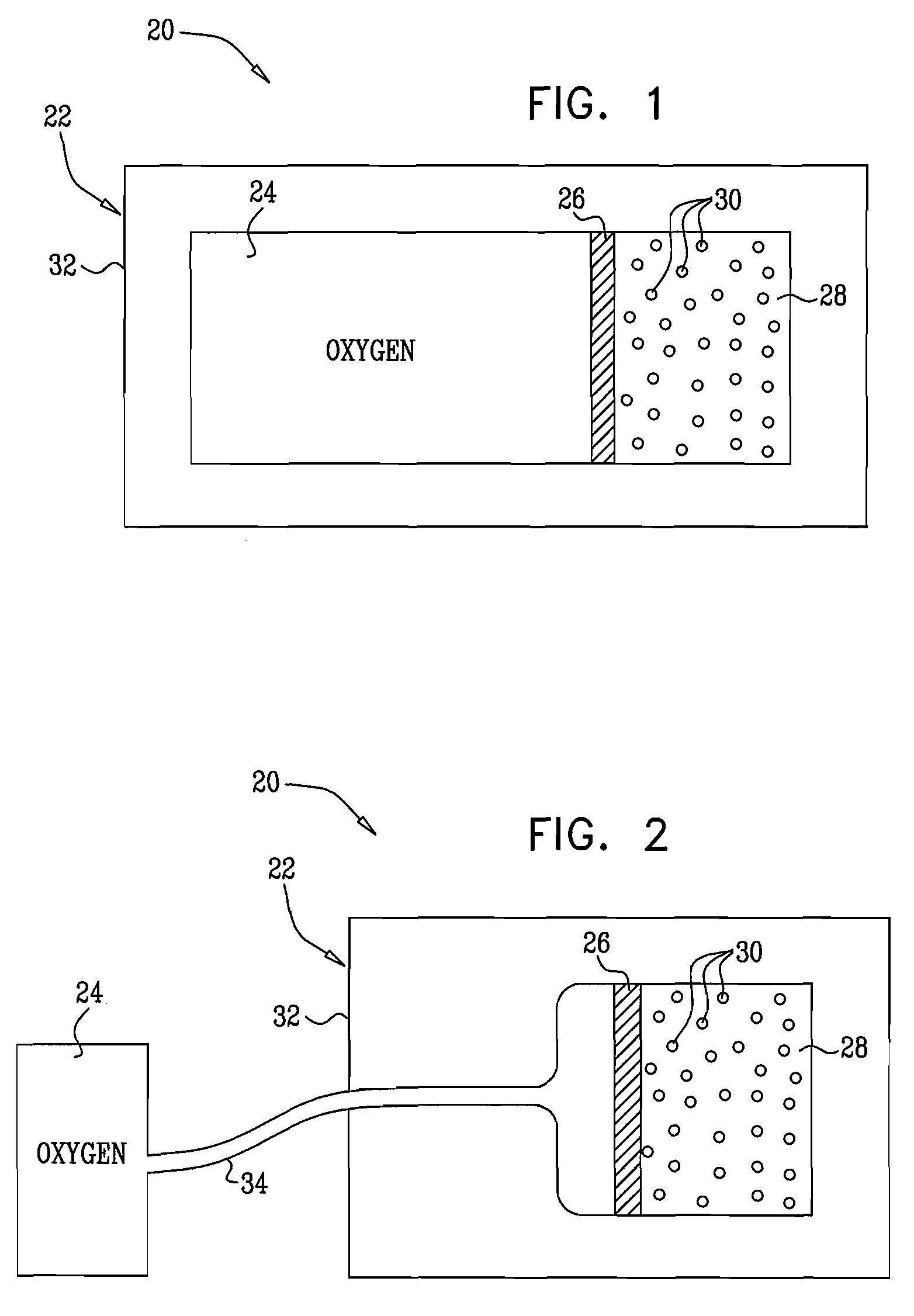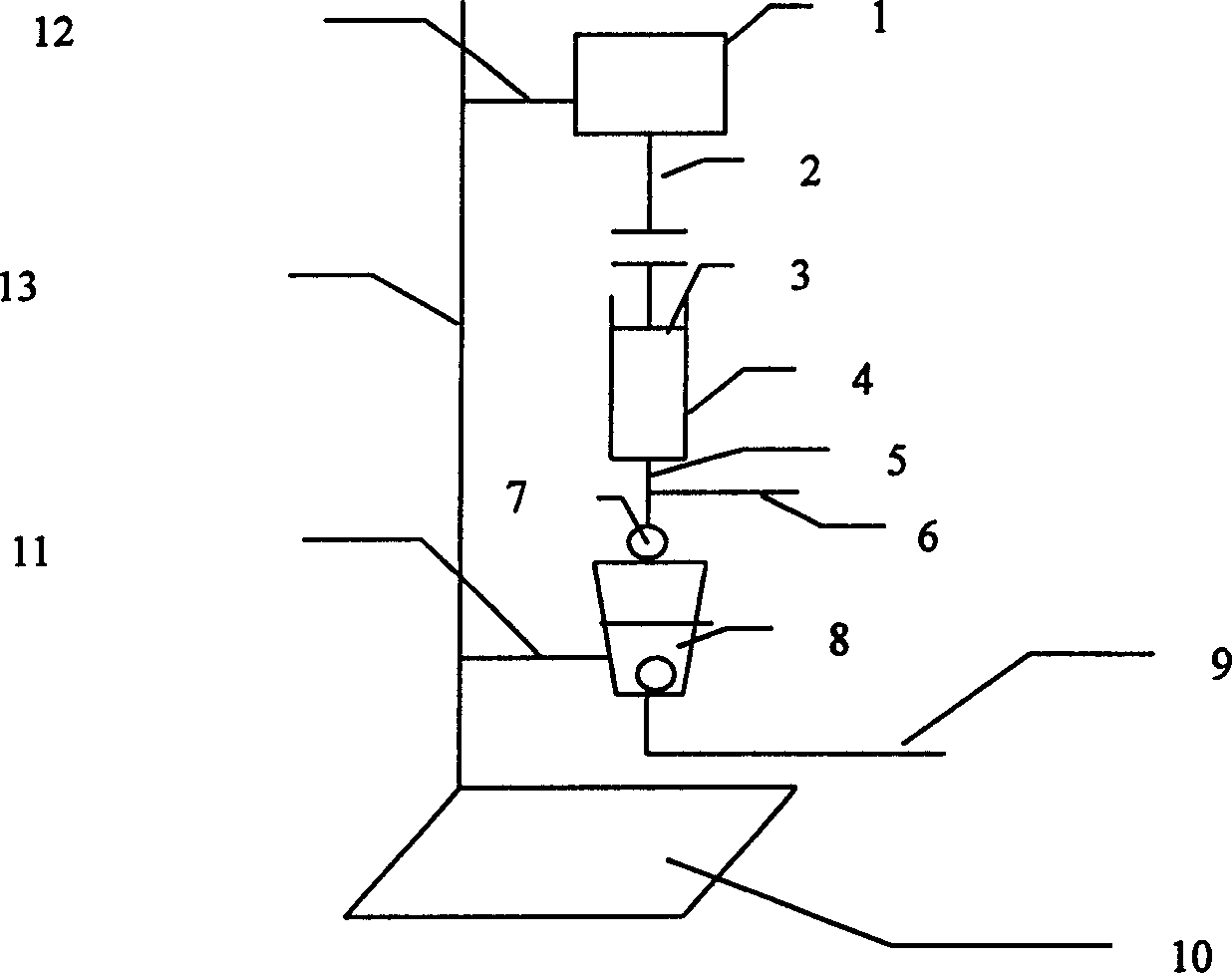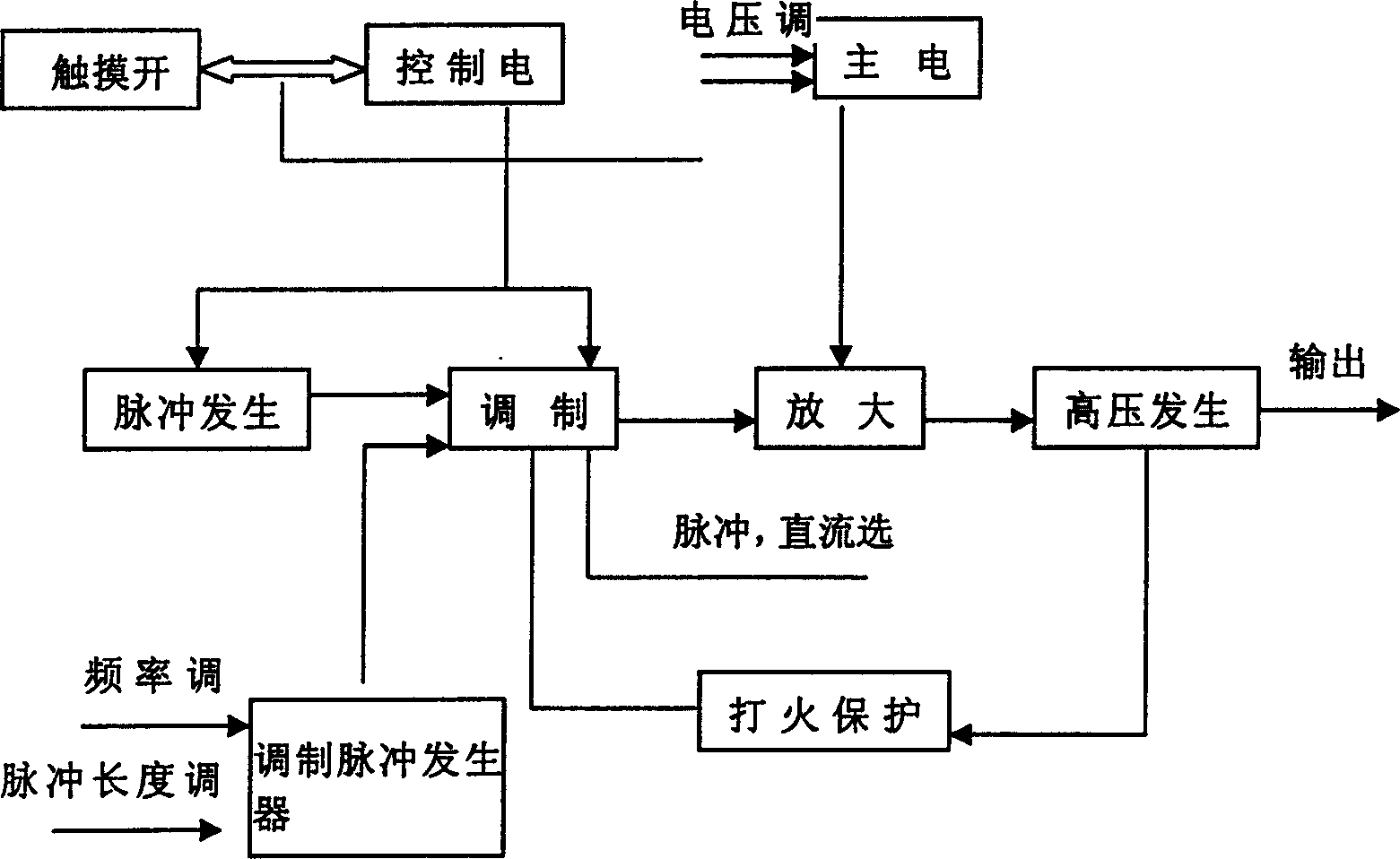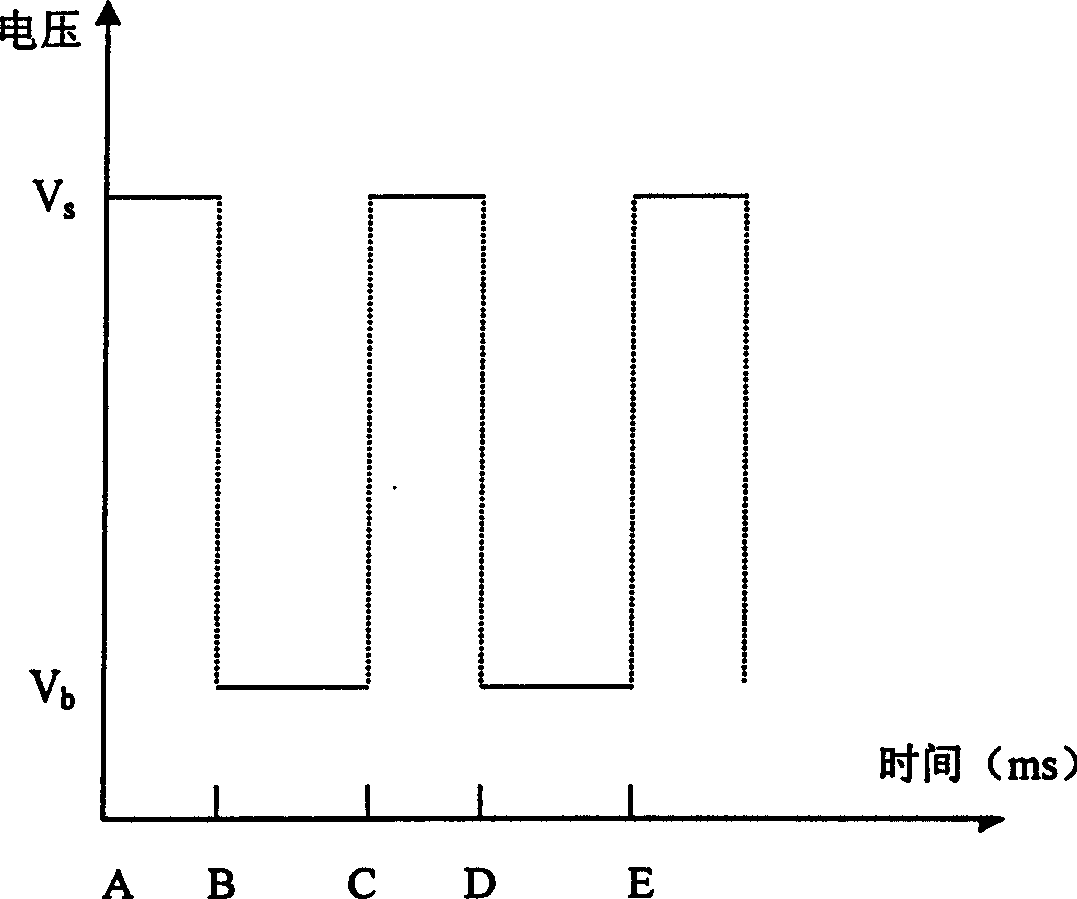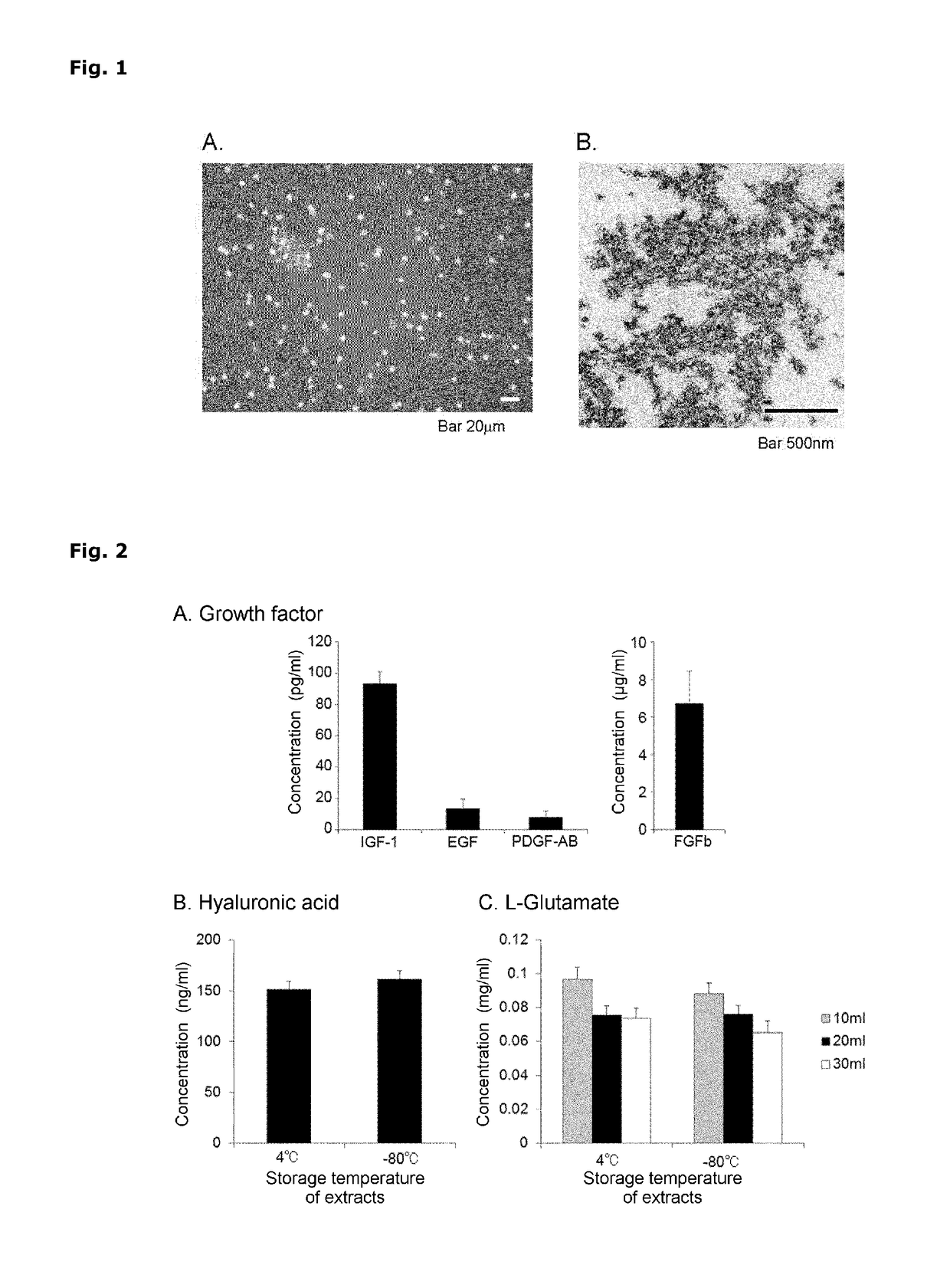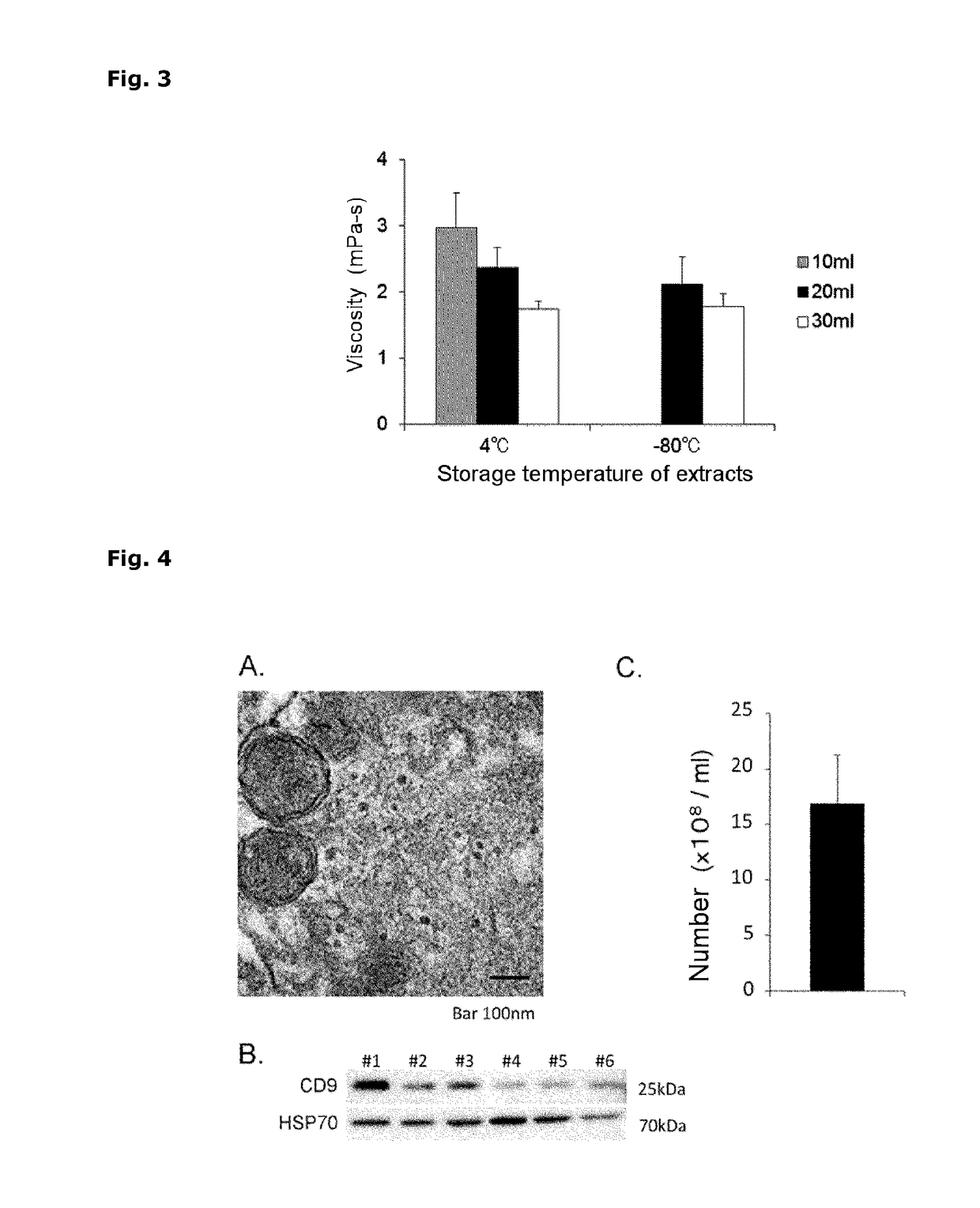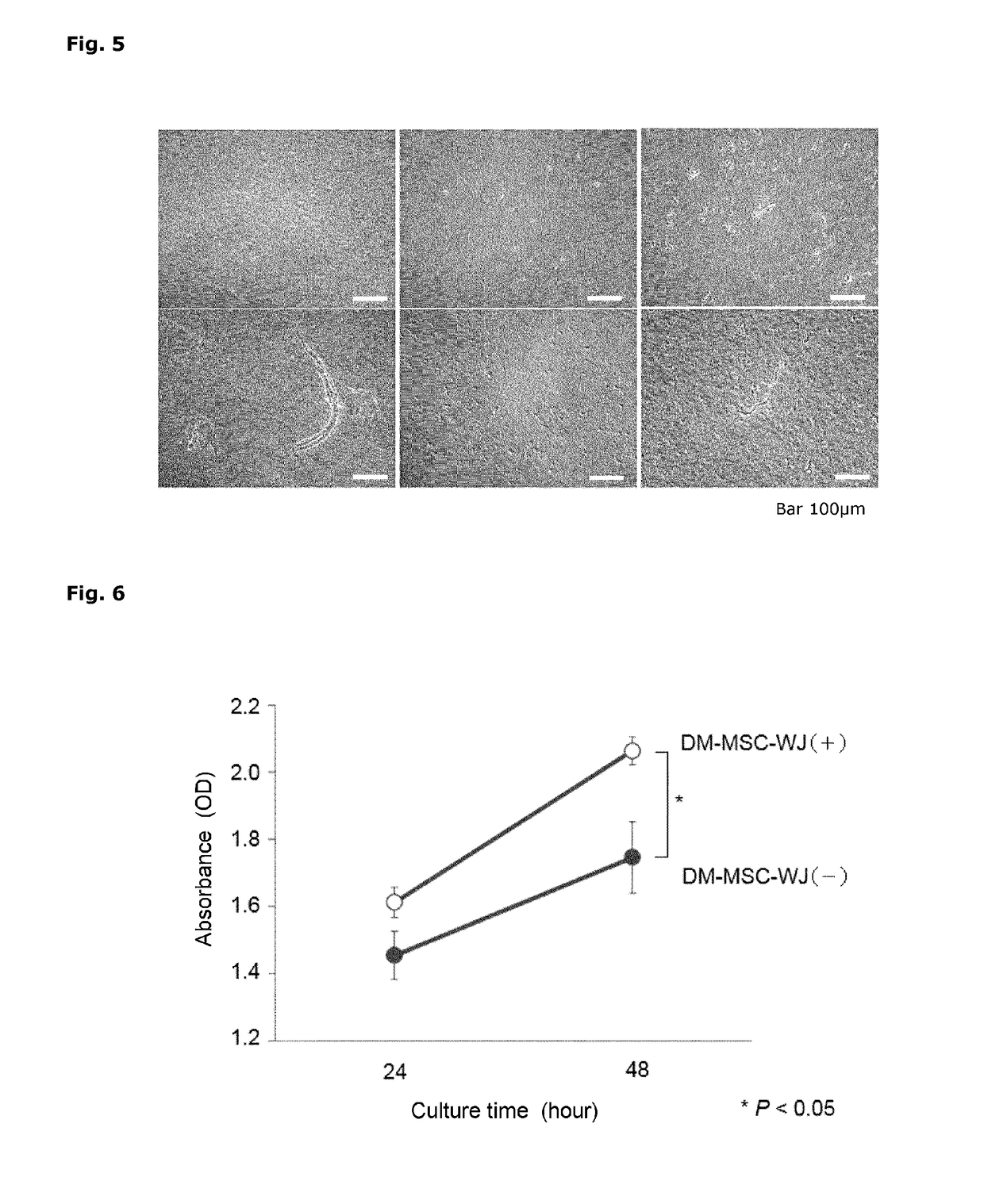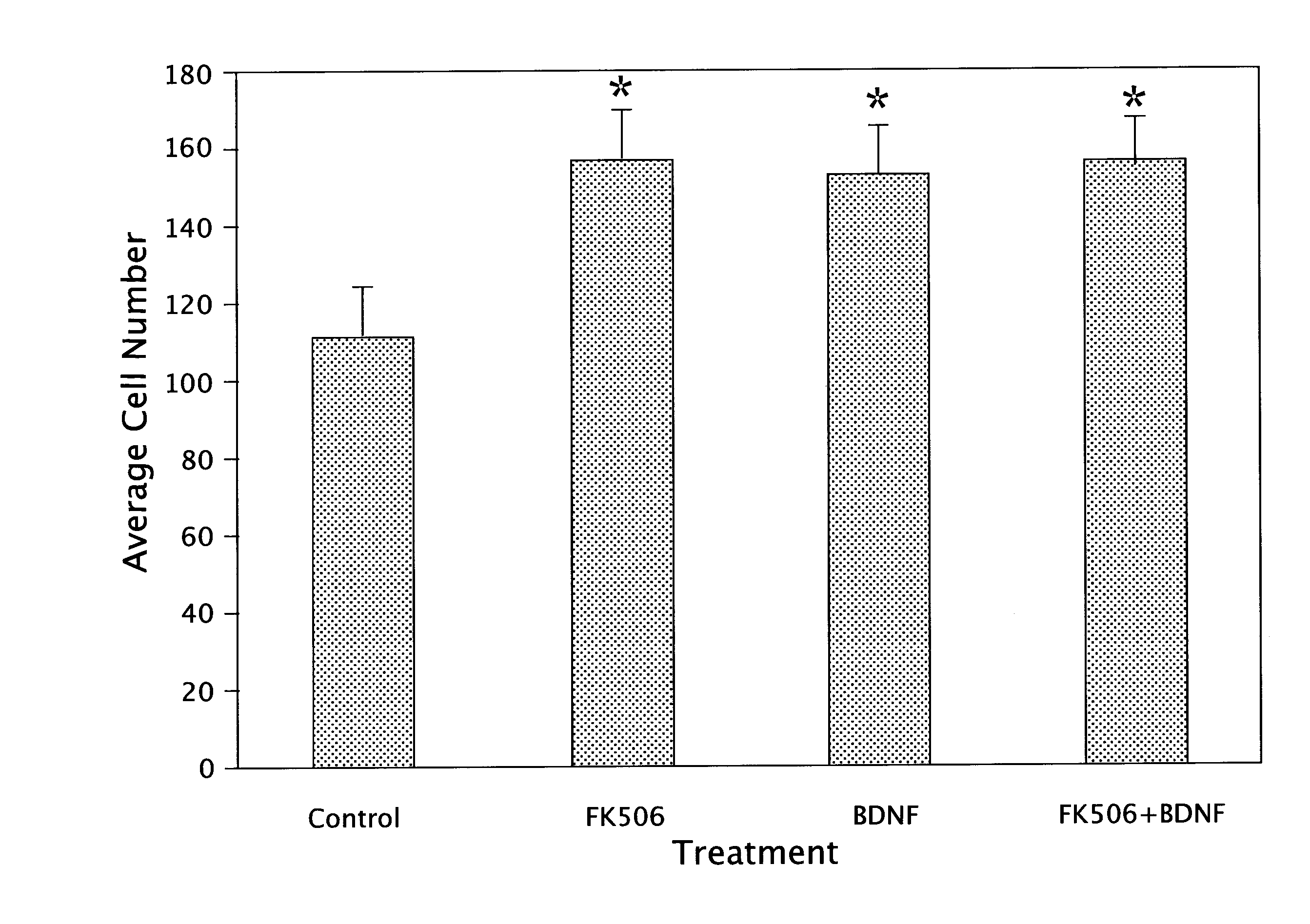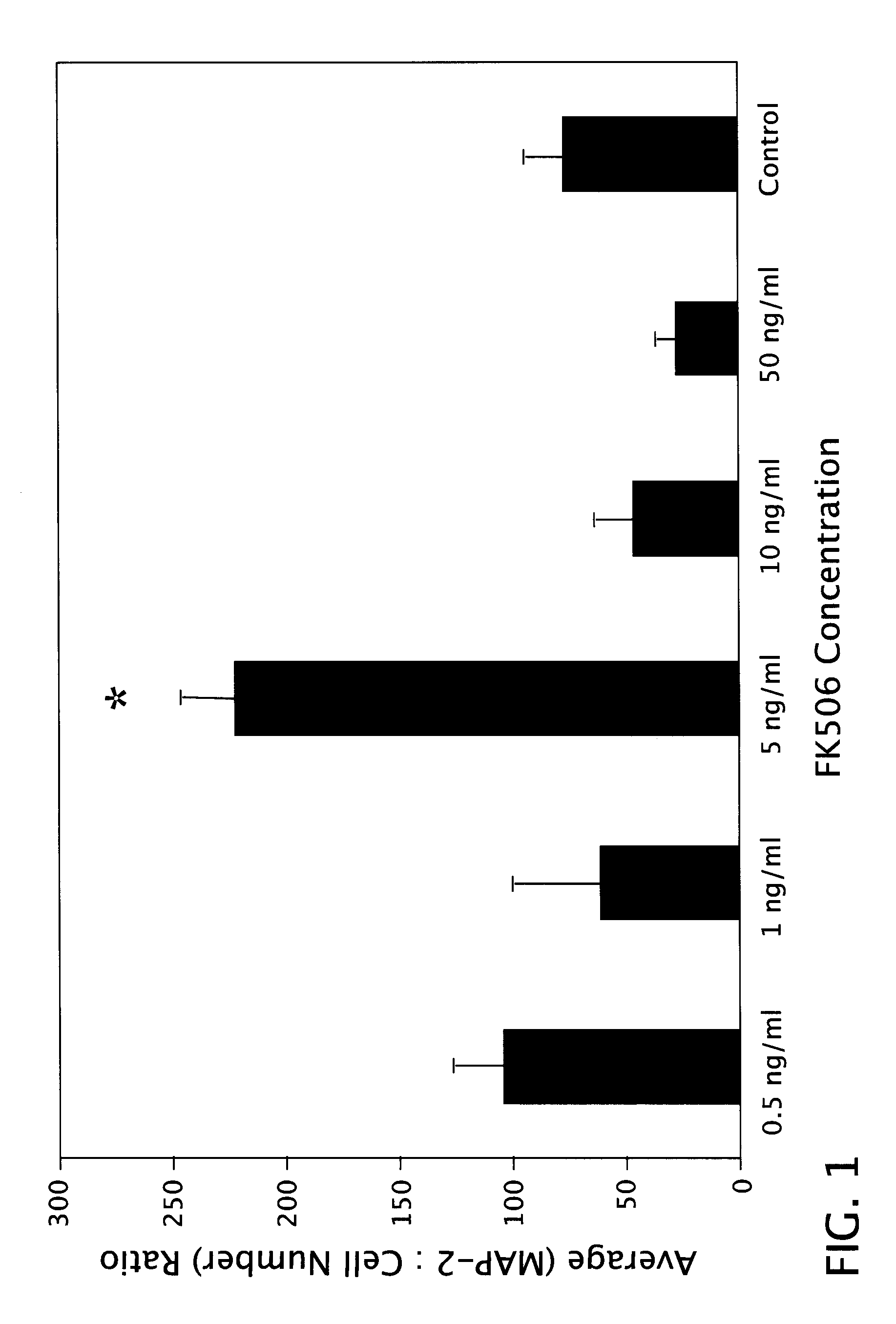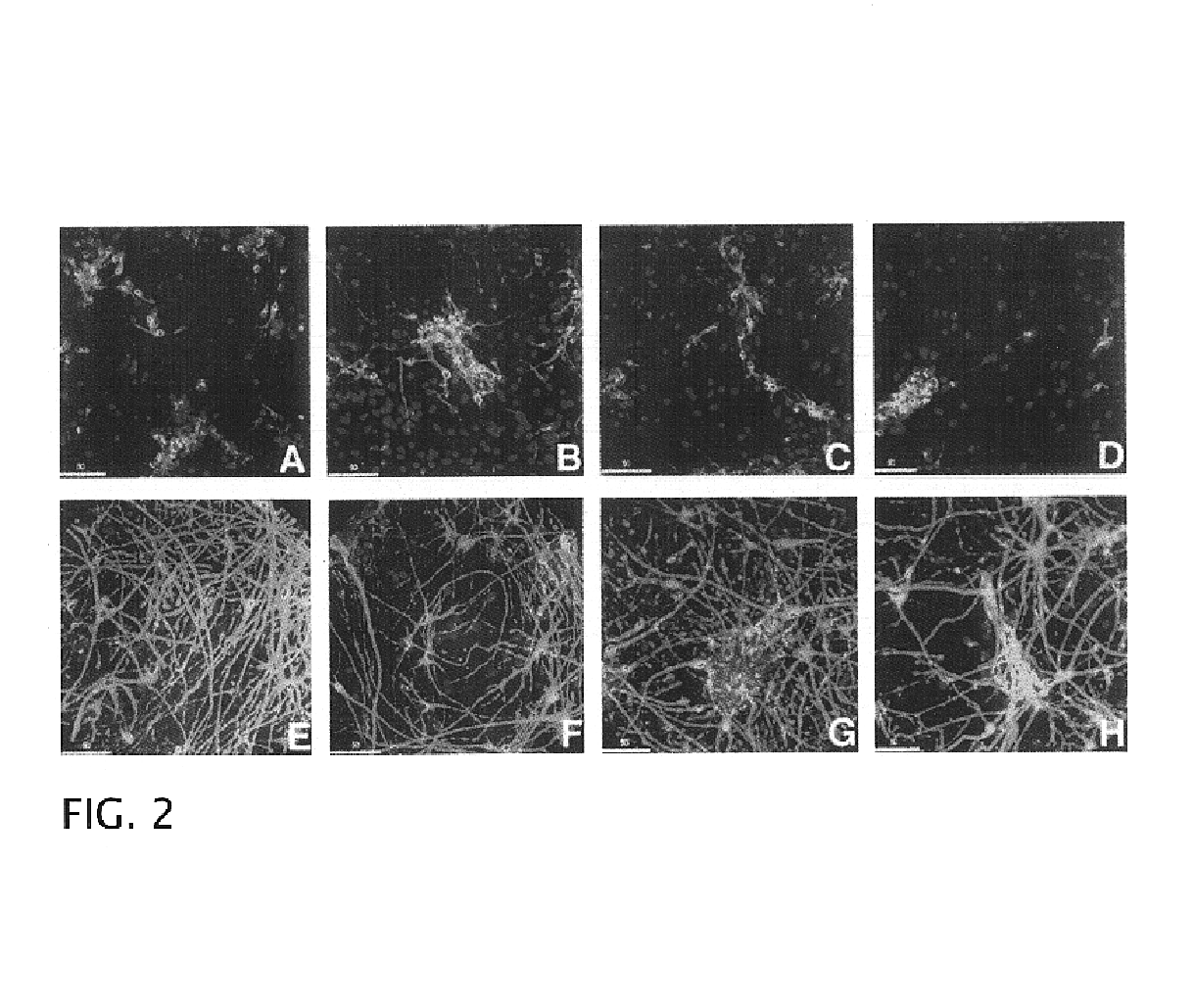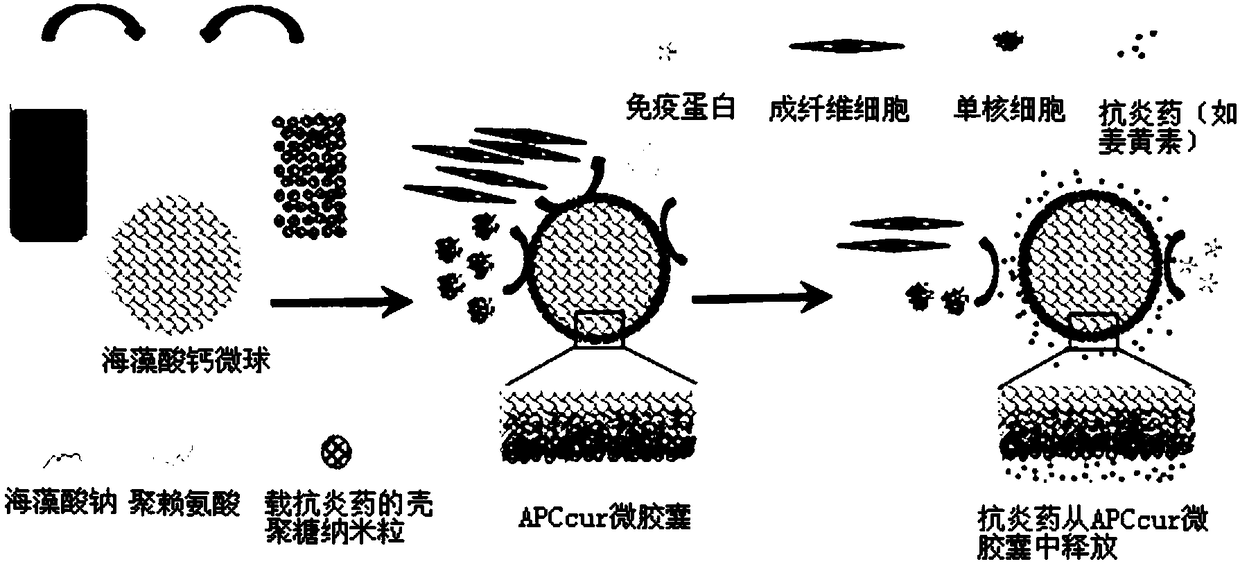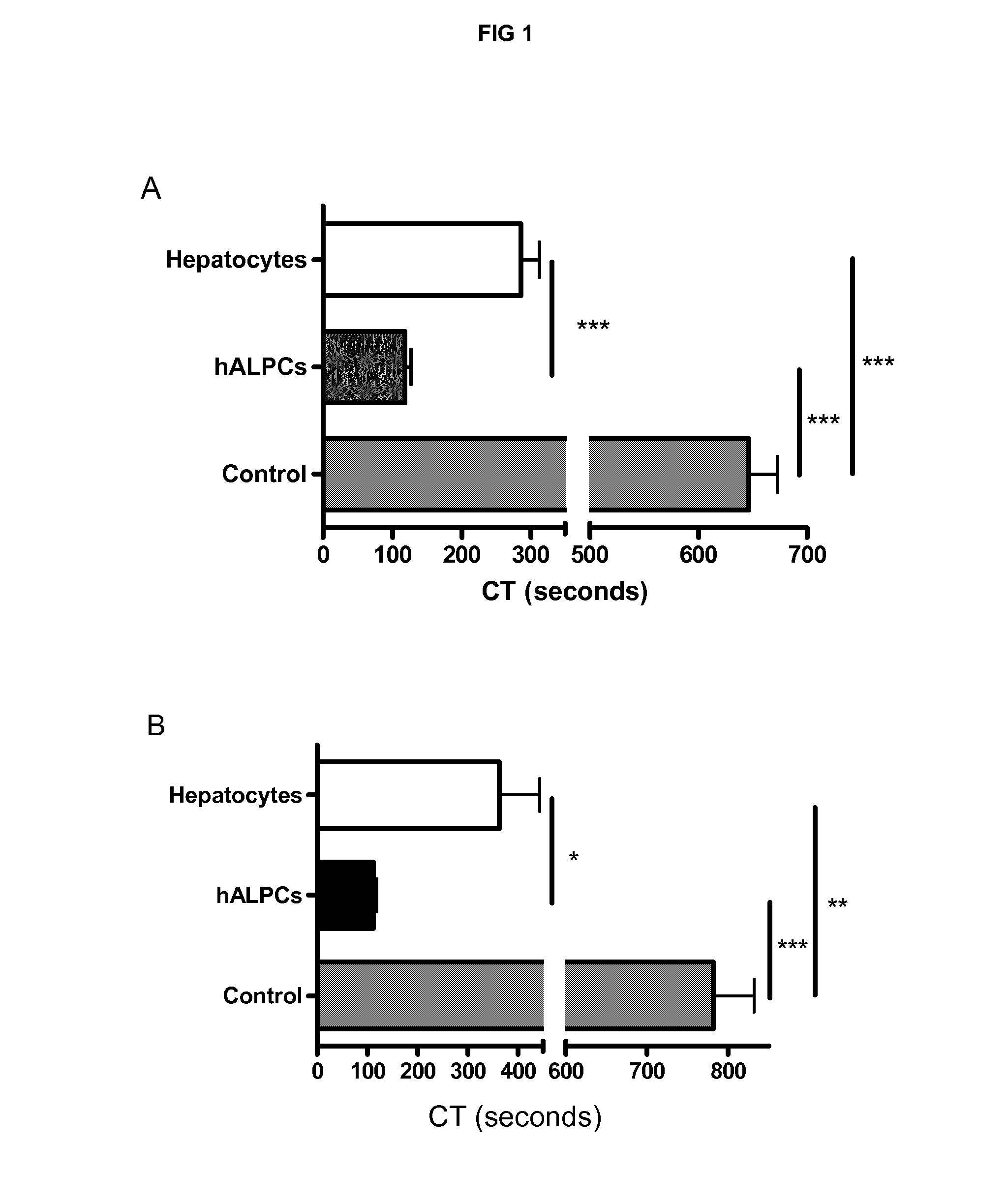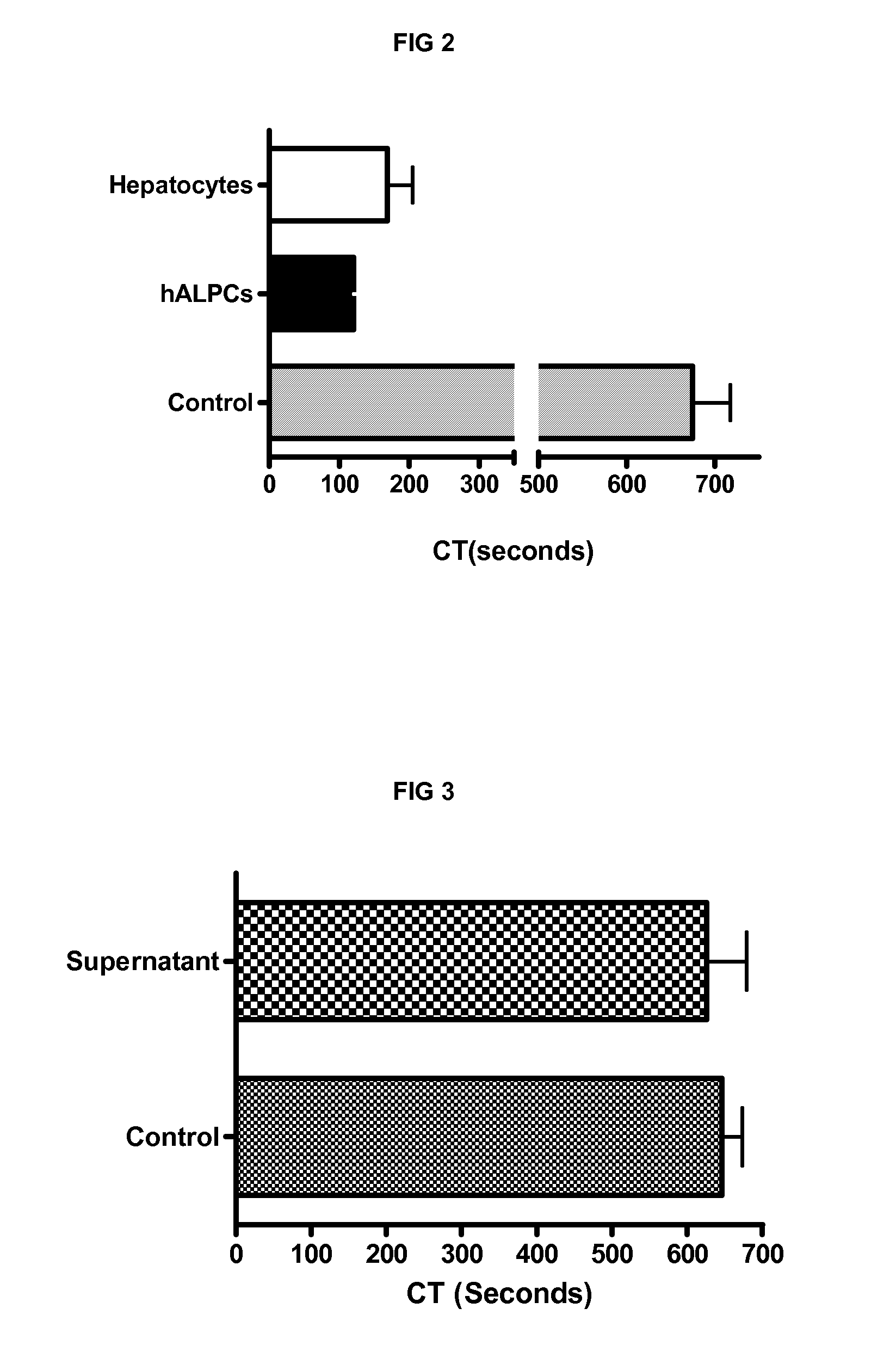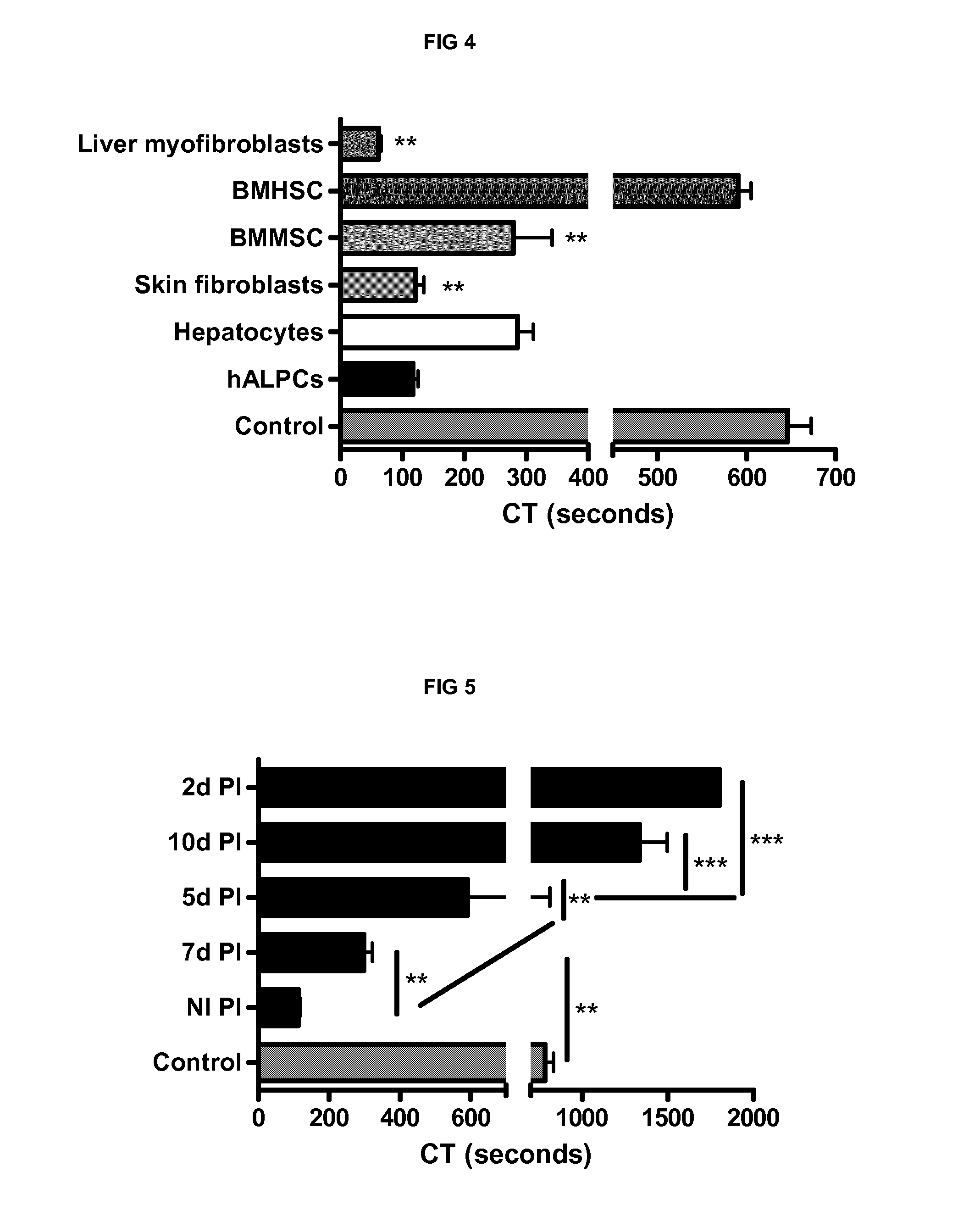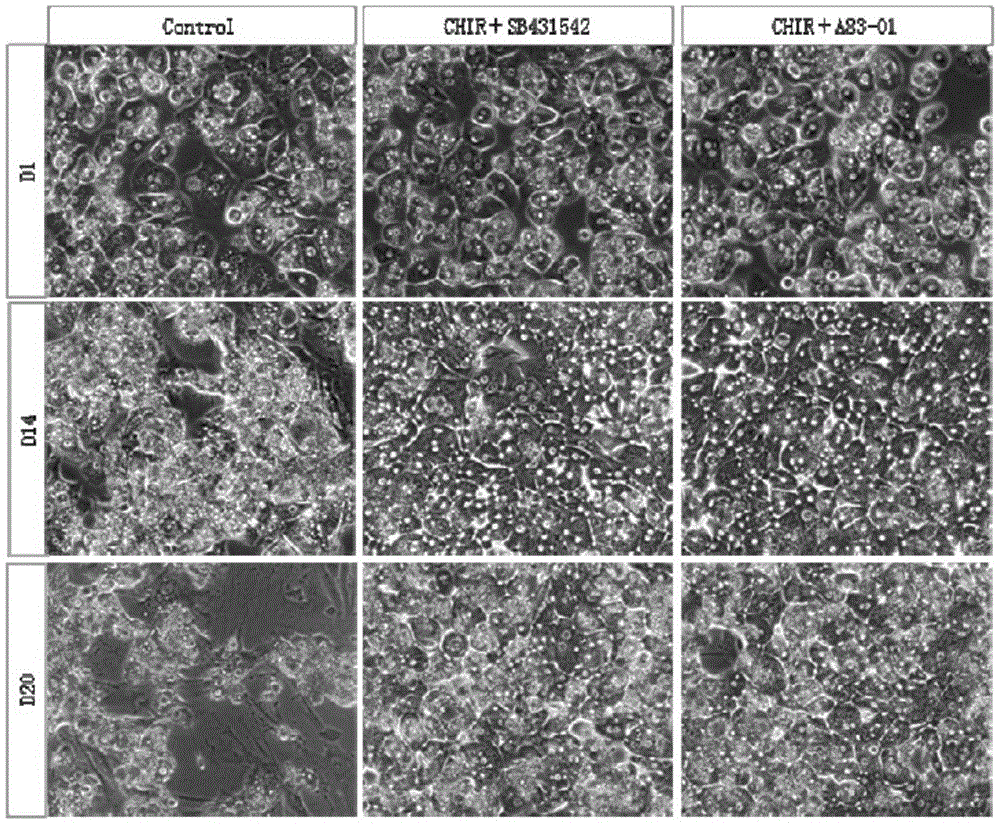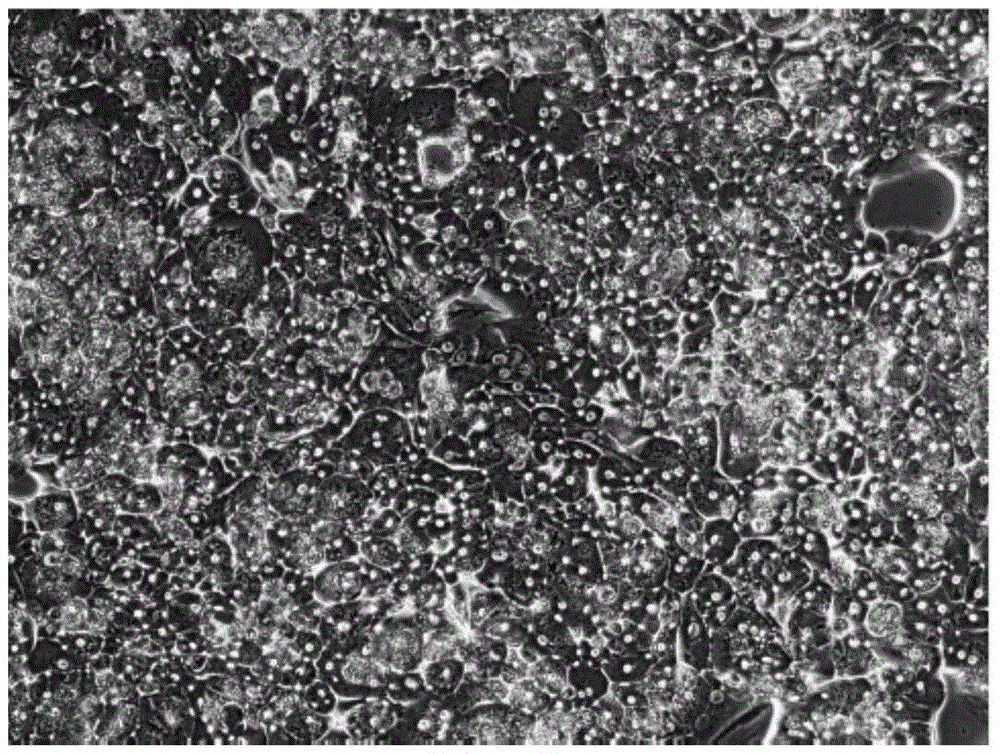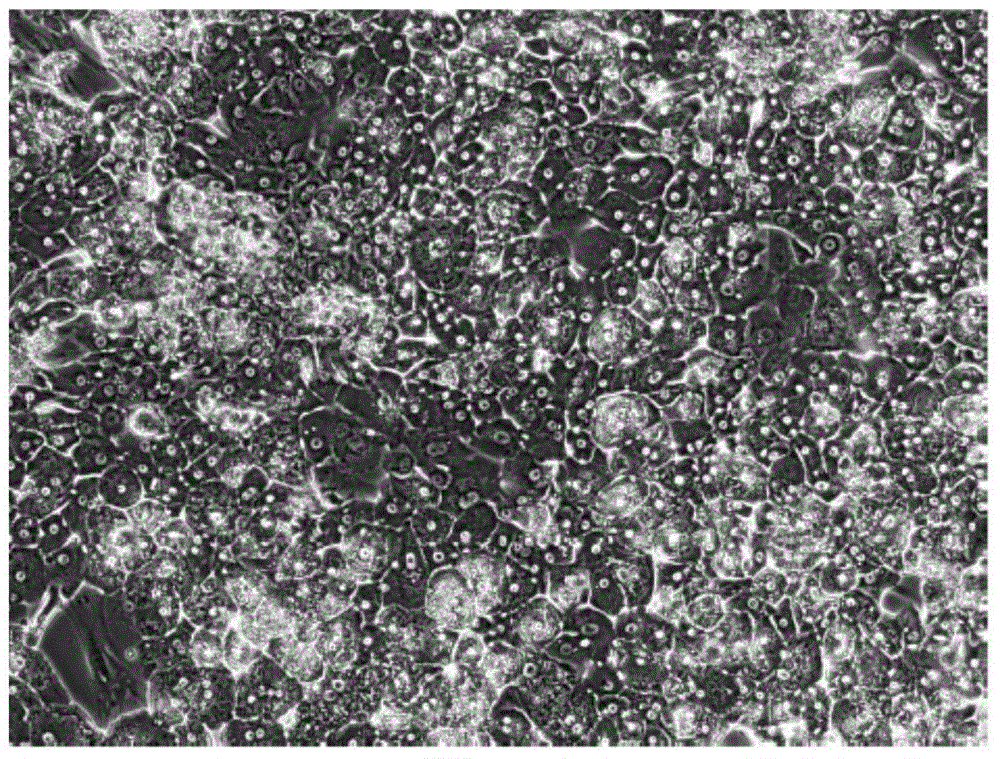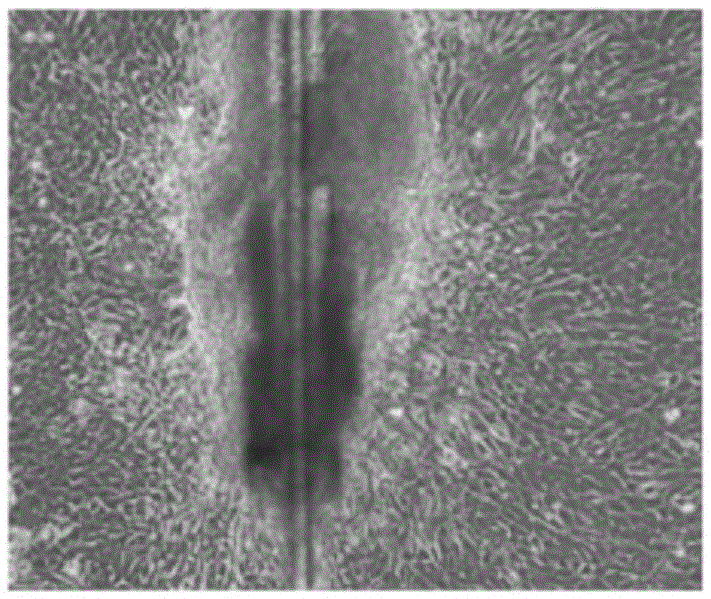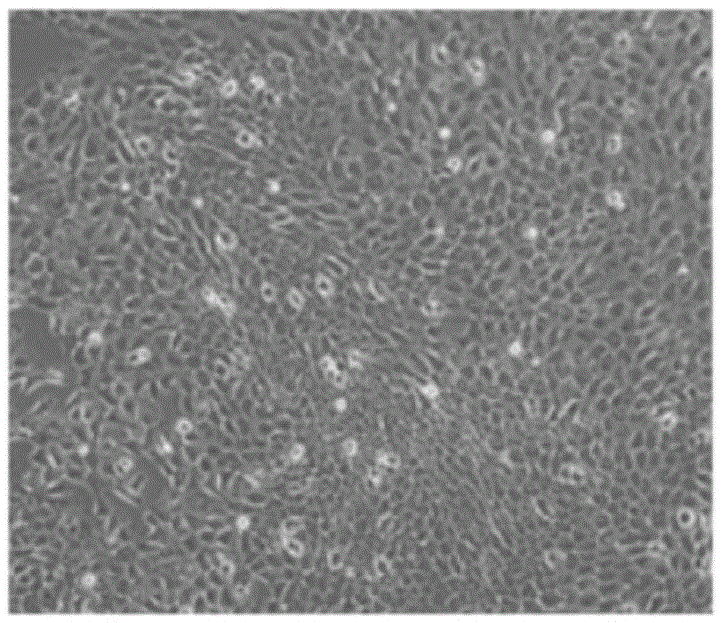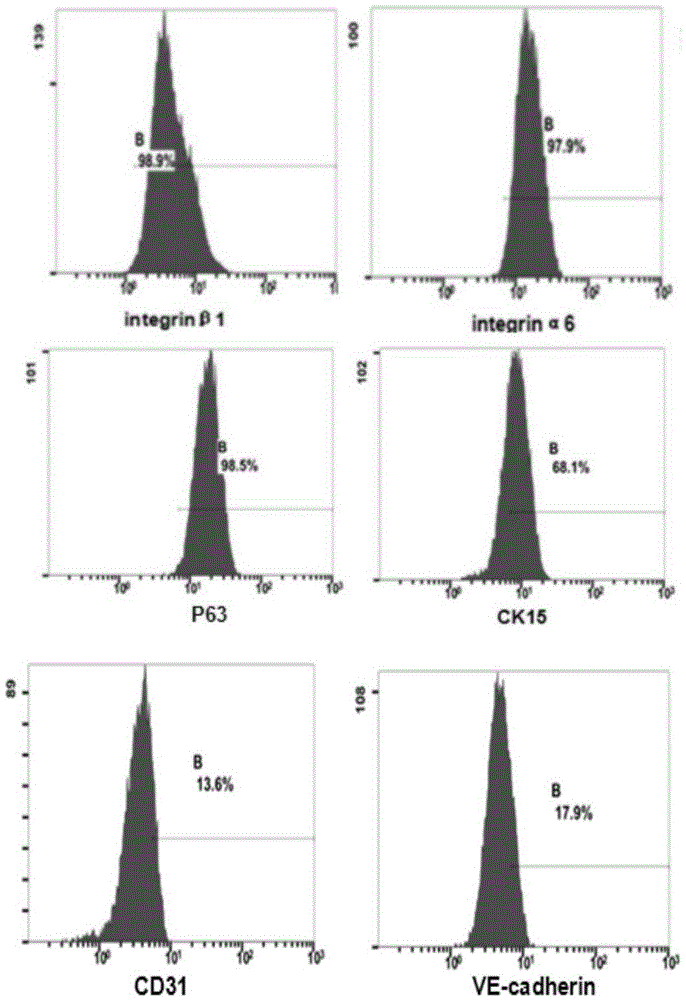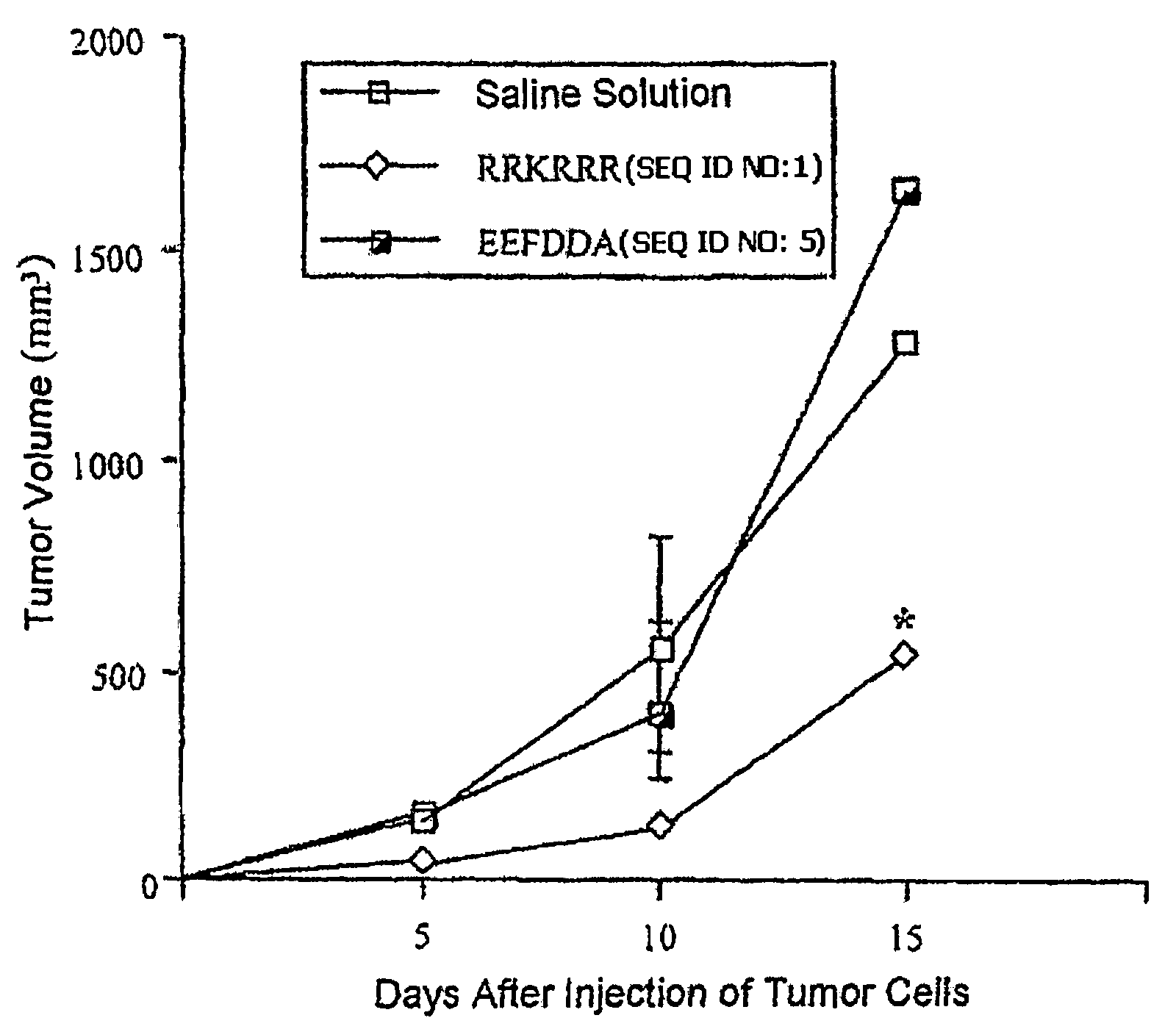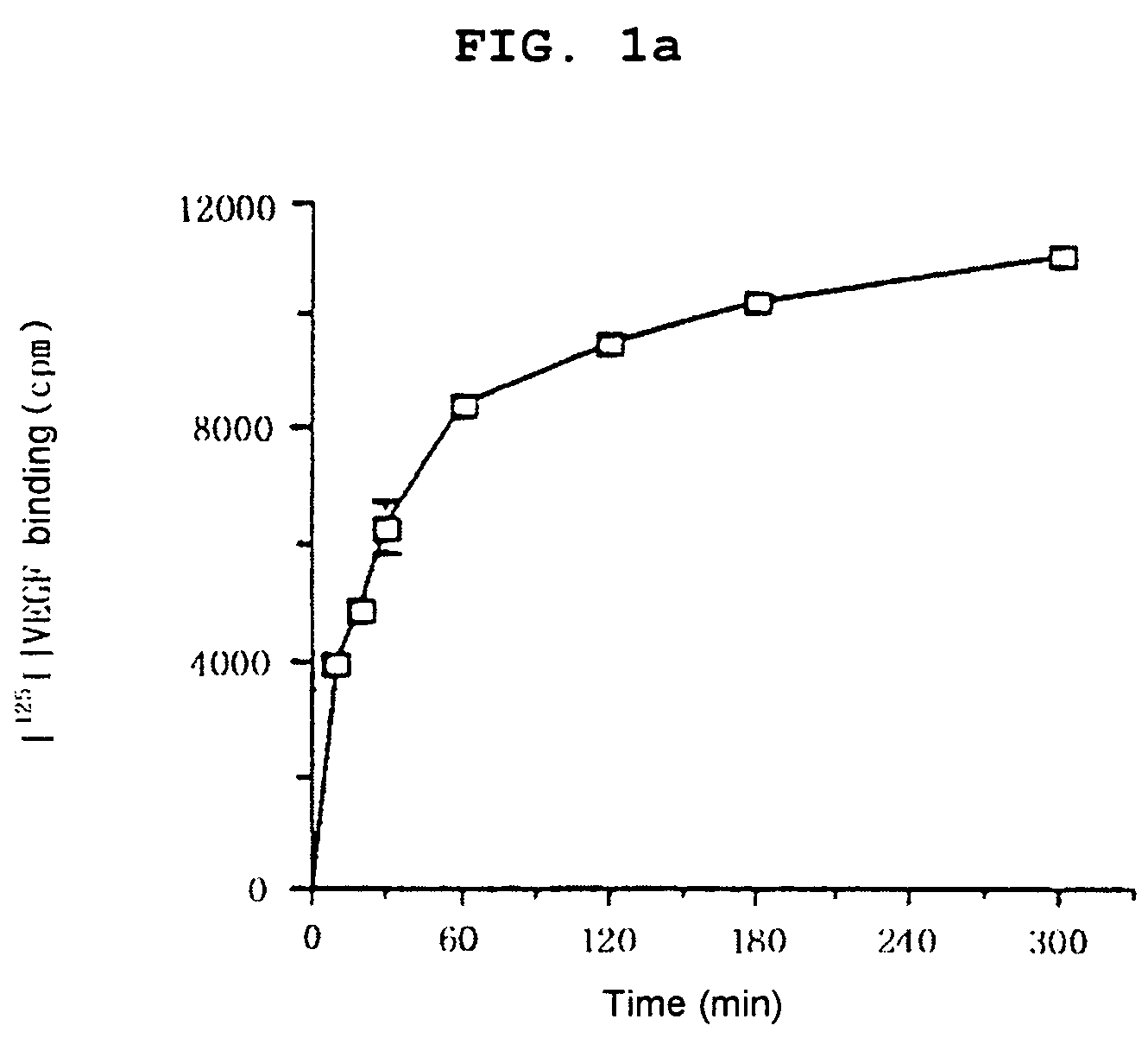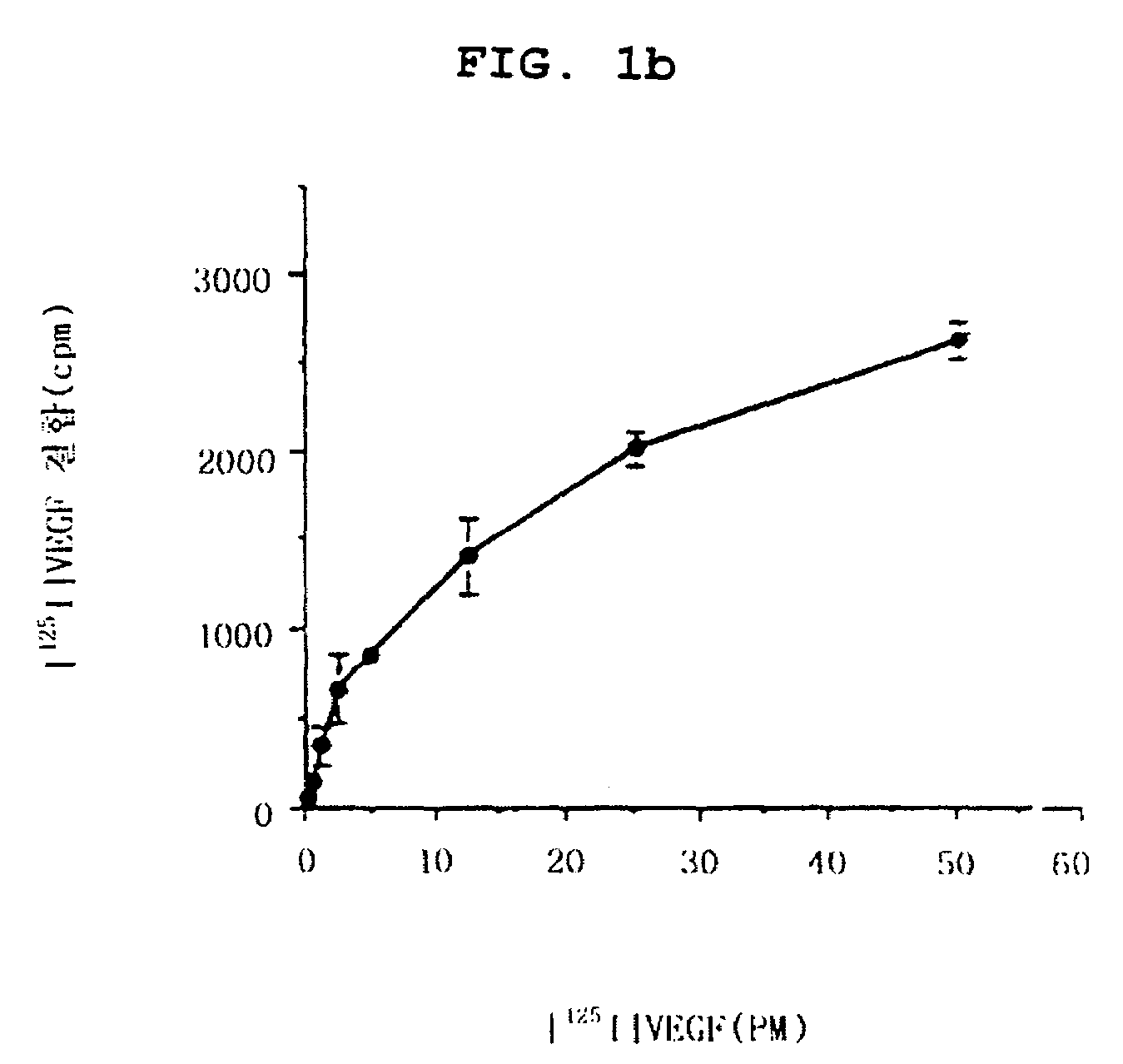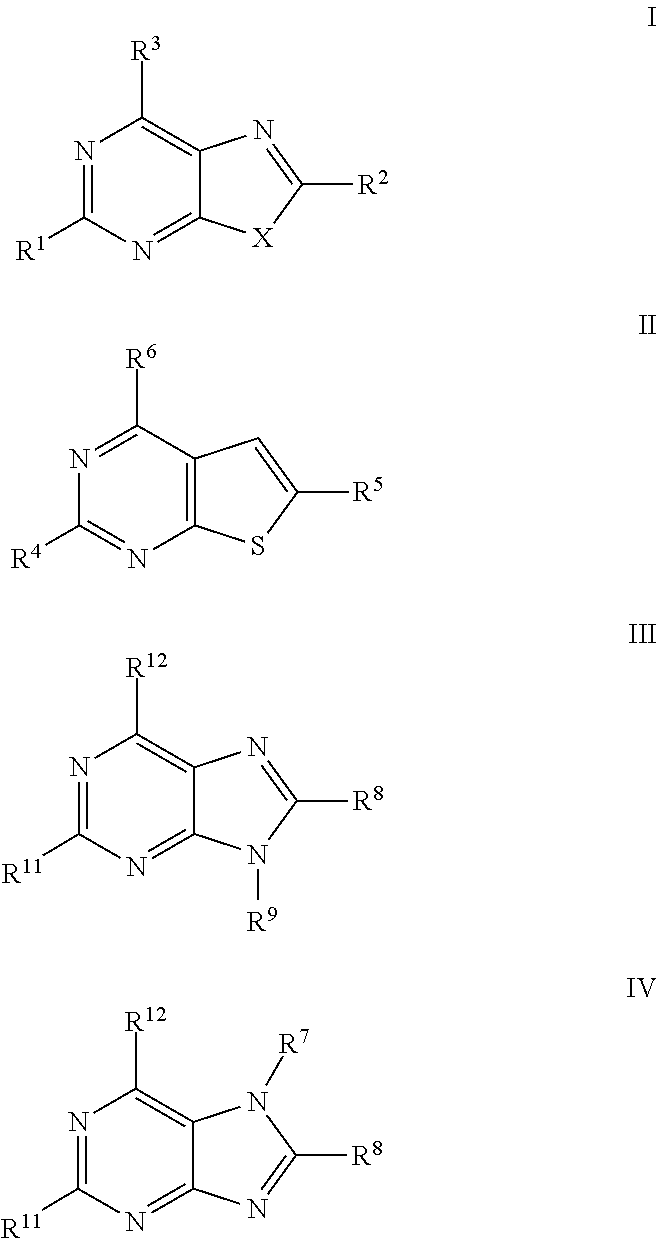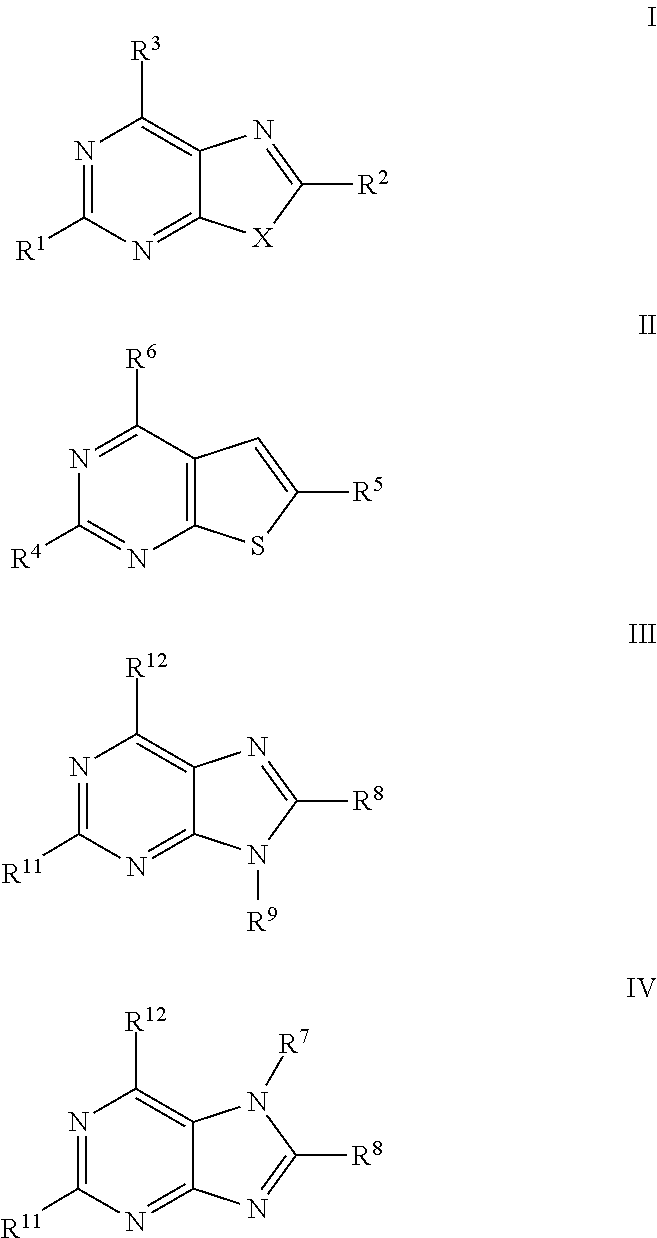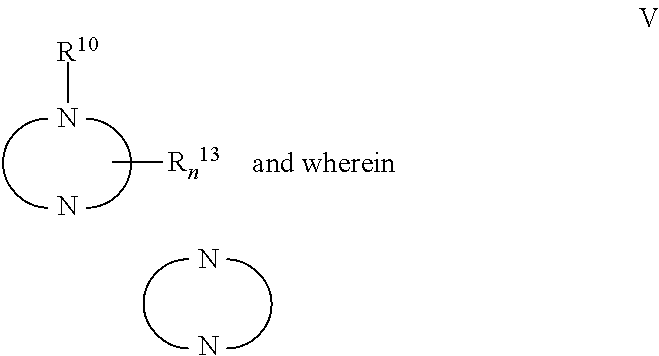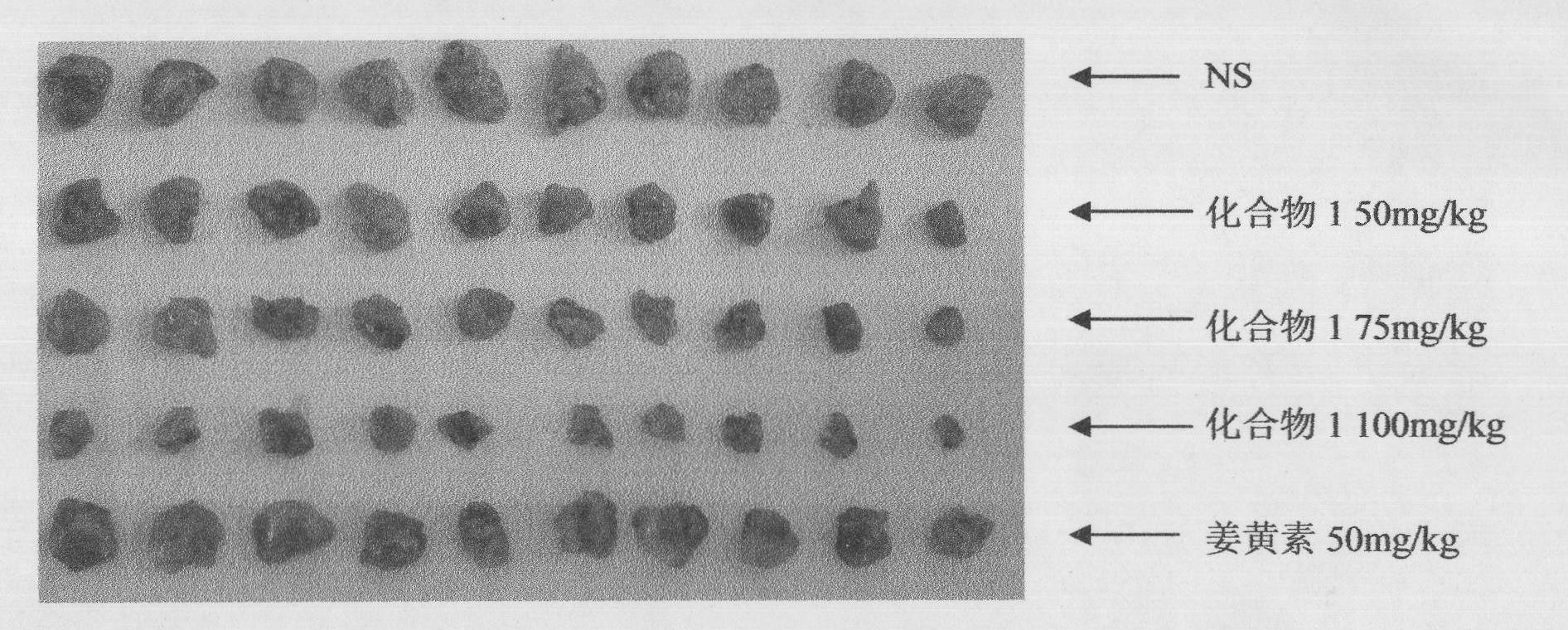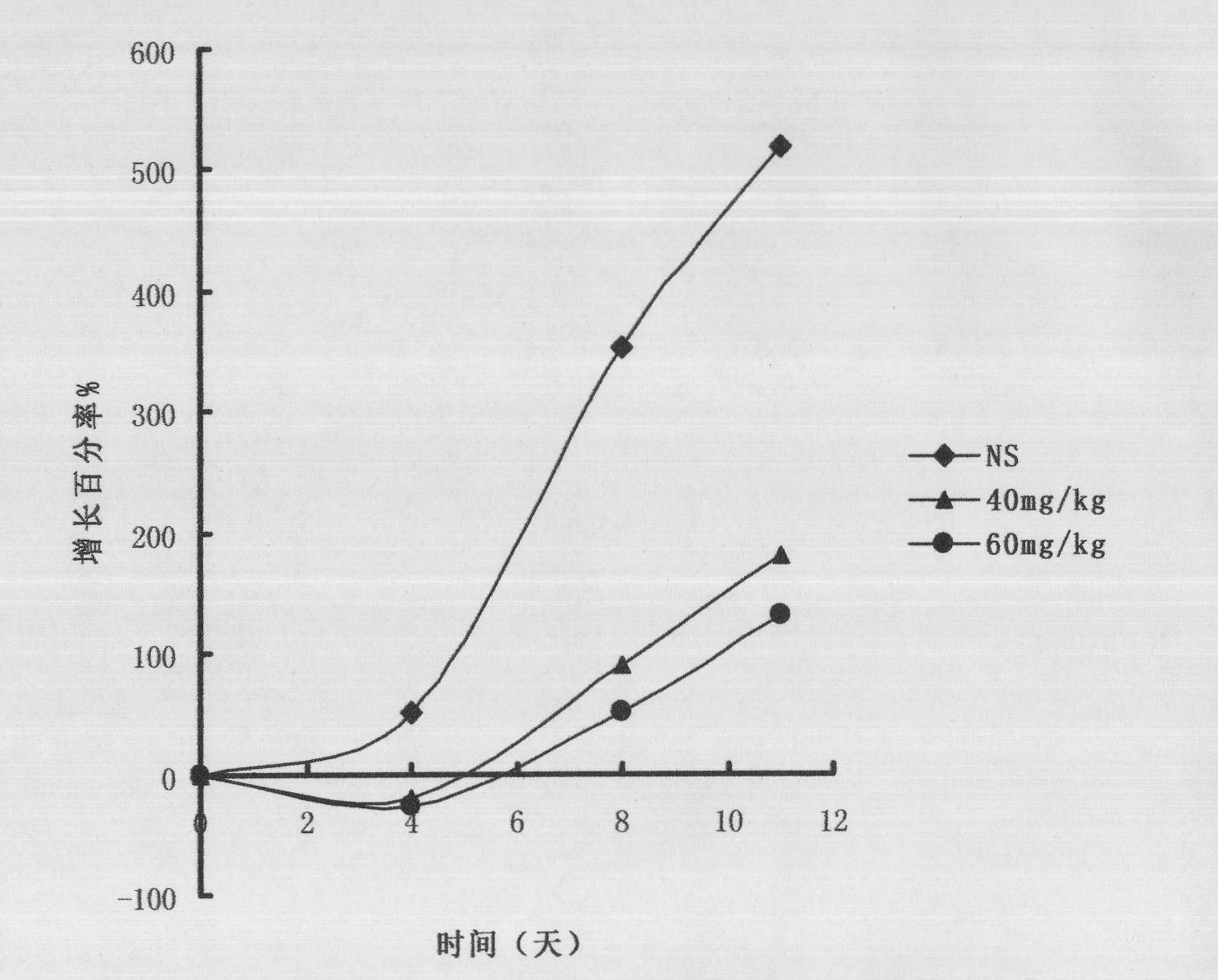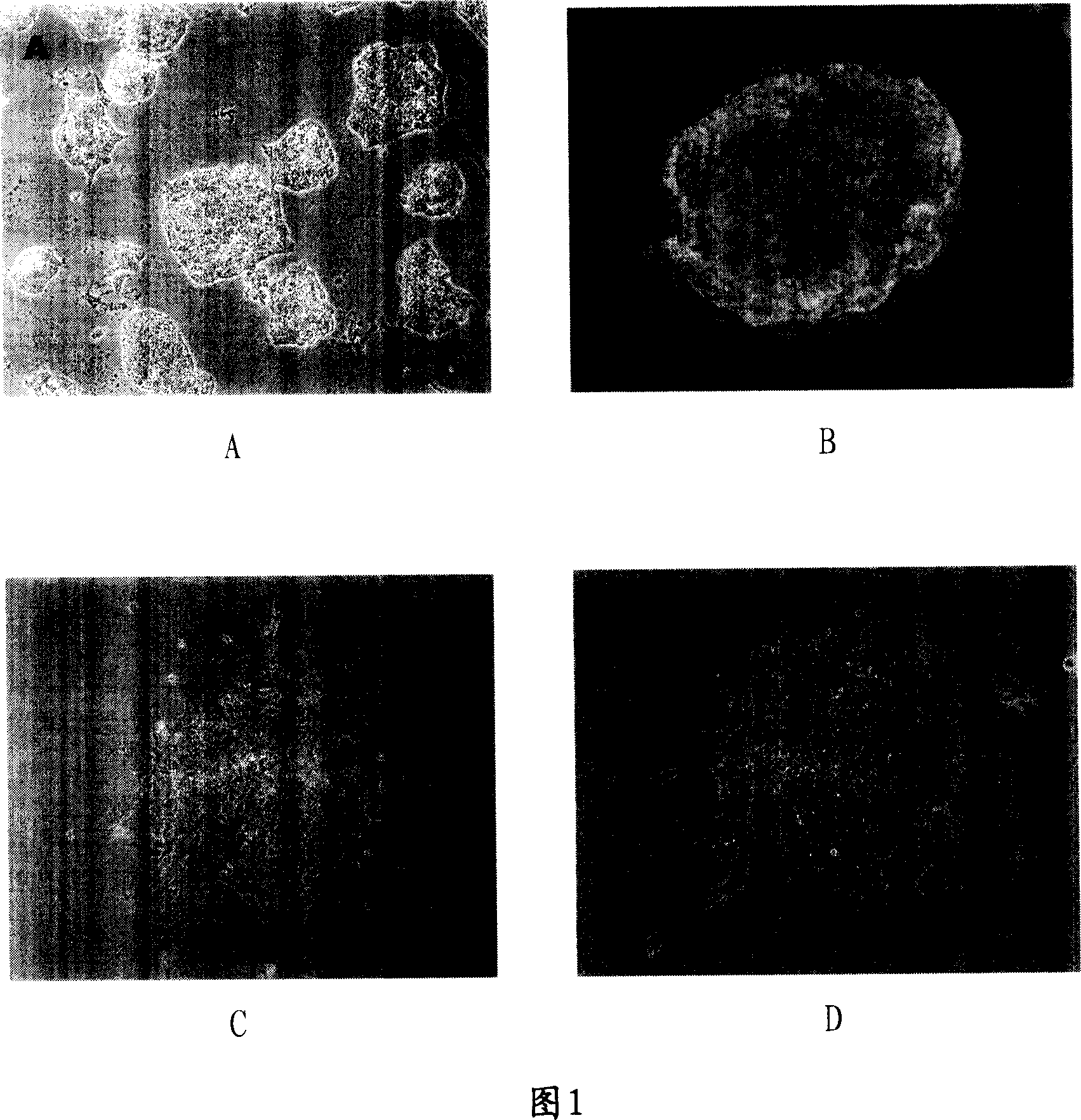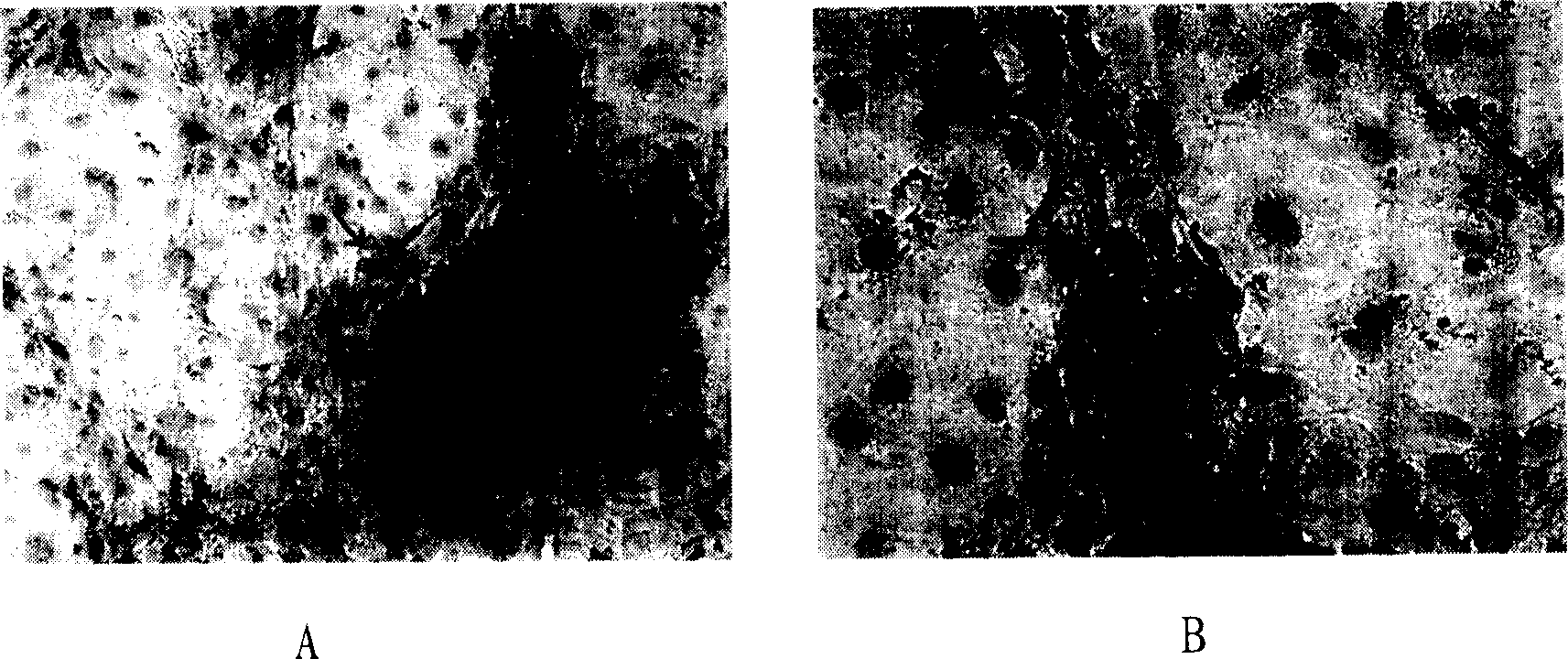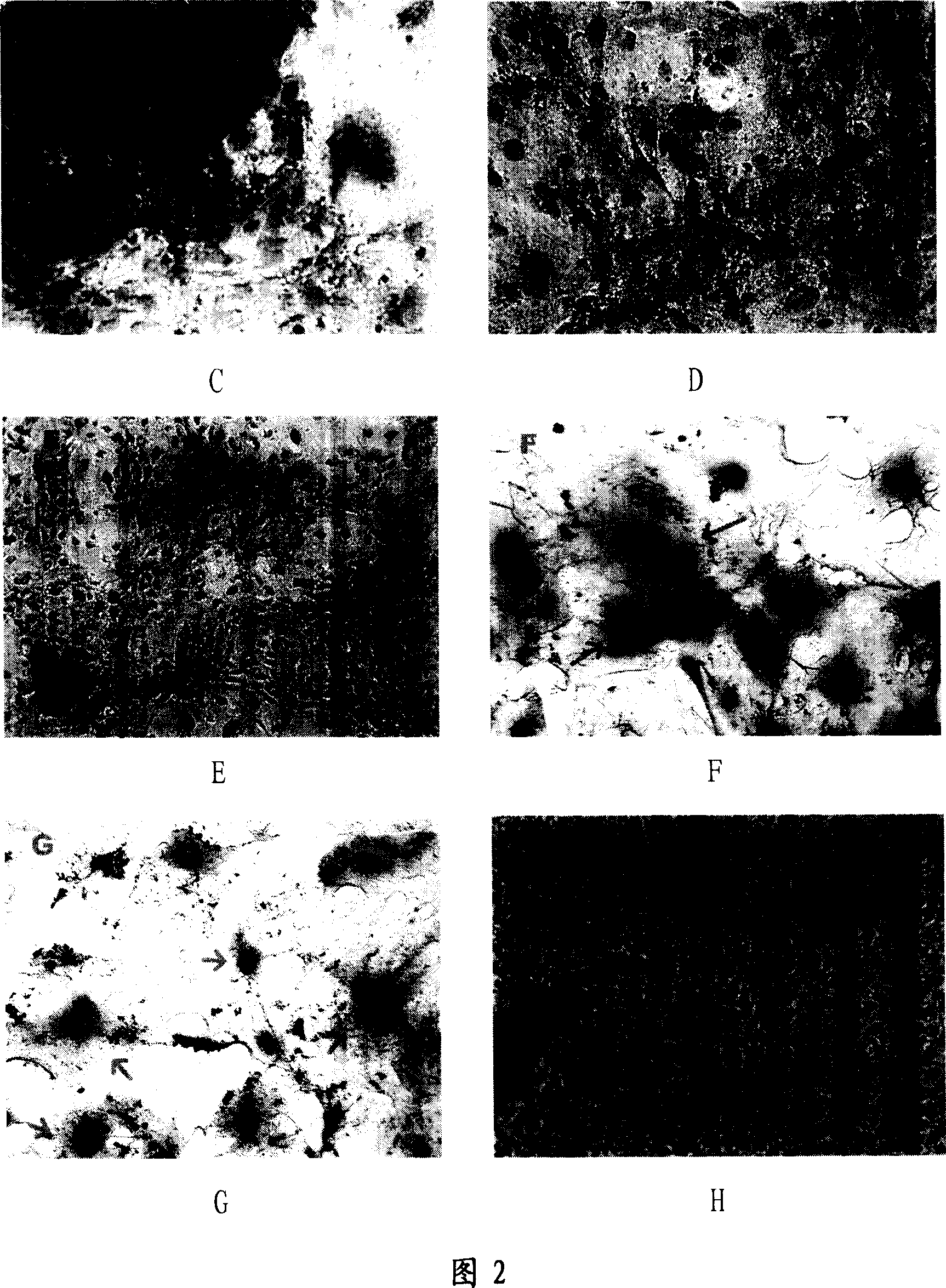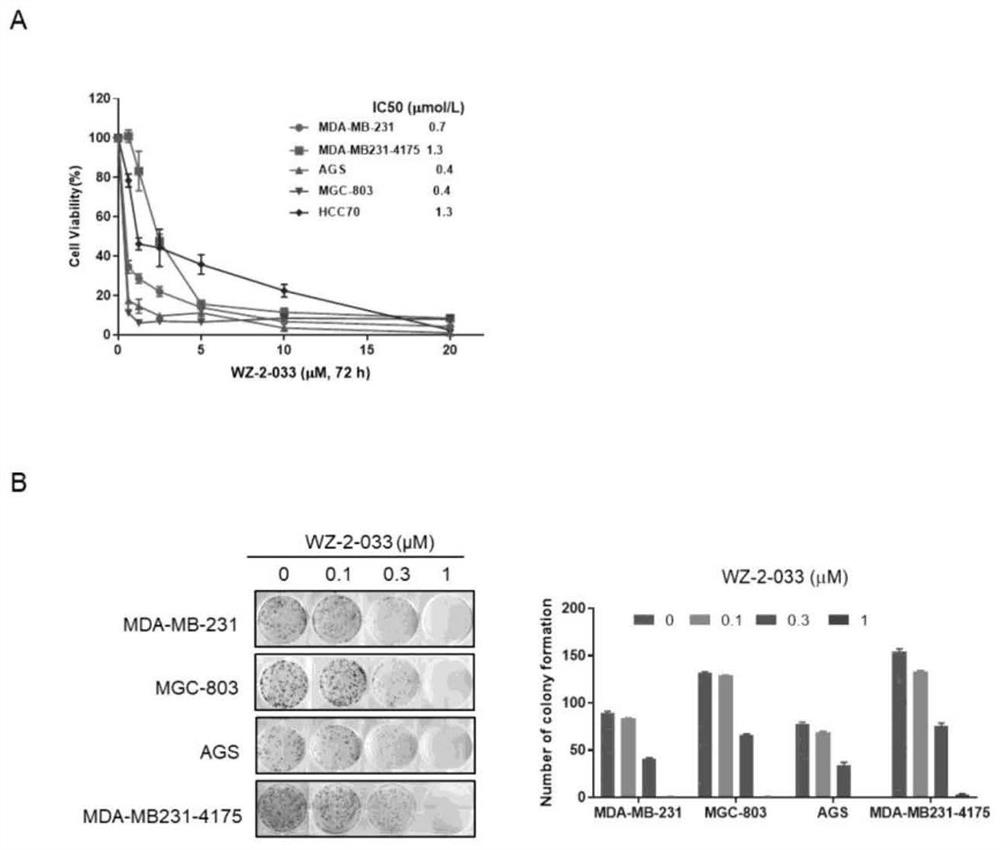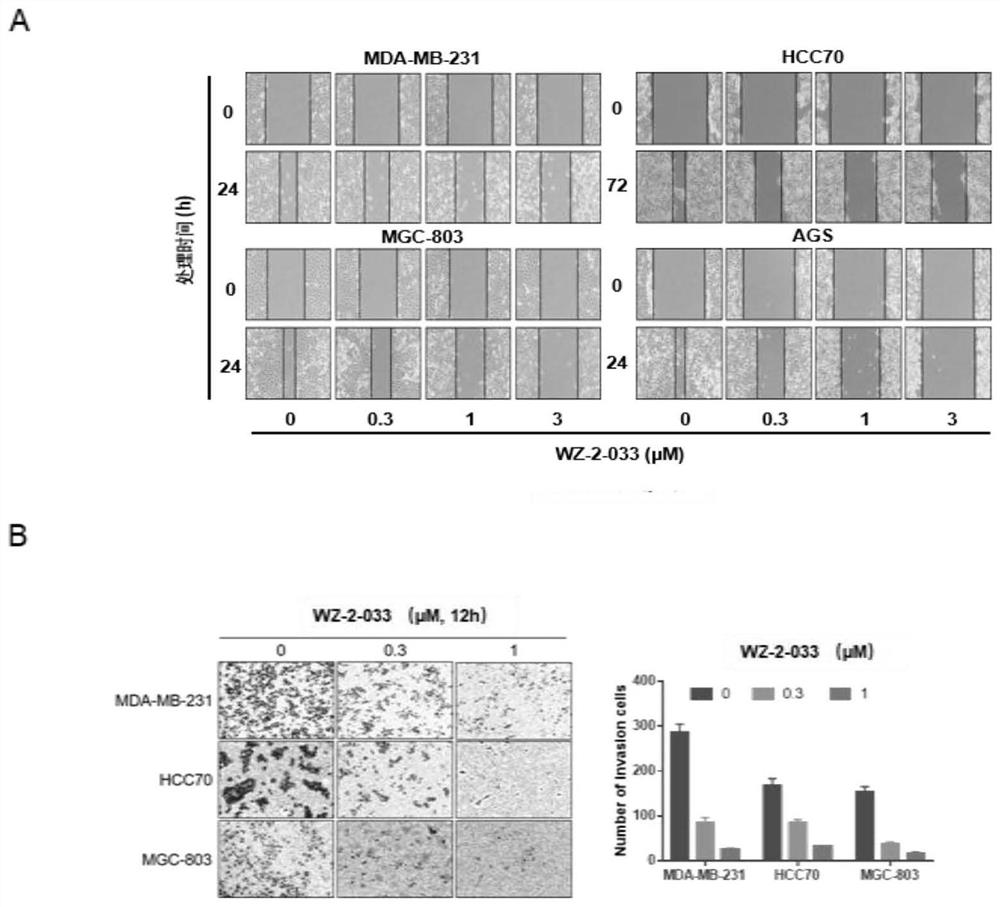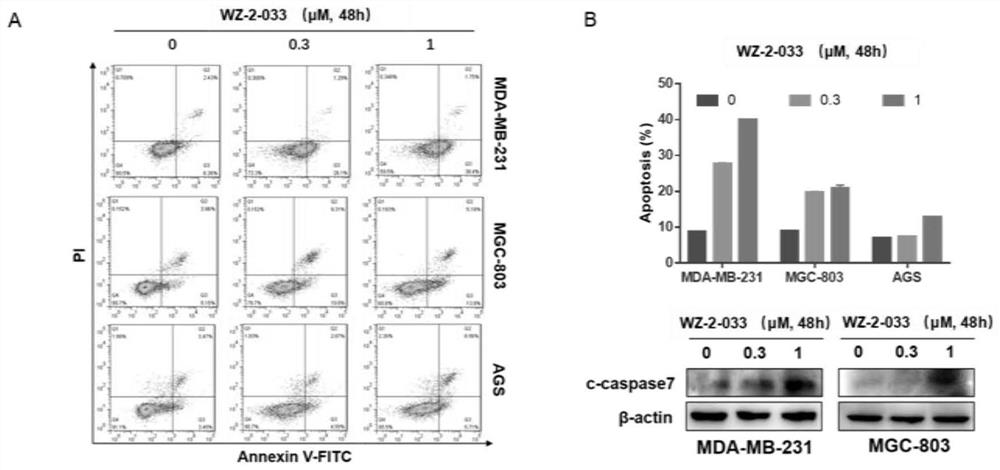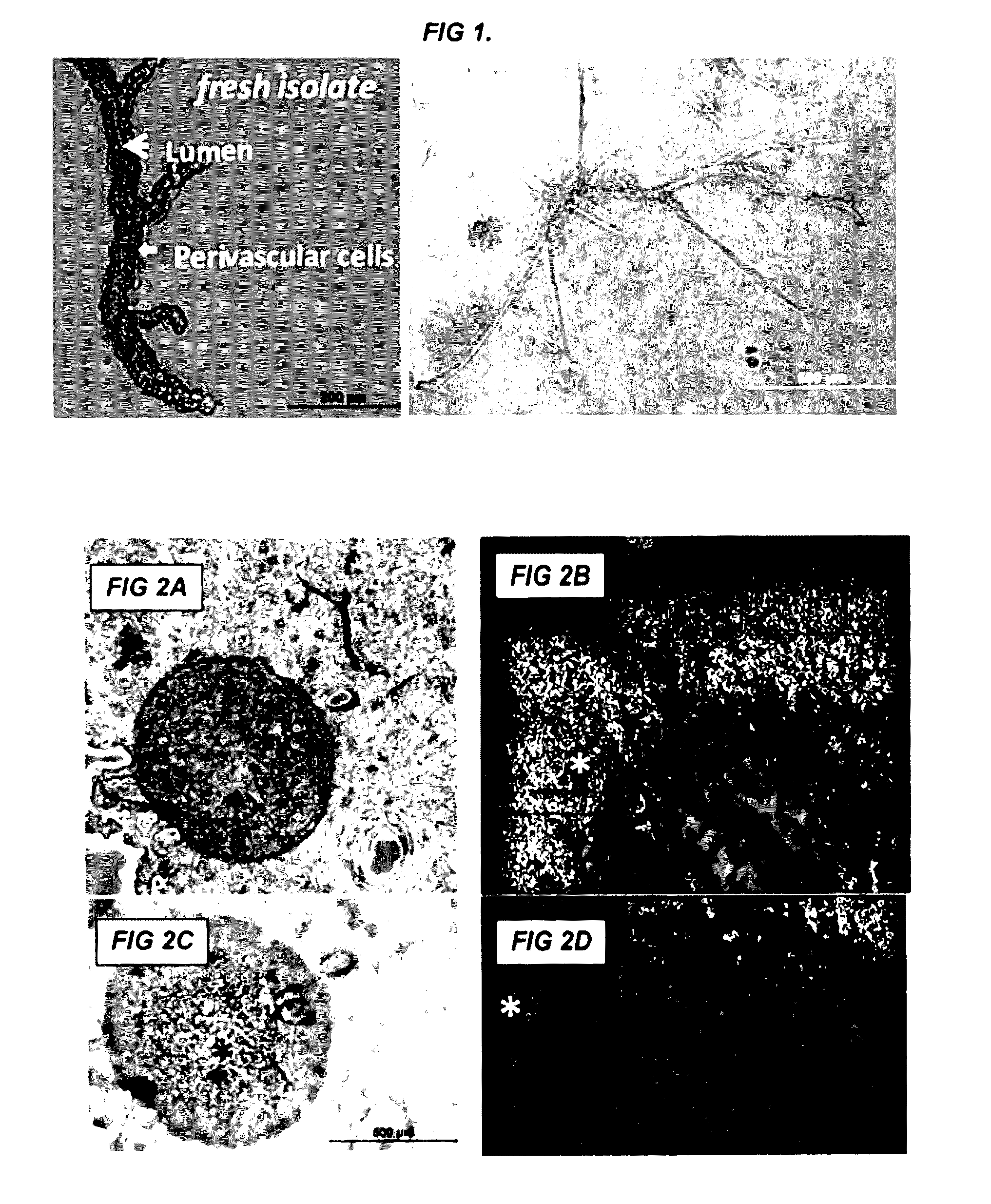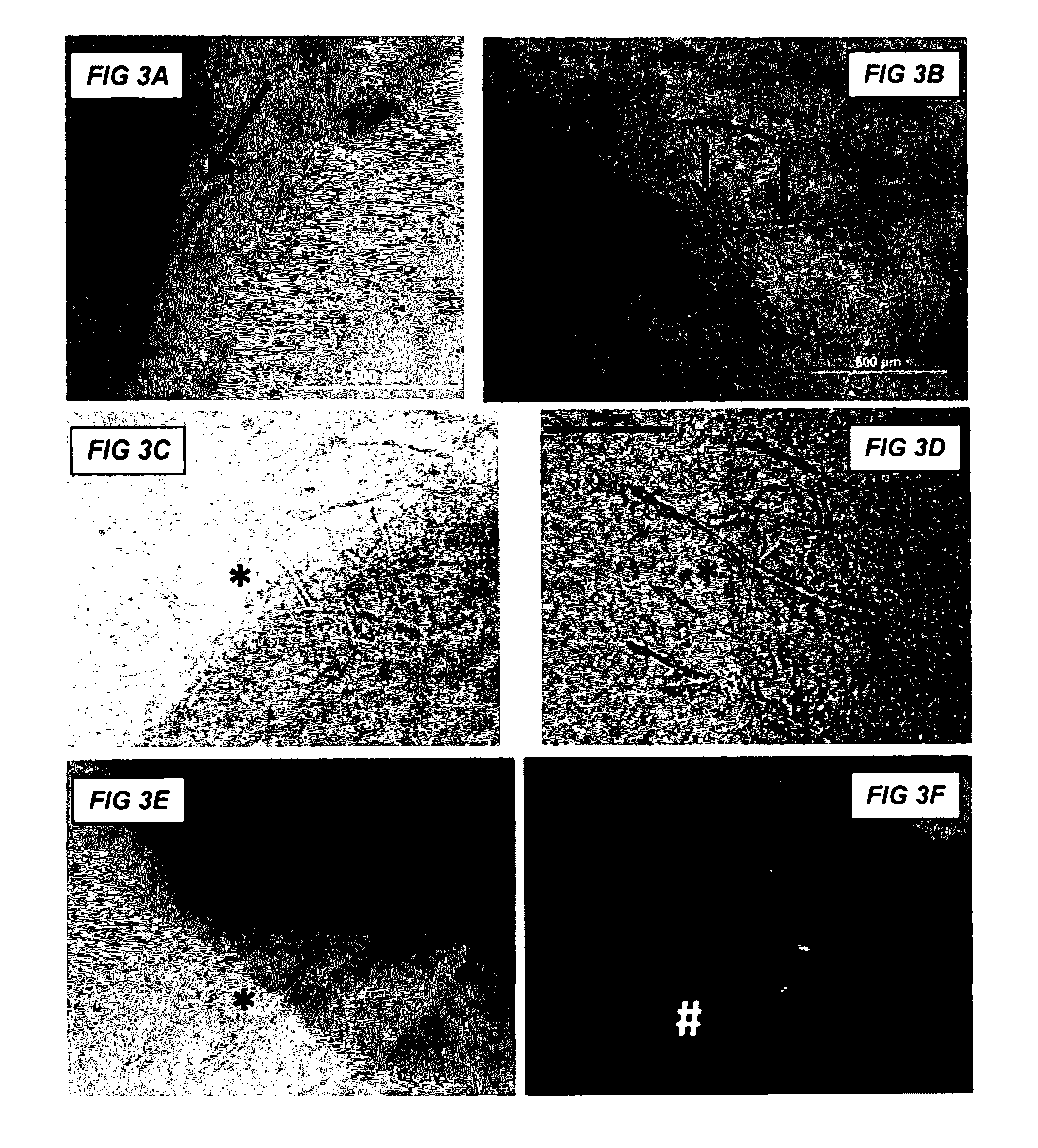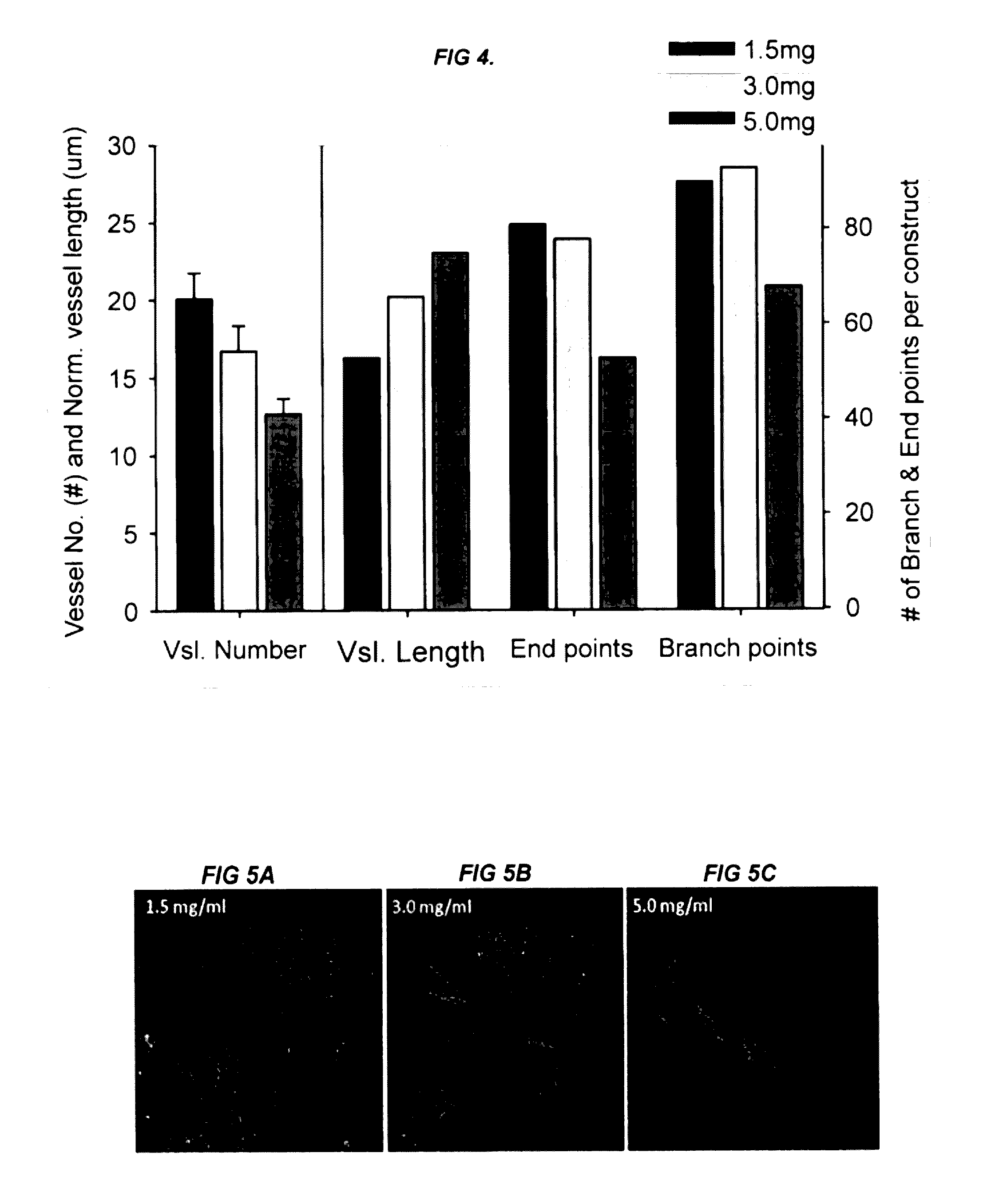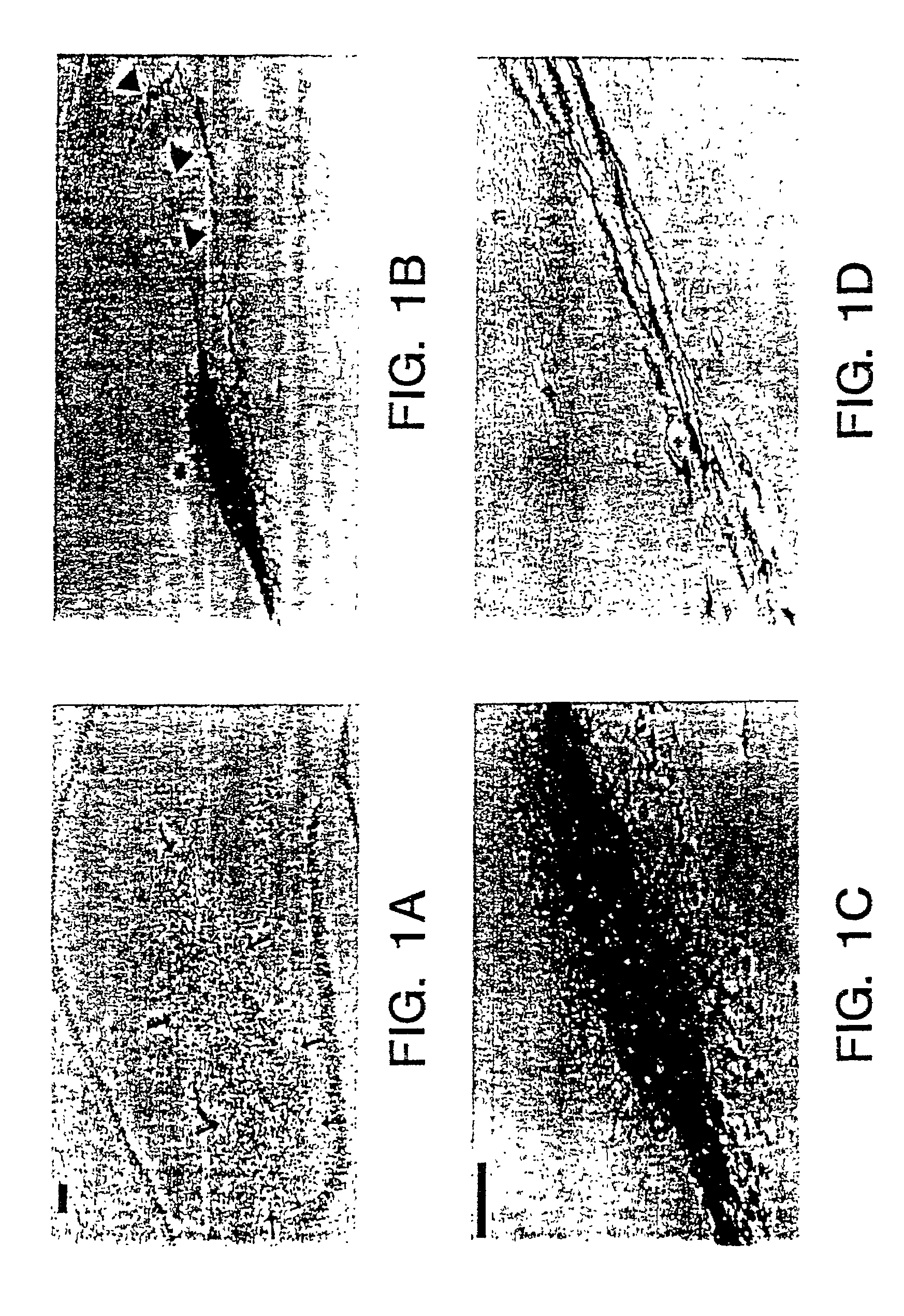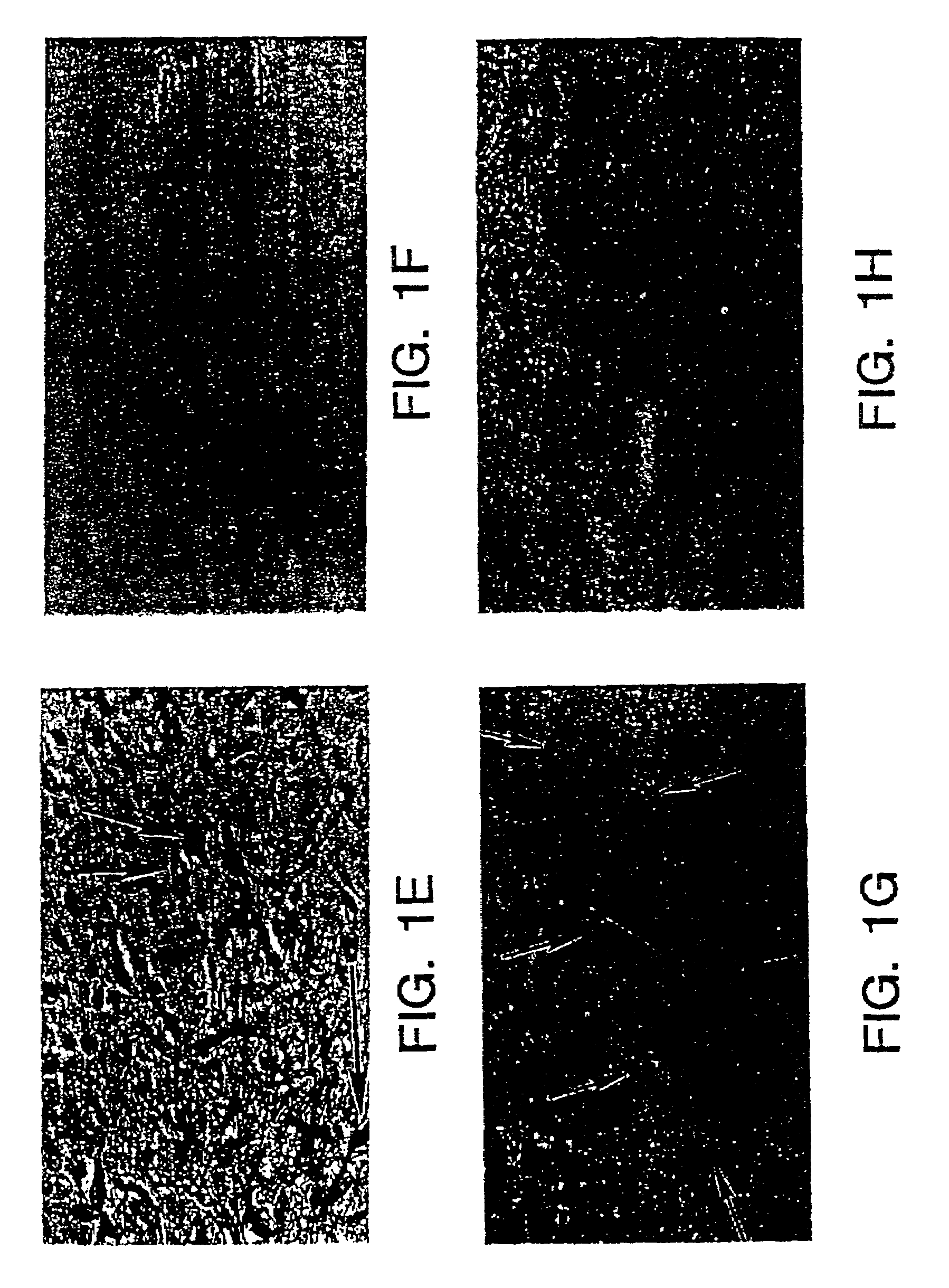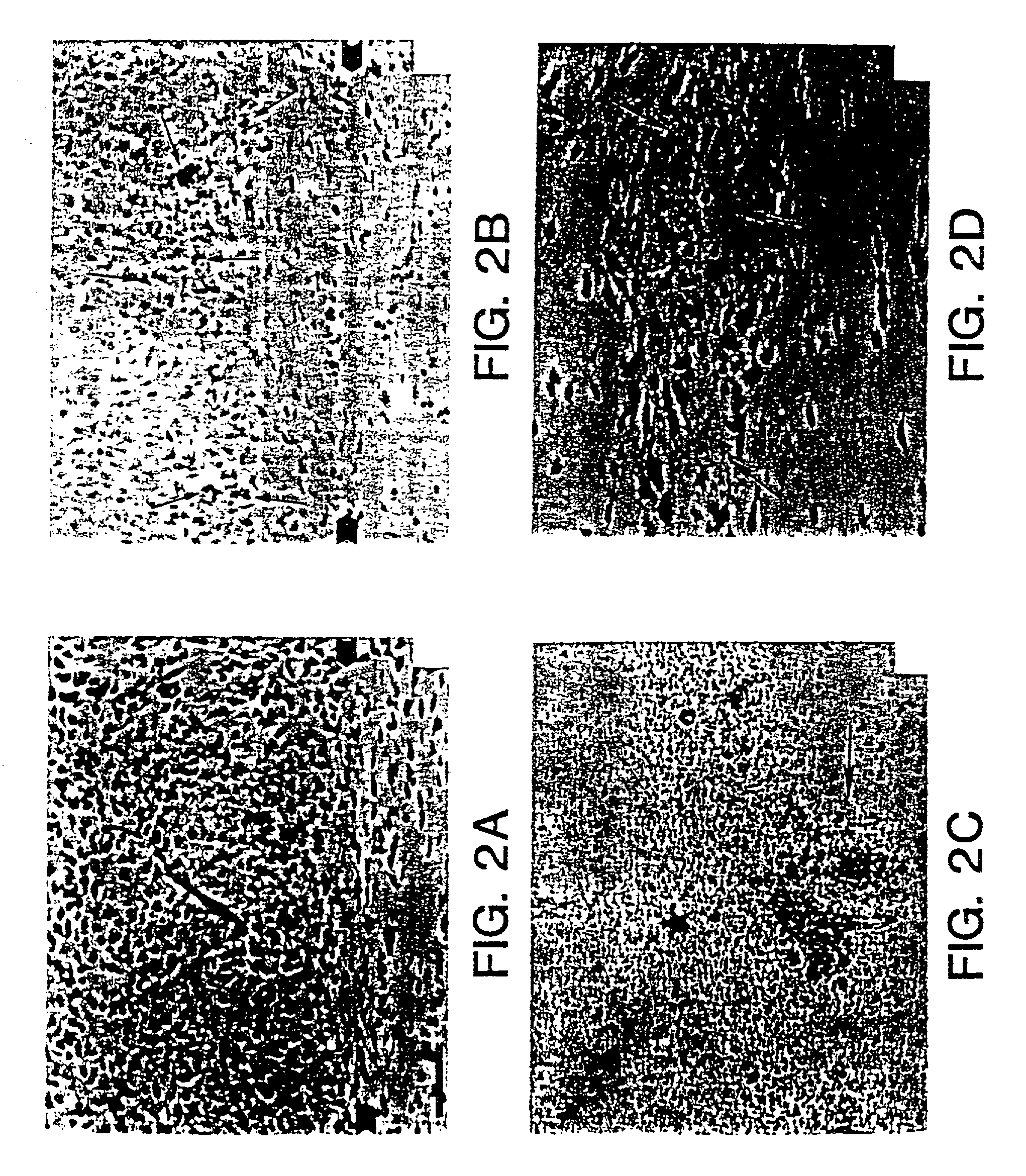Patents
Literature
111 results about "Cells transplant" patented technology
Efficacy Topic
Property
Owner
Technical Advancement
Application Domain
Technology Topic
Technology Field Word
Patent Country/Region
Patent Type
Patent Status
Application Year
Inventor
Scaffolds for cell transplantation
ActiveUS20080044900A1Enhance cell viabilityIncrease successBioreactor/fermenter combinationsBiological substance pretreatmentsBiomedical engineeringCell biology
A device that includes a scaffold composition and a bioactive composition with the bioactive composition being incorporated into or coated onto the scaffold composition such that the scaffold composition and / or a bioactive composition controls egress of a resident cell or progeny thereof. The devices mediate active recruitment, modification, and release of host cells from the material.
Owner:RGT UNIV OF MICHIGAN +1
Allogeneic stem cell transplants in non-conditioned recipients
InactiveUS20120269774A1Lower potentialBiocideMammal material medical ingredientsBiologyImmunosuppression
Owner:XON CELLS
Oxygen Supply for Cell Transplant and Vascularization
Apparatus is provided, including a housing (22), configured for insertion into a body of a patient; a photosynthetic oxygen supply (24) configured to supply oxygen; and functional cells (30), coupled to the housing (22). The functional cells (30) are adapted to receive the oxygen and to secrete at least one factor that induces vascularization in a vicinity of the housing (22) when the housing (22) is in the body of the patient. Other embodiments are also described.
Owner:BETA O2 TECH
Modulation of myostatin and use thereof in cell transplantation-based treatment of muscle disease
InactiveUS20060251632A1Improve fusionIncreased proliferationBiocideAnimal repellantsMyostatinDisease
Owner:UNIV LAVAL
Grafting Material and Agent for Improvement in bone Quality
InactiveUS20090155216A1Trend downIncrease bone densityBiocideNervous disorderPre osteoblastsWhole body
The present invention has an object to provide a transplant material allowing systemic bone substance improvement to be realized by cell transplant. The present invention teaches to use a transplant material comprising a cell selected from the group consisting of an embryonic stem cell, a mesenchymal stem cell, an osteoblast cell, a preosteoblast, a chondrocyte and a cell having a capability of bone formation through systemic or topical administration for the improvement in bone quality.
Owner:NATIONAL UNIVERSITY
Cell handling device, human tissue regeneration composition, and human tissue regeneration method
InactiveUS20070020754A1Easy injectionBioreactor/fermenter combinationsNervous disorderHuman bodyCultured cell
The main objects of the present invention, which relates to regenerative medical treatments, are to enable (i) storage and conveyance of harvested or cultured cells without contamination occuring (ii) simple injection of the cells into a living body. To achieve these objects, cells harvested from a living body, or cells obtained by culturing harvested cells, are stored in a syringe-type storage vessel and subsequently transplanted into a living body. It is preferable that at least a part of the storage vessel inner wall in contact with the cells is formed from a cell non-adhesive material. Besides enabling cells in the vessel to take in the oxygen they require to survive, the present invention also enables cells quick and easy transplantation of cells into a living body without a cell detachment process, because cells are prevented from adhering to the inside of the vessel. Further, it is preferable that a stored tissue regeneration composition contains cell culture microcarriers floating in a fluidity medium, and that the cell culture microcarriers are composed of a bioabsorbable material and have cells adhering to their surfaces. Using this kind of tissue regeneration composition, a regenerative treatment can be carried out satisfactorily by simply and quickly transplanting cells from the syringe-type cell storage vessel into a living body without intricate scaffold-related procedures being required.
Owner:JMS CO LTD
Regeneration of tissue without cell transplantation
The present invention provides methods and compositions for tissue regeneration without cell transplantation.
Owner:CLEMSON UNIVERSITY
Neural transplantation delivery system
InactiveUS7137969B1Optimize host reinnervationReduce in quantityDiagnosticsSurgical needlesCombined useNeural transplantation
A device and method for neural transplantation in the human brain comprising a microinjector (1), transplantation cannula (2) and bullet guide (16) is disclosed. The microinjector (1) is designed to connect to the proximal end of a syringe barrel (7) and plunger (12) while the transplantation cannula (2) interfaces with the distal end of the syringe barrel (7). In combination, the microinjector (1) and transplantation cannula (2) permit the delivery of multiple cell grafts in a three-dimensional array using a unique spiral technique. The bullet guide (16), which is attachable to a commercially available stereotactic frame, is a multiple channel adapter that functions as a mechanical guiding system for the transplantation cannula (2) and permits plural, spaced deployment of the cannula (2) without adjusting or disturbing the frame.
Owner:MENDEZ IVAR
Methods and compositions to support tissue integration and inosculation of transplanted tissue and transplanted engineered penile tissue with adipose stromal cells
ActiveUS20110218396A1Improve efficiencyEasy to integrateNon-surgical orthopedic devicesPenis implantsSexual impotenceTissue integration
The present invention generally relates to methods, compositions and uses thereof for enhancing vascularization of a tissue or cell transplant for transplantation into a subject. In particular, one aspect of the present invention provides methods and compositions comprising the use of a population of stromal vascular fraction (SVF) cells to encapsulate or surround a tissue or cell transplant to enhance vascularization of the tissue or cell transplant. Another aspect of the present invention provides methods and compositions for enhancing vascularization of a tissue or cell transplant by combining a population of SVF cells with a tissue or cell transplant to form a transplant mixed with SVF cells. Another aspect provides a composition comprising an engineered corpus cavernosum tissue comprising SVF cells and corpus cavernosum cells, wherein the SVF cells can be mixed with or encasing the corpus cavernosum cells, and methods of uses thereof, for example in method for the treatment of impotence and erectile dysfunction and / or enhance or construct a penis. In some embodiments, the SVF cells can be generically engineered to secrete therapeutic proteins or pro-angiogenic factors.
Owner:UNIV OF LOUISVILLE RES FOUND INC +1
Method for preparing a cell-derived extracellular matrix membrane
InactiveCN101563450ASkeletal disorderCell culture supports/coatingHigh concentrationCell-Extracellular Matrix
The present invention relates to a method for preparing a cell-derived extracellular matrix membrane, more particularly, to a method for preparing a chondrocyte-derived ECM membrane, the method comprising the steps of forming a suitable thickness of ECM membrane by culturing chondrocytes derived from animal cartilage at a high concentration in vitro, and drying it after decellularization process. The cell-derived ECM membrane scaffold according to the present invention is composed of extracellular matrix secreted by chondrocytes so that the membrane has excellent biocompatibility as well as an immune-previlage effect specific to cartilage. Since the membrane also has a suitable compressive strength, it can be used to replace periosteum for cartilage regeneration or artificial collagen membrane and used as dura mater transplant material, a natural ECM membrane for treating skin loss, materials for cell transplantation and a growth factor delivery vehicle.
Owner:REGENPRIME
Production of extracellular matrix, conditioned media and uses thereof
InactiveUS20120219737A1Increasing survival and differentiationPromotes self-assemblyBiocideSenses disorderCell-Extracellular MatrixECM Protein
Provided is a matrix for promoting survival and differentiation of cells transplanted thereon, comprising a base matrix and a cell-made matrix thereon. Methods and means for making and using same are also provided. Also provided are conditioned media, related compositions, related methods, and related packaging products.
Owner:RUTGERS THE STATE UNIV
Gene therapy methods and cell growth and cell transplant devices for use therein
InactiveUS20070004035A1Promote growthMaximal immunological responseBioreactor/fermenter combinationsBiological substance pretreatmentsMammalLigament structure
An artificial tendon, ligament, bone and skin panel are provided, made of biocompatible materials and capable of being seeded and eventually coated with selected cell types. Seeded or coated artificial tendon, ligament, bone or skin panels can be shaped and implanted in mammals. Implantable cell growth cages may be seeded with selected cell types and used to produce desired gene expression products within a mammal. Gene expression products may be harvested from transfected animal cells cultured in a cell growth chamber.
Owner:BIOARTTIS
Cell sorting method
ActiveUS20160040123A1Easily purifyReduce riskUnknown materialsDrug compositionsPopulationMolecular biology
The invention provides a method of removing or reducing undifferentiated cells from a differentiated cell population contaminated or having a risk of contamination with undifferentiated cells by contacting a pigment epithelium-derived factor with the differentiated cell population to induce apoptosis of the undifferentiated cells. The invention also provides an agent for cell transplantation therapy, containing a differentiated cell population substantially free of an undifferentiated cell, which is obtained by the method, as well as an agent for inducing apoptosis of an undifferentiated cell, containing a pigment epithelium-derived factor, and combined use of the aforementioned agent for cell transplantation therapy and the aforementioned agent for inducing apoptosis.
Owner:FOUND FOR BIOMEDICAL RES & INNOVATION
Method of using an extracellular matrix to enhance cell transplant survival and differentiation
InactiveUS20100297234A1Conducive to survivalIncrease differentiationPowder deliveryBiocideCell-Extracellular MatrixECM Protein
Provided is a matrix for promoting survival and differentiation of cells transplanted thereon, comprising a base matrix and a cell-made matrix thereon. Methods and means for making and using same are also provided.
Owner:UNIV OF MEDICINE & DENTISTRY OF NEW JERSEY
Methods and compositions to support transplanted tissue integration and innosculation with adipose stromal cells
ActiveUS20120201890A1Improve efficiencyEasy to integrateBiocidePowder deliveryAngiogenesis FactorTherapeutic protein
The present invention generally relates to methods, compositions and uses thereof for enhancing vascularization of a tissue or cell transplant for transplantation into a subject. In particular, one aspect of the present invention provides methods and compositions comprising the use of a population of stromal vascular fraction (SVF) cells to encapsulate or surround a tissue or cell transplant to enhance vascularization of the tissue or cell transplant. Another aspect of the present invention provides methods and compositions for enhancing vascularization of a tissue or cell transplant by combining a population of SVF cells with a tissue or cell transplant to form a transplant mixed with SVF cells. In some embodiments, the SVF cells can be on the surface or embedded within a three-dimensional matrix. In some embodiments, the SVF cells can be generically engineered to secrete therapeutic proteins or pro-angiogenic factors.
Owner:UNIV OF LOUISVILLE RES FOUND INC
Oxygen supply for cell transplant and vascularization
Apparatus is provided, including a housing (22), configured for insertion into a body of a patient; a photosynthetic oxygen supply (24) configured to supply oxygen; and functional cells (30), coupled to the housing (22). The functional cells (30) are adapted to receive the oxygen and to secrete at least one factor that induces vascularization in a vicinity of the housing (22) when the housing (22) is in the body of the patient. Other embodiments are also described.
Owner:BETA O2 TECH
Device for making microencapsulation cell
InactiveCN1566339ABioreactor/fermenter combinationsBiological substance pretreatmentsVoltage pulseHigh voltage pulse
The invention discloses a device for making microencapsulation cell, which comprises an injection system, a high-voltage pulse generator and an accessory system. The microcapsules prepared thereby can be applied for cell culturing and cell transplantation.
Owner:INST OF BASIC MEDICAL SCI ACAD OF MILITARY MEDICAL SCI OF PLA
Activator for mesenchymal stem cells, activated mesenchymal stem cells, and method for producing same
ActiveUS20170071984A1Proliferation potencySuitable as therapeuticSenses disorderNervous disorderDiseaseMesenchymal stem cell
[Problem] To activate an abnormal mesenchymal stem cell whose therapeutic effect is lost or reduced, or rather which has a disease-exacerbating effect so as to be in a state suitable for cell transplant therapy.[Solution] An activator for mesenchymal stem cells, mesenchymal stem cells activated by the activator, a method for producing the same, and a pharmaceutical containing the activated mesenchymal stem cells are provided.
Owner:SAPPORO MEDICAL UNIVERSITY
Methods of using immunophilin binding drugs to improve integration and survival of neuronal cell transplants
InactiveUS7041283B1Promote growthConducive to survivalBiocideOrganic active ingredientsImmunophilinsDisease
A method of treatment of neurodegenerative diseases using neuronal cell transplants is provided. The growth, survival and integration of the transplanted neuronal cells is enhanced by a method of culturing the neuronal cells with drugs having an affinity for immunophilins. Immunophilin binding drugs are optionally administered to the patient during transplantation and / or post-operatively. Neurotrophic factors can also be administered to the neuronal cells in vitro, or to the patient during the transplantation procedure and / or post-operatively.
Owner:UNIVERSITY OF PITTSBURGH
Alginate-drug loaded nanoparticle-polycation microcapsule and preparation and application thereof
ActiveCN108743545ASolving Fibrous Wrap ProblemsGood anti-inflammatory effectAntipyreticAnalgesicsFibrillationSurface charges
The invention relates to an alginate-drug loaded nanoparticle-polycation microcapsule and preparation and application thereof. The microcapsule product is a spherical microcapsule with a particle sizeof 100 to 1000 microns. The structure of the microcapsule product is divided into two parts of a microcapsule membrane and an inner core. The microcapsule membrane is self-assembled layer by layer byalginate, drug-loaded nanoparticles and polycations to form a polyelectrolyte composite hydrogel film, and the inner core is a hydrogel or hydrosol environment containing animal cells. The microcapsule product is used as an immunosuppressive tool in embedding carriers for cell transplantation. Under the premise of ensuring the microcapsule strength and immuno-isolation performances, the surface roughness and surface charge of the microcapsule membrane can be reduced, the in-situ release of an anti-inflammatory drug on the surface of the microcapsule is realized, and the problem of fibrillation wrapping is solved from two aspects of stabilization of the microcapsule membrane by the drug-loaded nanoparticles and in-situ release of the anti-inflammatory drug for anti-inflammation.
Owner:AFFILIATED ZHONGSHAN HOSPITAL OF DALIAN UNIV
Compositions and methods for cell transplantation
ActiveUS20150037291A1Effective and safe combinationAvoid harmful effectsOrganic active ingredientsBiocideEnzyme Inhibitor AgentFactor Xa Inhibitor
The present invention relates to compositions and methods for cell transplantation. In particular, the present invention provides a composition comprising procoagulant cells and at least one factor Xa inhibitor, preferably rivaroxaban, as well as at least one thrombin inhibitor, preferably bivalirudin.
Owner:UNIVERSITE CATHOLIQUE DE LOUVAIN
Special culture medium and culture method for long-term maintenance, propagation, and subcultring of human hepatocyte
The invention discloses a special culture medium and culture method for long-term maintenance, propagation, and subcultring of human hepatocyte. The optimized culture medium for long-term culture of hepatocyte is disclosed for the first time. By using the culture medium, long-term propagation, subcultring and maintenance of the human hepatocyte can be performed, and forms and functions of the hepatocyte can be maintained. The culture medium is applied to culture hepatocyte, and the culture method is simple to operate and low in cost, and is safe and stable. The human hepatocyte obtained from culture, propagation and subcultring is applicable to clinical cell transplantation for treating liver diseases, is used for mechanism research related to liver diseases and for bioartificial liver construction, and is used as a hepatocyte source or a cell model for basic research relative to medicine hepatotoxicity, detection of medical efficacy and medical target, and the like. The culture medium and culture method has a bright application prospect.
Owner:HEPATOBILIARY SURGERY HOSPITAL SECOND MILITARY MEDICAL UNIV
Inhibition method for induced differentiation of hair follicle stem cells into vascular endothelial cells
InactiveCN105670987ARich sourcesEasy to getEpidermal cells/skin cellsArtificial cell constructsVascular endotheliumDirected differentiation
The invention discloses an inhibition method for induced differentiation of hair follicle stem cells into vascular endothelial cells, comprising: (1), isolating rat hair follicle stem cell; (2), culturing the rat hair follicle stem cells; (3), purifying the rat hair follicle stem cells; (4), inhibiting the induced differentiation of the rat hair follicle stem cells into vascular endothelial cells. In the inhibition method provided herein, vascular endothelial cell growth factor 165 is used for the first time as an inducing factor so that the rat hair follicle stem cells efficiently and directionally differentiate into vascular endothelial cells; the formation and growth of vascular endothelial cells generated by induced differentiation of the hair follicle stem cells can be adjusted, an effective healing of a wound is promoted; it is also possible to provide seed cell sources for solving the problems in vascularization of tissue engineering skin, cell-transplant therapy of ischemic disease and the like.
Owner:HANGZHOU CITY XIAOSHAN DISTRICT TRADITIONAL CHINESE MEDICAL HOSPITAL
Arginine-rich anti-vascular endothelial growth factor peptides that inhibit growth and metastasis of human tumor cells by blocking angiogenesis
InactiveUS7291601B1Inhibit angiogenesisInhibit growthPeptide/protein ingredientsSkeletal disorderDiabetic retinopathyChemical synthesis
Disclosed are novel peptides inhibitory of the activity of vascular endothelial growth factor (VEGF) and their use in the treatment of angiogenesis-related diseases, including cancer. A combinatorial library of peptides consisting of six amino acid residues were chemically synthesize and, from the library, specific amino acid residues for each amino acid position were screened by comparing their inhibitory activity against VEGF binding to the cell surface receptor. The novel peptide sequences thus obtained bind to VEGF and block the binding of VEGF to its receptors present on the surface of vascular endothelial cells, thereby inhibiting the hormonal activity of VEGF. The peptides inhibit the angiogenesis induced by VEGF and human cancer cells. Also, the peptides inhibit growth and metastasis of human cancer cells transplanted to mice. Thus, the peptides can be used to treat angiogenesis-related diseases, including cancer, diabetic retinopathy, rheumatoid arthritis, etc.
Owner:KOREA GREEN CROSS CORP +1
Thiazolopyrimidine modulators as immunosuppressive agents
Owner:KATHOLIEKE UNIV LEUVEN
Phenylbutyryl curcumin derivate and application thereof in anti-tumor drug preparation
InactiveCN101830819AImprove anti-tumor effectNo deathOrganic active ingredientsOrganic compound preparationProstate cancerChronic granulocytic leukemia
The invention relates to phenylbutyryl curcumin derivate and application thereof in anti-tumor drug preparation, in particular to 4-(di(2-chloroethyl) amino) phenylbutyryl curcumin, 4,4'-(di(2-chloroethyl)amino) diphenylbutyryl curcumin, pharmaceutically acceptable salts and a preparation method thereof, and applications of 4-(di(2-chloroethyl) amino) phenylbutyryl curcumin, and 4,4'-(di(2-chloroethyl)amino) di phenylbutyryl curcumin in anti-tumor drug preparation. The phenylbutyryl curcumin derivate can be used for (but not limited to) preparing drugs for treating leukemia, skin cancer, gastric cancer, colon cancer, liver cancer, breast cancer or prostatic cancer. The derivate has obvious inhibition on a plurality of animal tumor cell transplanting modules, especially for the human chronic granulocytic leukemia model constructed by NOD-SCID mice inoculated with the human chronic granulocytic leukemia K562 cell stain, the life prolonging rate is obviously enhanced, and the serious toxicity to mice does not exist.
Owner:FUJIAN MEDICAL UNIV
In vitro induction of embryo stem cell source elliptocyte and separation purification culturing method
InactiveCN1948465AHigh differentiation rateThe induction method is simpleArtificial cell constructsEmbryonic cellsEmbryoElliptocytes
This invention provides a efficiently new induction model of hepatic oval cell. In this model significantly inducing the production of embryonic stem cell endogenous oval cell by using HGF and EGF, the whole induction method is fairly convenient, induction cycle is also very short. Utilizing very little embryonic stem cell provenance source can induce to generate sufficient hepatic oval cell which is contented to clinical requirement by using the invented induction model of hepatic oval cell, it also can be used for clinical category such as hepatic oval cell transplant, hepatic tissue engineering and so on, it can play a part in assistant supportive treatment or curing disease for Liver function failure, hepatic metabolic disease caused by various kinds of reason.
Owner:JINAN UNIVERSITY
Micromolecule STAT3 inhibitor WZ-2-033 and application thereof to preparation of medicines for treating breast cancer and stomach cancer
ActiveCN111658644AReduce phosphorylation levelsInhibition bindingOrganic active ingredientsOrganic chemistryDimerOncology
The invention belongs to the technical field of medicine and pharmacy, and discloses an application of a micromolecule compound WZ-2-033 shown as below to medicines for treating breast cancer and stomach cancer. The compound can restrain proliferation, clone formation, migration and invasion of breast cancer cells and stomach cancer cells, and can induce apoptosis of the breast cancer cells and the stomach cancer cells. The compound exerts effects through influencing an STAT3 signal channel, can reduce the phosphorylation level (Y705) of the STAT3, can reduce STAT3 dimer formation, can reduceDNA combining capacity and transcriptional activity of the STAT3, and can further reduce the expression level of STAT3 target genes c-Myc, Bcl-xL and Mcl-1 so as to restrain activation of STAT3 signals and restrain the growth of the breast cancer cells and the stomach cancer cells. In an animal model, the compound can restrain the growth of stomach cancer cell transplanted tumors and has favorableapplication prospects.
Owner:SUN YAT SEN UNIV
Methods and compositions to support transplanted tissue integration and innosculation with adipose stromal cells
ActiveUS9506035B2Improve efficiencyEasy to integrateAntipyreticPancreatic cellsAngiogenesis FactorTherapeutic protein
The present invention generally relates to methods, compositions and uses thereof for enhancing vascularization of a tissue or cell transplant for transplantation into a subject. In particular, one aspect of the present invention provides methods and compositions comprising the use of a population of stromal vascular fraction (SVF) cells to encapsulate or surround a tissue or cell transplant to enhance vascularization of the tissue or cell transplant. Another aspect of the present invention provides methods and compositions for enhancing vascularization of a tissue or cell transplant by combining a population of SVF cells with a tissue or cell transplant to form a transplant mixed with SVF cells. In some embodiments, the SVF cells can be on the surface or embedded within a three-dimensional matrix. In some embodiments, the SVF cells can be generically engineered to secrete therapeutic proteins or pro-angiogenic factors.
Owner:UNIV OF LOUISVILLE RES FOUND INC
Compositions and methods for producing and using homogenous neuronal cell transplants
Methods of treating individuals suspected of suffering from diseases, conditions or disorders of the Central Nervous System including nerve damage are provided wherein stable, homogeneous post-mitotic human neurons are into the individual's brain or at or near a site of nerve damage. Pharmaceutical compositions of stable, homogeneous post-mitotic human neurons and a pharmaceutically acceptable medium are also disclosed. Methods of generating non-human animal models of human CNS diseases, conditions or disorders by implanting stable, homogeneous post-mitotic human neurons into the brain of a non-human animal are disclosed. Non-human animals eith stable, homogeneous post-mitotic human neurons implanted in their brain are also disclosed.
Owner:THE TRUSTEES OF THE UNIV OF PENNSYLVANIA
Features
- R&D
- Intellectual Property
- Life Sciences
- Materials
- Tech Scout
Why Patsnap Eureka
- Unparalleled Data Quality
- Higher Quality Content
- 60% Fewer Hallucinations
Social media
Patsnap Eureka Blog
Learn More Browse by: Latest US Patents, China's latest patents, Technical Efficacy Thesaurus, Application Domain, Technology Topic, Popular Technical Reports.
© 2025 PatSnap. All rights reserved.Legal|Privacy policy|Modern Slavery Act Transparency Statement|Sitemap|About US| Contact US: help@patsnap.com
